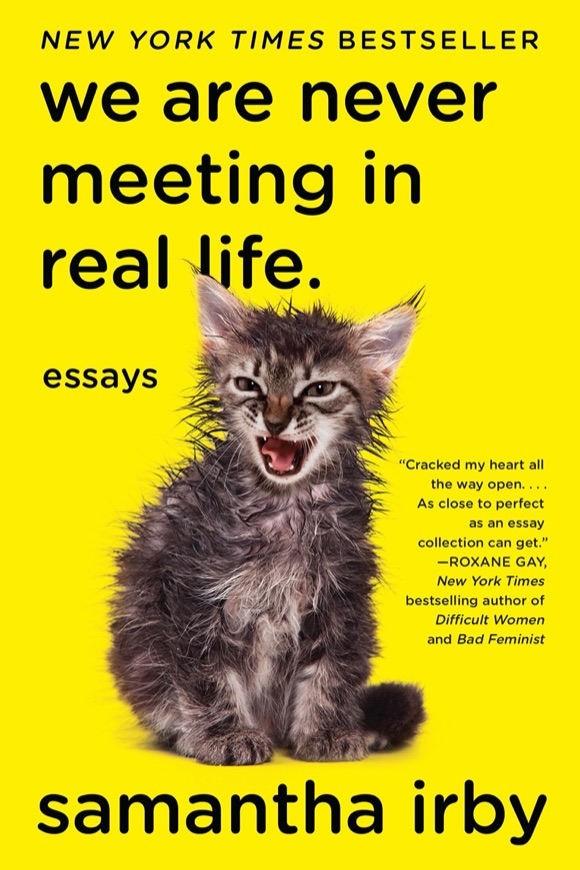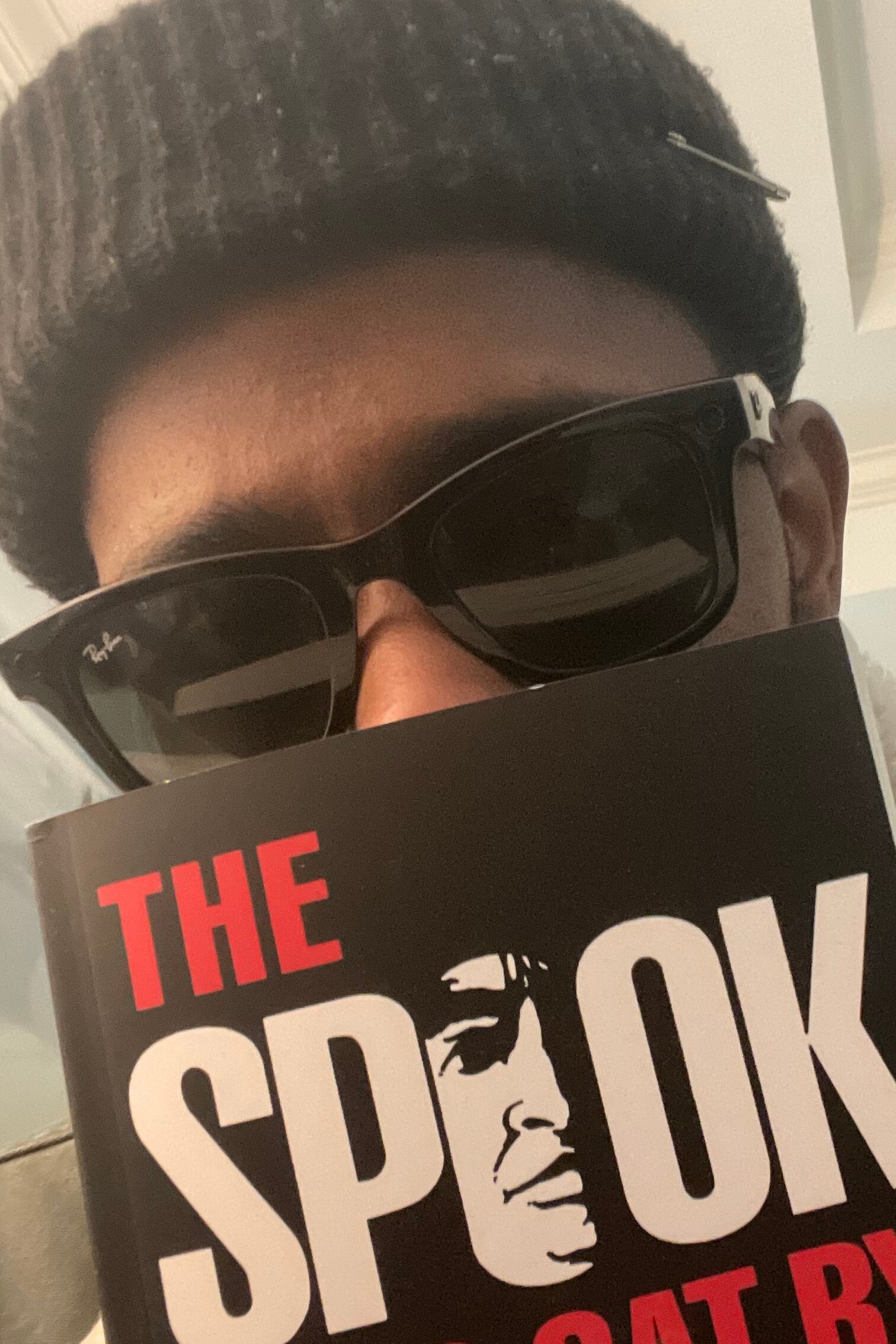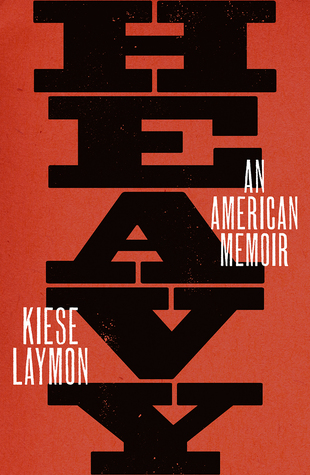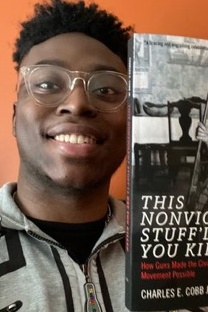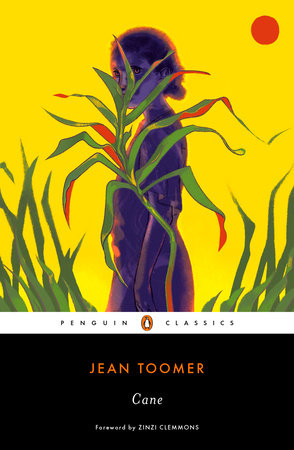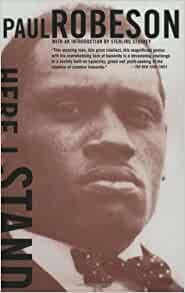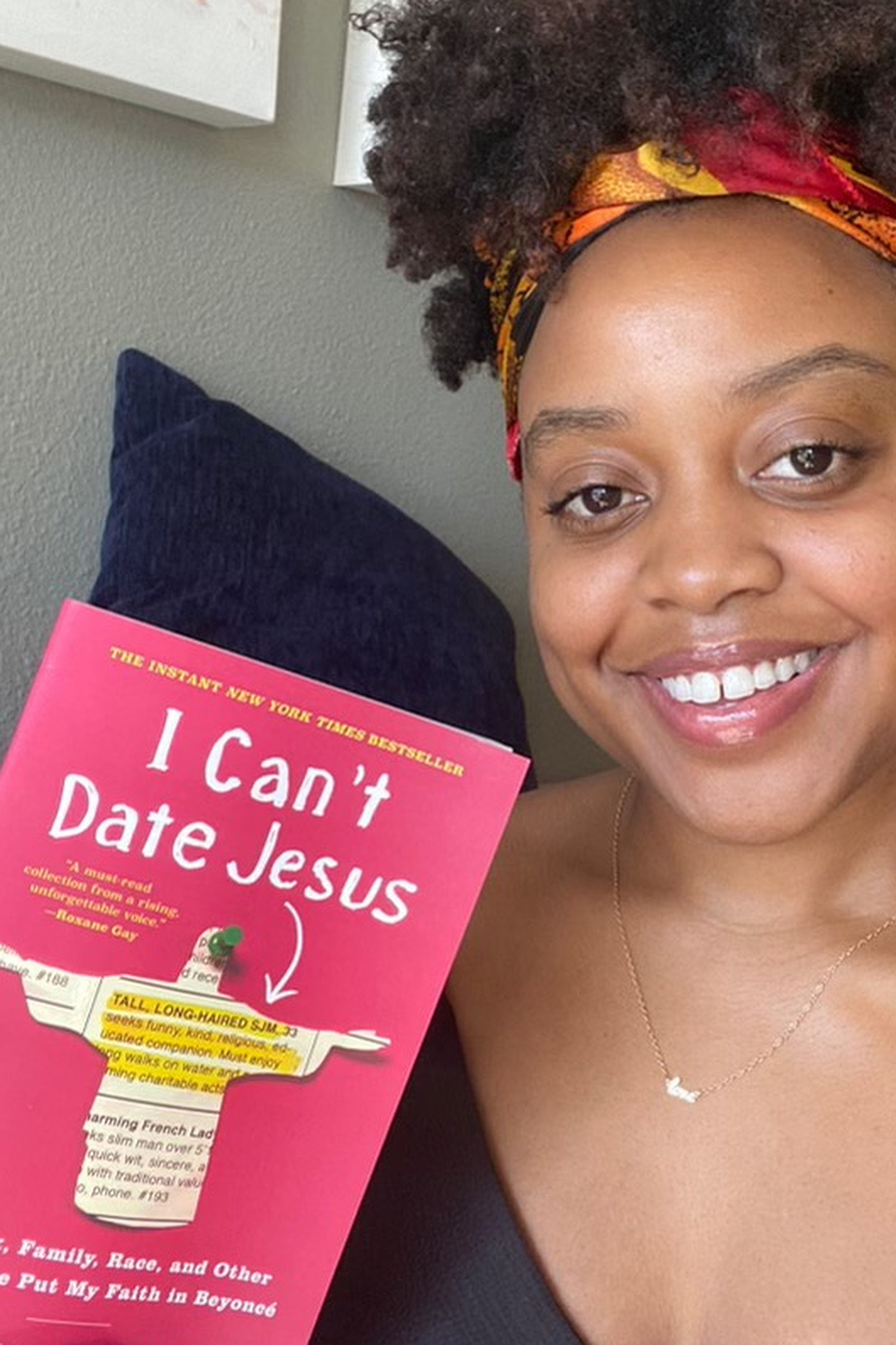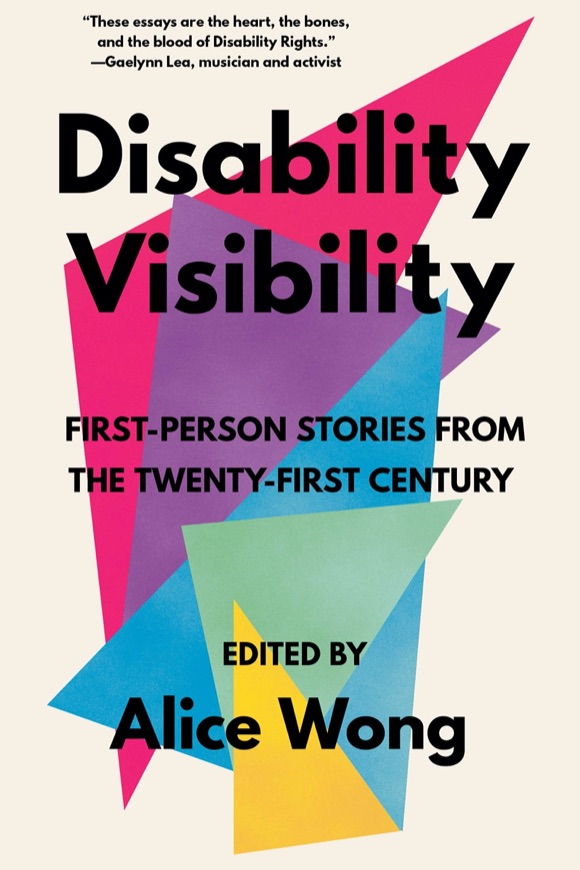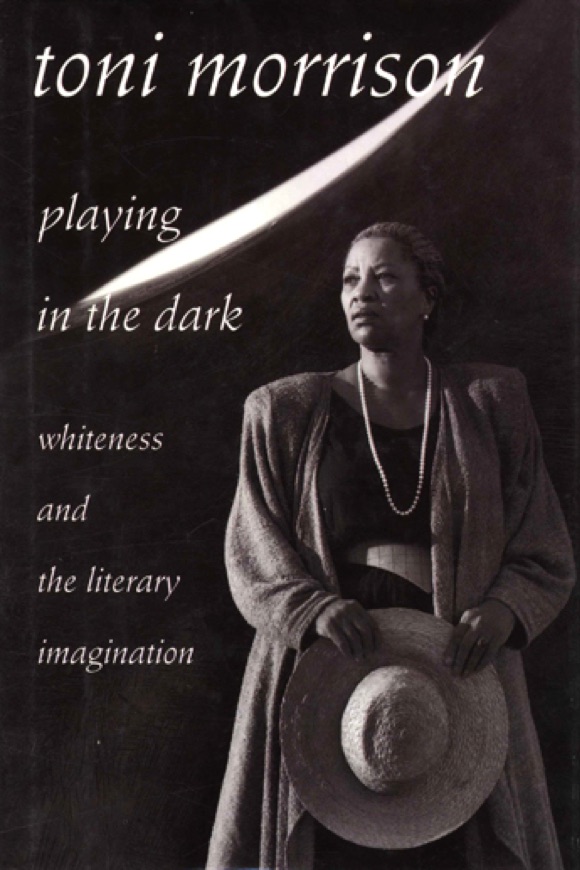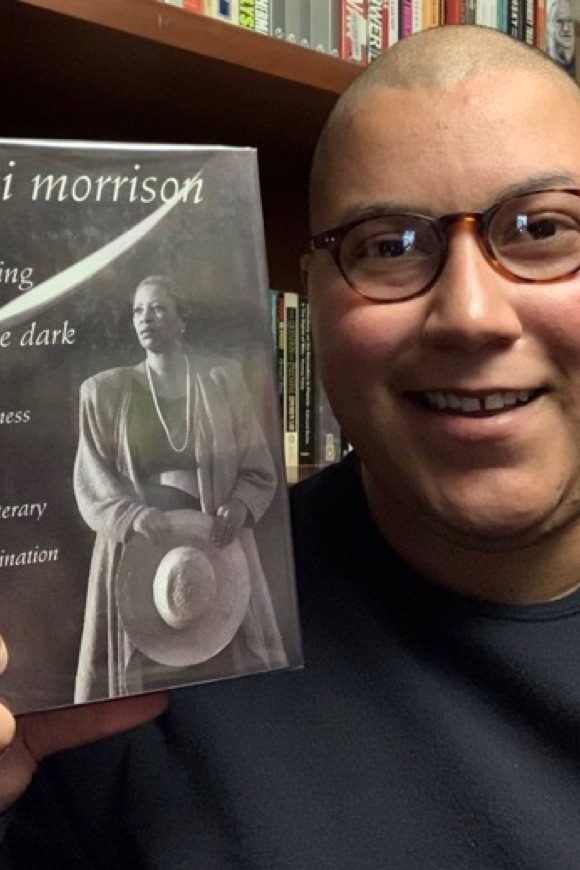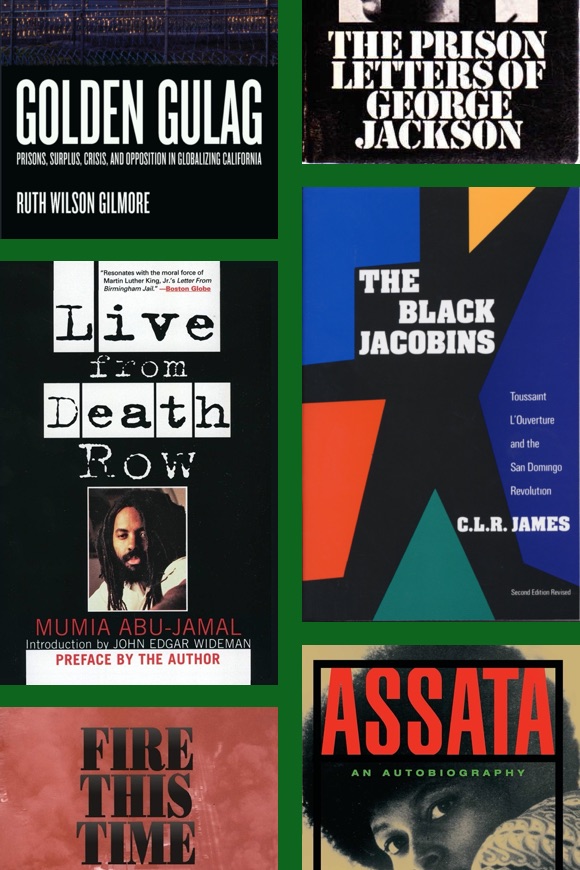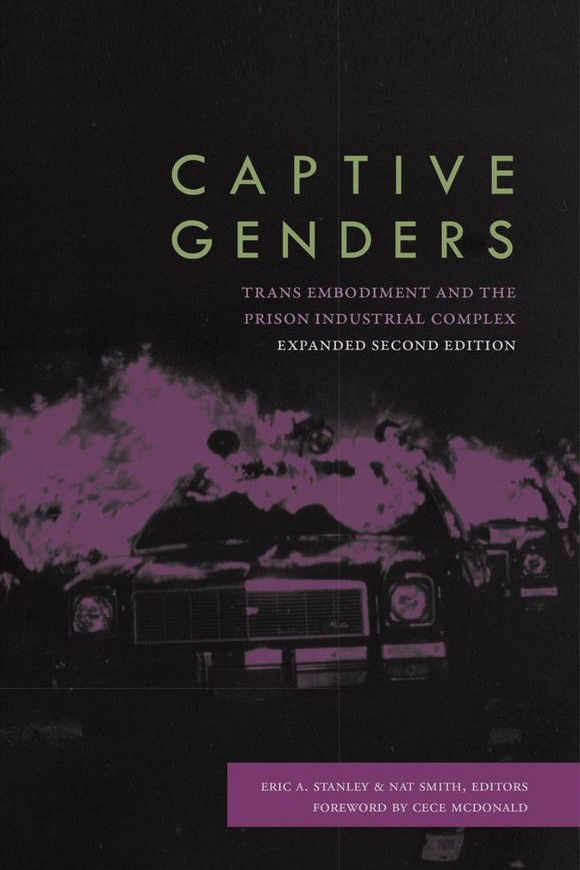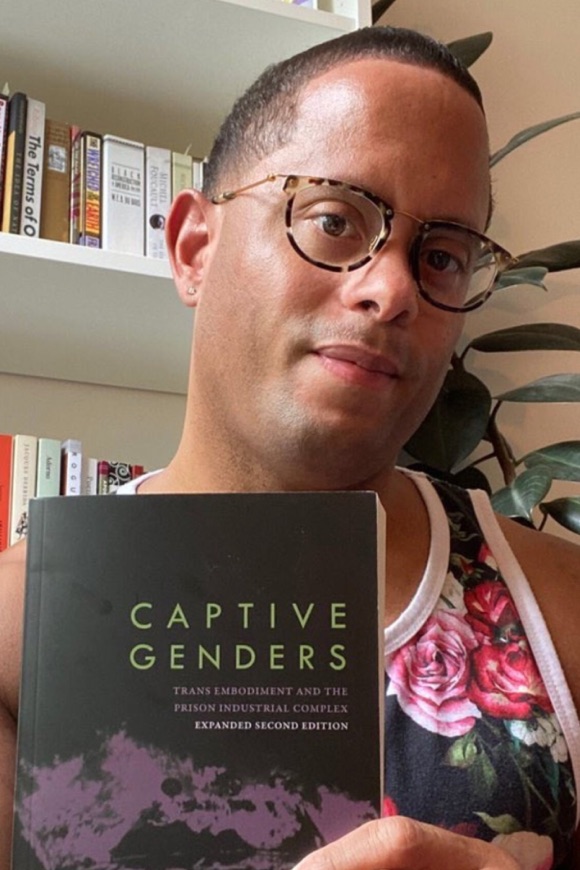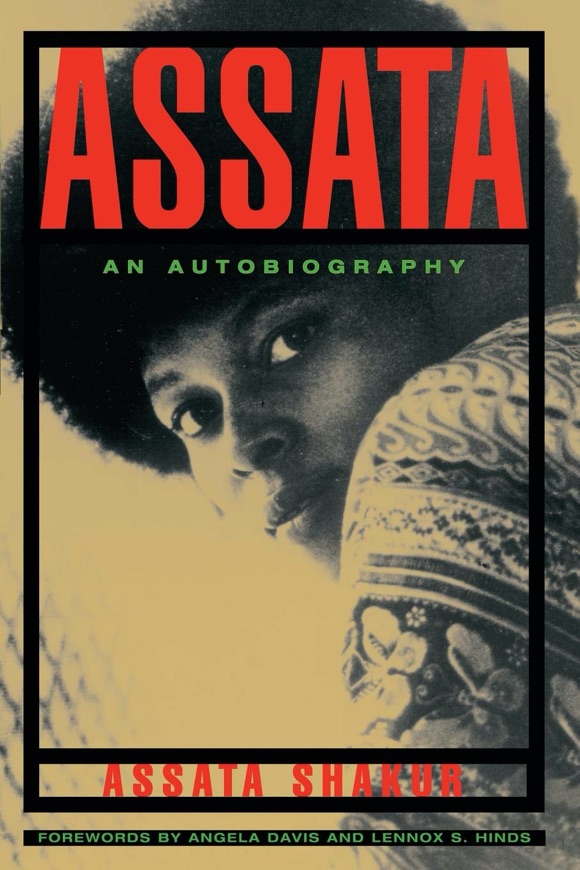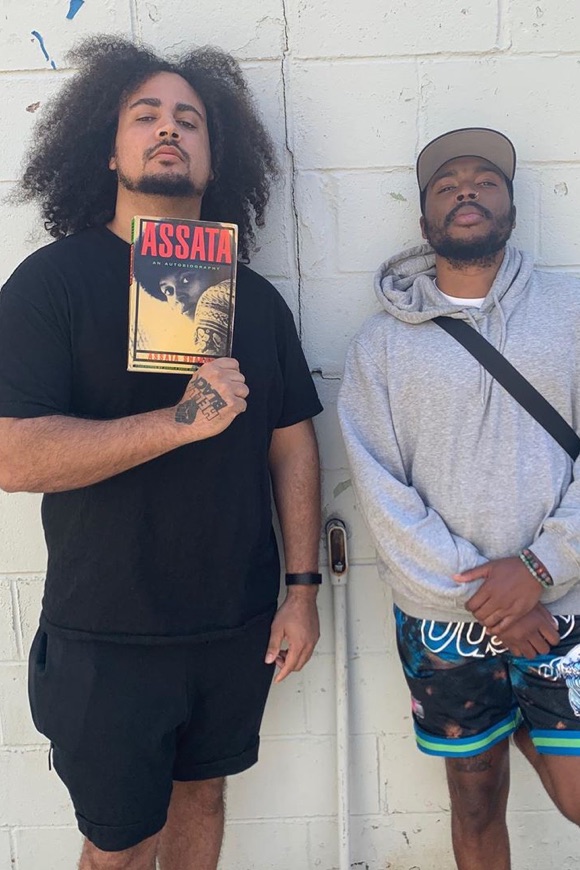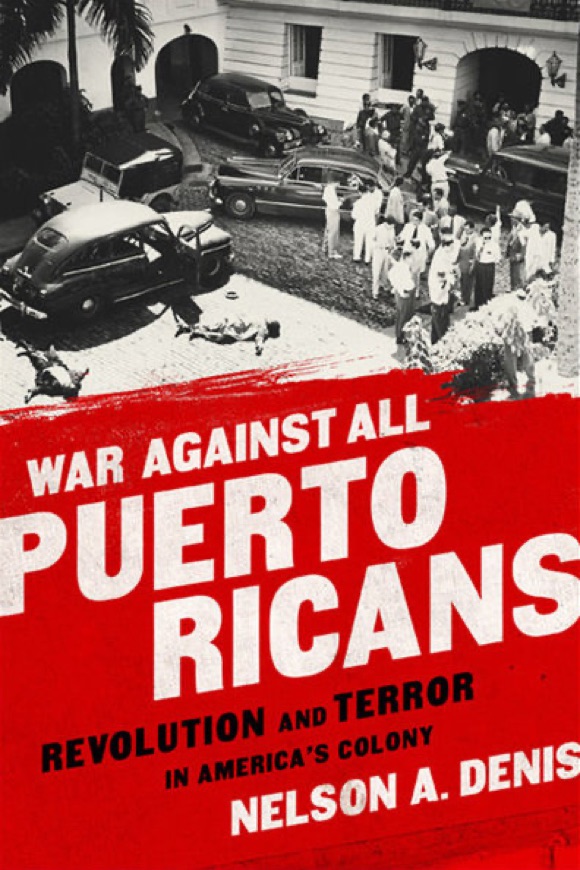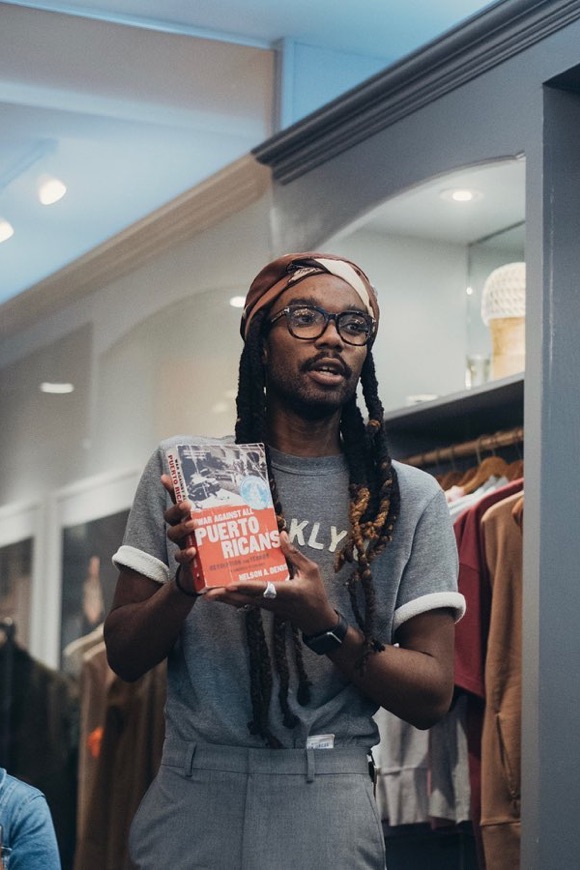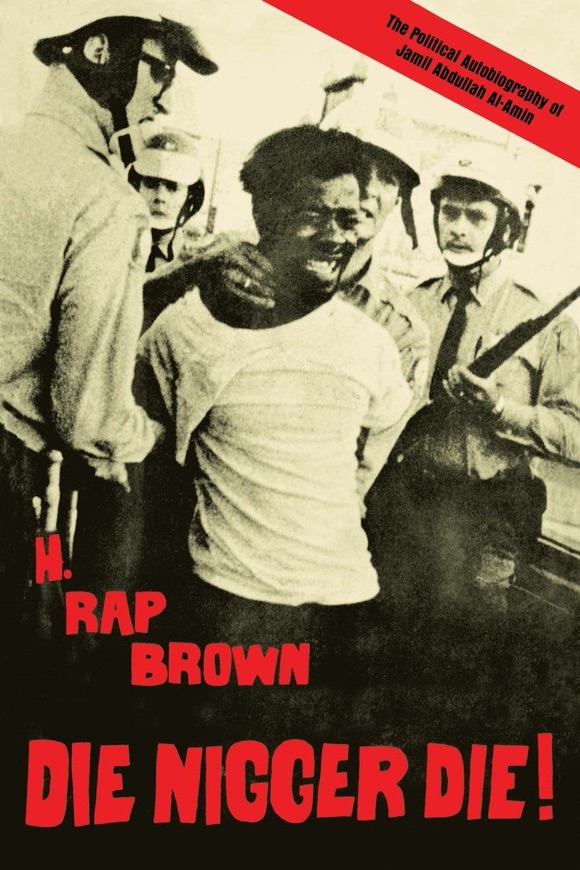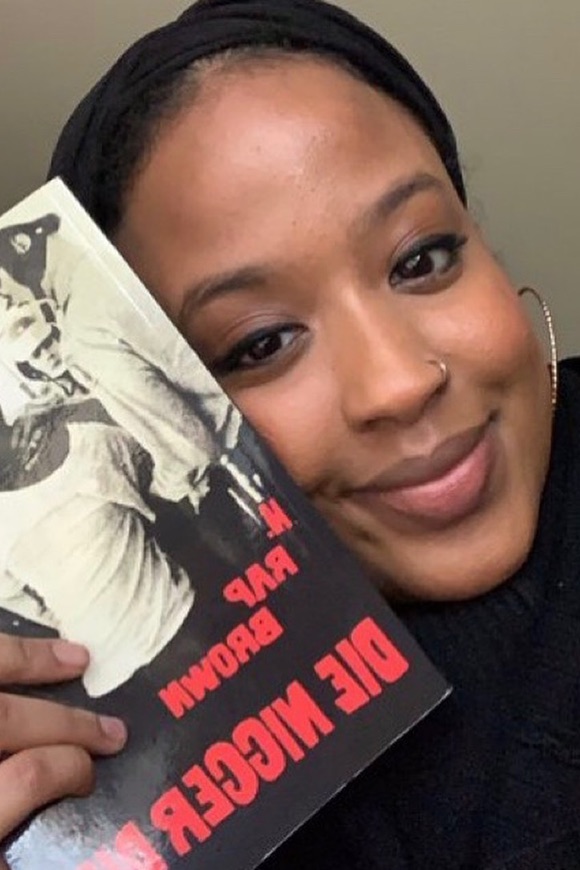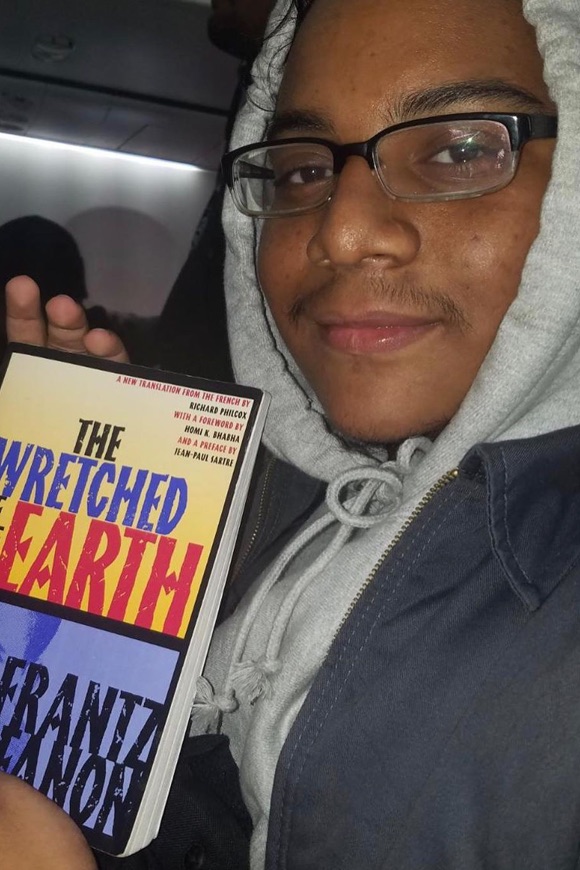NO BOOK CLUB DECEMBER
Previous Book Picks
Previous Book Picks
Monthly Picks
Interested? It’s easy—we choose a new book (or two) every month. Pick one, and get your own copy. Don’t buy from Amazon! Check out our Black-owned bookstores or local libraries resources to find one.
Then, find a local book club chapter!
Below you’ll find additional resources for each book, so you can always read on your own.
Happy reading!
November 2025
Homegoing
by Yaa Gyasi
Focuses:
connection between heritage and identity, effects of generational trauma, horrors of slavery and colonization
by Yaa Gyasi
Focuses:
connection between heritage and identity, effects of generational trauma, horrors of slavery and colonization
Two half-sisters, Effia and Esi, are born into different villages in eighteenth-century Ghana. Effia is married off to an Englishman and lives in comfort in the palatial rooms of Cape Coast Castle. Unbeknownst to Effia, her sister, Esi, is imprisoned beneath her in the castle's dungeons, sold with thousands of others into the Gold Coast's booming slave trade, and shipped off to America, where her children and grandchildren will be raised in slavery. One thread of Homegoing follows Effia's descendants through centuries of warfare in Ghana, as the Fante and Asante nations wrestle with the slave trade and British colonization. The other thread follows Esi and her children into America. From the plantations of the South to the Civil War and the Great Migration, from the coal mines of Pratt City, Alabama, to the jazz clubs and dope houses of twentieth-century Harlem, right up through the present day, Homegoing makes history visceral, and captures, with singular and stunning immediacy, how the memory of captivity came to be inscribed in the soul of a nation.
Generation after generation, Yaa Gyasi's magisterial first novel sets the fate of the individual against the obliterating movements of time, delivering unforgettable characters whose lives were shaped by historical forces beyond their control. Homegoing is a tremendous reading experience, not to be missed, by an astonishingly gifted young writer.
Buy it local Join a book club
Generation after generation, Yaa Gyasi's magisterial first novel sets the fate of the individual against the obliterating movements of time, delivering unforgettable characters whose lives were shaped by historical forces beyond their control. Homegoing is a tremendous reading experience, not to be missed, by an astonishingly gifted young writer.
Buy it local Join a book club
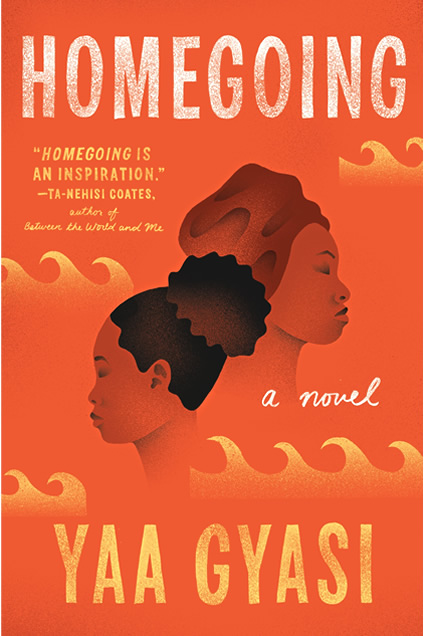
October 2025
Assata: An Autobiography
by Assata Shakur
Focuses:
Nonfiction Memoir, Political Education and Alternative Education, Systemic Racism, State Sponsored Violence, Revolution vs Reform
by Assata Shakur
Focuses:
Nonfiction Memoir, Political Education and Alternative Education, Systemic Racism, State Sponsored Violence, Revolution vs Reform
On May 2, 1973, Black Panther Assata Shakur (aka JoAnne Chesimard) lay in a hospital, close to death, handcuffed to her bed, while local, state, and federal police attempted to question her about the shootout on the New Jersey Turnpike that had claimed the life of a white state trooper. Long a target of J. Edgar Hoover's campaign to defame, infiltrate, and criminalize Black nationalist organizations and their leaders, Shakur was incarcerated for four years prior to her conviction on flimsy evidence in 1977 as an accomplice to murder.
This intensely personal and political autobiography belies the fearsome image of JoAnne Chesimard long projected by the media and the state. With wit and candor, Assata Shakur recounts the experiences that led her to a life of activism and portrays the strengths, weaknesses, and eventual demise of Black and White revolutionary groups at the hand of government officials. The result is a signal contribution to the literature about growing up Black in America that has already taken its place alongside The Autobiography of Malcolm X and the works of Maya Angelou.
Two years after her conviction, Assata Shakur escaped from prison. She was given political asylum by Cuba, where she resided until her passing on September 25, 2025.
Buy it local Join a book club
This intensely personal and political autobiography belies the fearsome image of JoAnne Chesimard long projected by the media and the state. With wit and candor, Assata Shakur recounts the experiences that led her to a life of activism and portrays the strengths, weaknesses, and eventual demise of Black and White revolutionary groups at the hand of government officials. The result is a signal contribution to the literature about growing up Black in America that has already taken its place alongside The Autobiography of Malcolm X and the works of Maya Angelou.
Two years after her conviction, Assata Shakur escaped from prison. She was given political asylum by Cuba, where she resided until her passing on September 25, 2025.
Rest in Power
Assata Shakur
1947-2025
Assata Shakur
1947-2025
Buy it local Join a book club

September 2025
Sister Outsider
by Audre Lorde
Focuses:
intersectionality, the power of difference and community, the transformative potential of anger, breaking silence, and the erotic as power
by Audre Lorde
Focuses:
intersectionality, the power of difference and community, the transformative potential of anger, breaking silence, and the erotic as power
Presenting the essential writings of Black lesbian poet and feminist writer Audre Lorde, Sister Outsider celebrates an influential voice in twentieth-century literature.
Her prose is incisive, unflinching, and lyrical, reflecting struggle but ultimately offering messages of hope.
These essays explore and illuminate the roots of Lorde's intellectual development and her deep-seated and longstanding concerns about ways of increasing empowerment among minority women writers and the absolute necessity to explicate the concept of difference—difference according to sex, race, and economic status. The title Sister Outsider finds its source in her poetry collection The Black Unicorn (1978). These poems and the essays in Sister Outsider stress Lorde's oft-stated theme of continuity, particularly of the geographical and intellectual link between Dahomey, Africa, and her emerging self.
Buy it local Join a book club
Her prose is incisive, unflinching, and lyrical, reflecting struggle but ultimately offering messages of hope.
These essays explore and illuminate the roots of Lorde's intellectual development and her deep-seated and longstanding concerns about ways of increasing empowerment among minority women writers and the absolute necessity to explicate the concept of difference—difference according to sex, race, and economic status. The title Sister Outsider finds its source in her poetry collection The Black Unicorn (1978). These poems and the essays in Sister Outsider stress Lorde's oft-stated theme of continuity, particularly of the geographical and intellectual link between Dahomey, Africa, and her emerging self.
Buy it local Join a book club
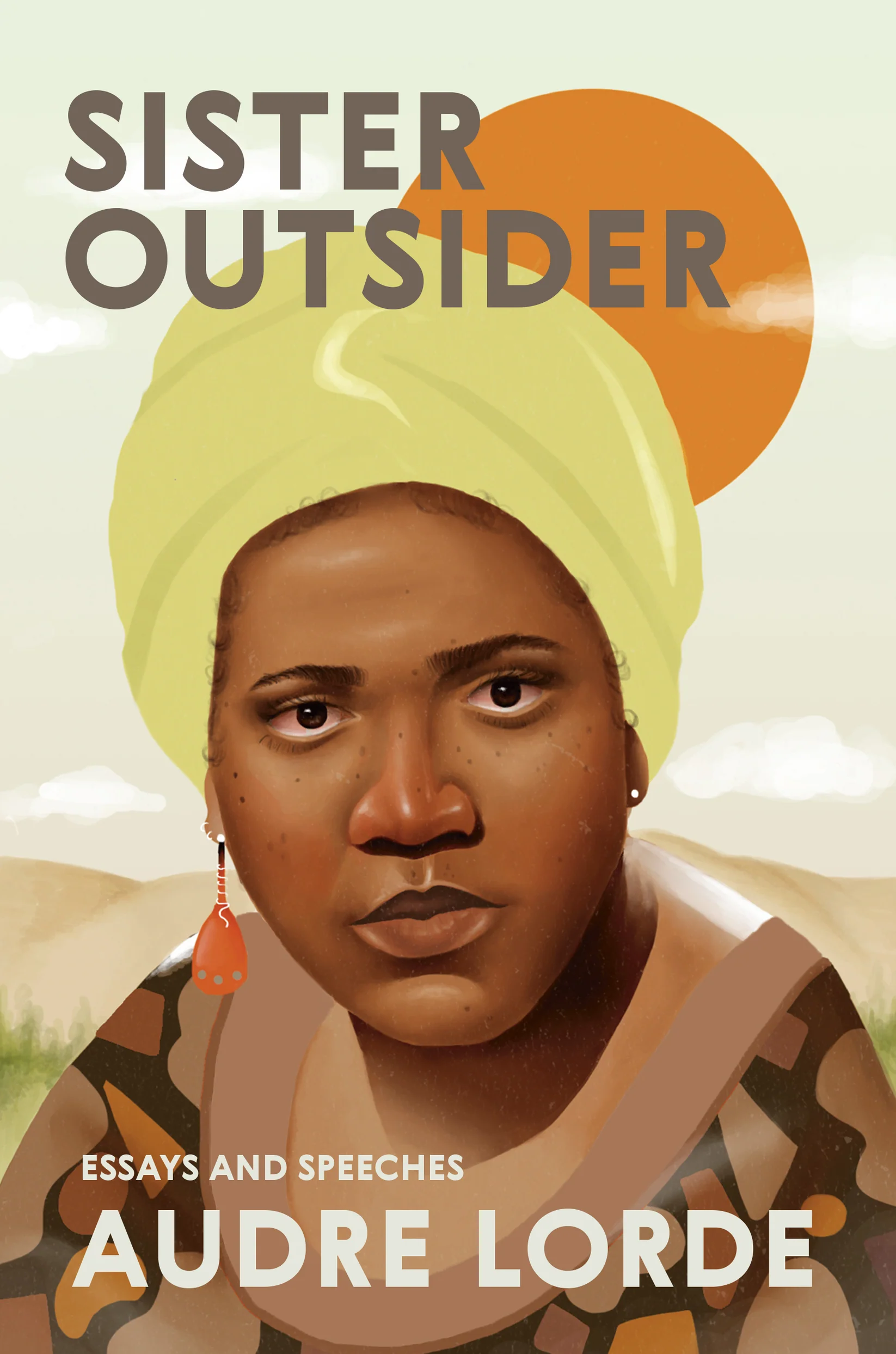
August 2025
Decolonizing the Mind: The Politics of Language in African Literature
by Ngugi wa Thiong’o
Focuses:
Language as a Tool of Oppression,
Education as a Site of Violence, The Role of Literature in Liberation, Psychological Decolonization, Resistance Through Language
by Ngugi wa Thiong’o
Focuses:
Language as a Tool of Oppression,
Education as a Site of Violence, The Role of Literature in Liberation, Psychological Decolonization, Resistance Through Language
A collection of essays about language and its constructive role in national culture, history, and identity, that advocates for linguistic decolonization.
'The language of literature', Ngũgĩ writes, 'cannot be discussed meaningfully outside the context of those social forces which have made it both an issue demanding our attention, and a problem calling for a resolution.' First published in 1986, Decolonising the Mind is one of Ngũgĩ's best-known and most-cited non-fiction publications, helping to cement him as a pre-eminent voice theorizing the 'language debate' in postcolonial studies.
Ngũgĩ wrote his first novels and plays in English but was determined, even before his detention without trial in 1978, to move to writing in Gikuyu. He describes the book as 'a summary of some of the issues in which I have been passionately involved for the last twenty years of my practice in fiction, theatre, criticism, and in teaching of literature...'. Split into four essays - 'The Language of African Literature', 'The Language of African Theatre', 'The Language of African Fiction', and 'The Quest for Relevance' - the book offers an anti-imperialist perspective on the destiny of Africa and the role of languages in combatting and perpetrating imperialism and neo-colonialism in African nations.
Buy it local Join a book club
'The language of literature', Ngũgĩ writes, 'cannot be discussed meaningfully outside the context of those social forces which have made it both an issue demanding our attention, and a problem calling for a resolution.' First published in 1986, Decolonising the Mind is one of Ngũgĩ's best-known and most-cited non-fiction publications, helping to cement him as a pre-eminent voice theorizing the 'language debate' in postcolonial studies.
Ngũgĩ wrote his first novels and plays in English but was determined, even before his detention without trial in 1978, to move to writing in Gikuyu. He describes the book as 'a summary of some of the issues in which I have been passionately involved for the last twenty years of my practice in fiction, theatre, criticism, and in teaching of literature...'. Split into four essays - 'The Language of African Literature', 'The Language of African Theatre', 'The Language of African Fiction', and 'The Quest for Relevance' - the book offers an anti-imperialist perspective on the destiny of Africa and the role of languages in combatting and perpetrating imperialism and neo-colonialism in African nations.
Buy it local Join a book club
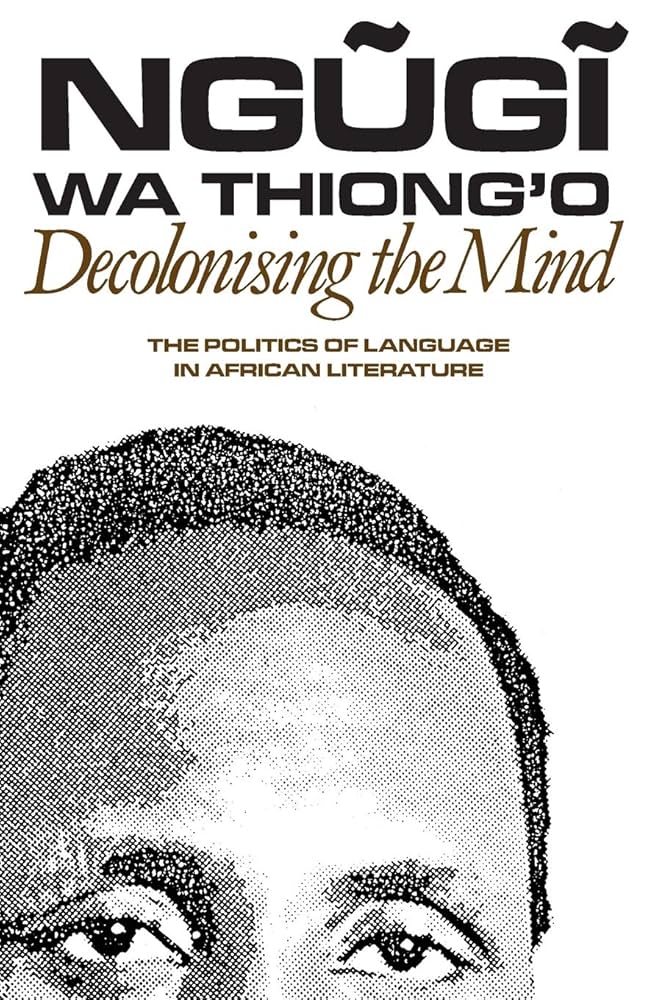
July 2025
Krik? Krak!
by Edwidge Danticat
Focuses:
Family as a Source of Posterity,
Gendered Violence, Femme Solidarity, Power of Hope
by Edwidge Danticat
Focuses:
Family as a Source of Posterity,
Gendered Violence, Femme Solidarity, Power of Hope
When Haitians tell a story, they say "Krik?" and the eager listeners answer "Krak!" In Krik? Krak! Danticat establishes herself as the latest heir to that narrative tradition with nine stories that encompass both the cruelties and the high ideals of Haitian life. They tell of women who continue loving behind prison walls and in the face of unfathomable loss; of a people who resist the brutality of their rulers through the powers of imagination. The result is a collection that outrages, saddens, and transports the reader with its sheer beauty.
Buy it local Join a book club
Buy it local Join a book club

June 2025
Blessings
by Chukwuebuka Ibeh
Focuses:
Adolescent Desire,
Impacts of Familial and Cultural Dynamics on Youth, Coming of Age, LGBTQ Experience
by Chukwuebuka Ibeh
Focuses:
Adolescent Desire,
Impacts of Familial and Cultural Dynamics on Youth, Coming of Age, LGBTQ Experience
Moonlight meets Purple Hibiscus in this gay coming-of-age novel from an astonishing young talent, set in post-military Nigeria and culminating in the Same-Sex Marriage Prohibition Act of 2014.
Obiefuna has always been the black sheep of his family—sensitive where his father, Anozie, is pragmatic, a dancer where his brother, Ekene, is a natural athlete. But when an intimate connection blossoms between Obiefuna and a boy from a nearby village, happiness is fleeting once his father catches them together and banishes him to boarding school.
Obiefuna finds and hides who he truly is as he navigates his new school’s strict hierarchy and unpredictable violence. Back home, his mother Uzoamaka must contend with the absence of her beloved son, her husband’s cryptic reasons for sending him away, and the hard truths that they’ve all been hiding from. As Nigeria teeters on the brink of criminalizing same-sex relationships, Obiefuna’s life, or the life he wants to live, becomes even further out of a reach and more dangerous than ever before.
Buy it local Join a book club
Obiefuna has always been the black sheep of his family—sensitive where his father, Anozie, is pragmatic, a dancer where his brother, Ekene, is a natural athlete. But when an intimate connection blossoms between Obiefuna and a boy from a nearby village, happiness is fleeting once his father catches them together and banishes him to boarding school.
Obiefuna finds and hides who he truly is as he navigates his new school’s strict hierarchy and unpredictable violence. Back home, his mother Uzoamaka must contend with the absence of her beloved son, her husband’s cryptic reasons for sending him away, and the hard truths that they’ve all been hiding from. As Nigeria teeters on the brink of criminalizing same-sex relationships, Obiefuna’s life, or the life he wants to live, becomes even further out of a reach and more dangerous than ever before.
Buy it local Join a book club

May 2025
Africa Is Not a Country
by Dipo Faloyin
Focuses:
The Myth of a Single Story,
Colonial Borders and Their Lasting Impact,
Everyday African Lives vs. Media Narratives,
Diaspora Identity and Double Consciousness
by Dipo Faloyin
Focuses:
The Myth of a Single Story,
Colonial Borders and Their Lasting Impact,
Everyday African Lives vs. Media Narratives,
Diaspora Identity and Double Consciousness
Africa Is Not A Country is a bright portrait of modern Africa that pushes back against harmful stereotypes to tell a more comprehensive story.
You already know these stereotypes. So often Africa is depicted simplistically as an arid red landscape of famines and safaris, uniquely plagued by poverty and strife.
In this funny and insightful book, Dipo Faloyin offers a much-needed corrective. He examines each country's colonial heritage, and explores a wide range of subjects, from chronicling urban life in Lagos and the lively West African rivalry over who makes the best Jollof rice, to the story of democracy in seven dictatorships and the dangers of stereotypes in popular culture.
By turns intimate and political, Africa Is Not A Country brings the story of the continent towards reality, celebrating the energy and fabric of its different cultures and communities in a way that has never been done before.
Buy it local Join a book club
You already know these stereotypes. So often Africa is depicted simplistically as an arid red landscape of famines and safaris, uniquely plagued by poverty and strife.
In this funny and insightful book, Dipo Faloyin offers a much-needed corrective. He examines each country's colonial heritage, and explores a wide range of subjects, from chronicling urban life in Lagos and the lively West African rivalry over who makes the best Jollof rice, to the story of democracy in seven dictatorships and the dangers of stereotypes in popular culture.
By turns intimate and political, Africa Is Not A Country brings the story of the continent towards reality, celebrating the energy and fabric of its different cultures and communities in a way that has never been done before.
Buy it local Join a book club

April 2025
A Small Place
by Jamaica Kincaid
Focuses:
Tourism as a neo-colonial structure
Racism and legacies of colonialism
The Prevalence of Corruption
by Jamaica Kincaid
Focuses:
Tourism as a neo-colonial structure
Racism and legacies of colonialism
The Prevalence of Corruption
A Small Place by Jamaica Kincaid (1988) is a powerful work of creative nonfiction that examines the enduring impact of colonialism and slavery on Antigua and its people, focusing on the corruption of its government and the superficiality of its tourism-driven economy.
Buy it local Join a book club
Buy it local Join a book club

March 2025
Chain-Gang All-Stars
by Nana Kwame Adjei-Brenyah
Focuses:
Prison Industrial Complex
Dystopian
by Nana Kwame Adjei-Brenyah
Focuses:
Prison Industrial Complex
Dystopian
In CAPE, prisoners travel as Links in Chain-Gangs, competing in death-matches for packed arenas with righteous protestors at the gates. Thurwar and Staxxx, both teammates and lovers, are the fan favorites. And if all goes well, Thurwar will be free in just a few matches, a fact she carries as heavily as her lethal hammer. As she prepares to leave her fellow Links, she considers how she might help preserve their humanity, in defiance of these so-called games, but CAPE's corporate owners will stop at nothing to protect their status quo and the obstacles they lay in Thurwar's path have devastating consequences.
Buy it local Join a book club
Buy it local Join a book club
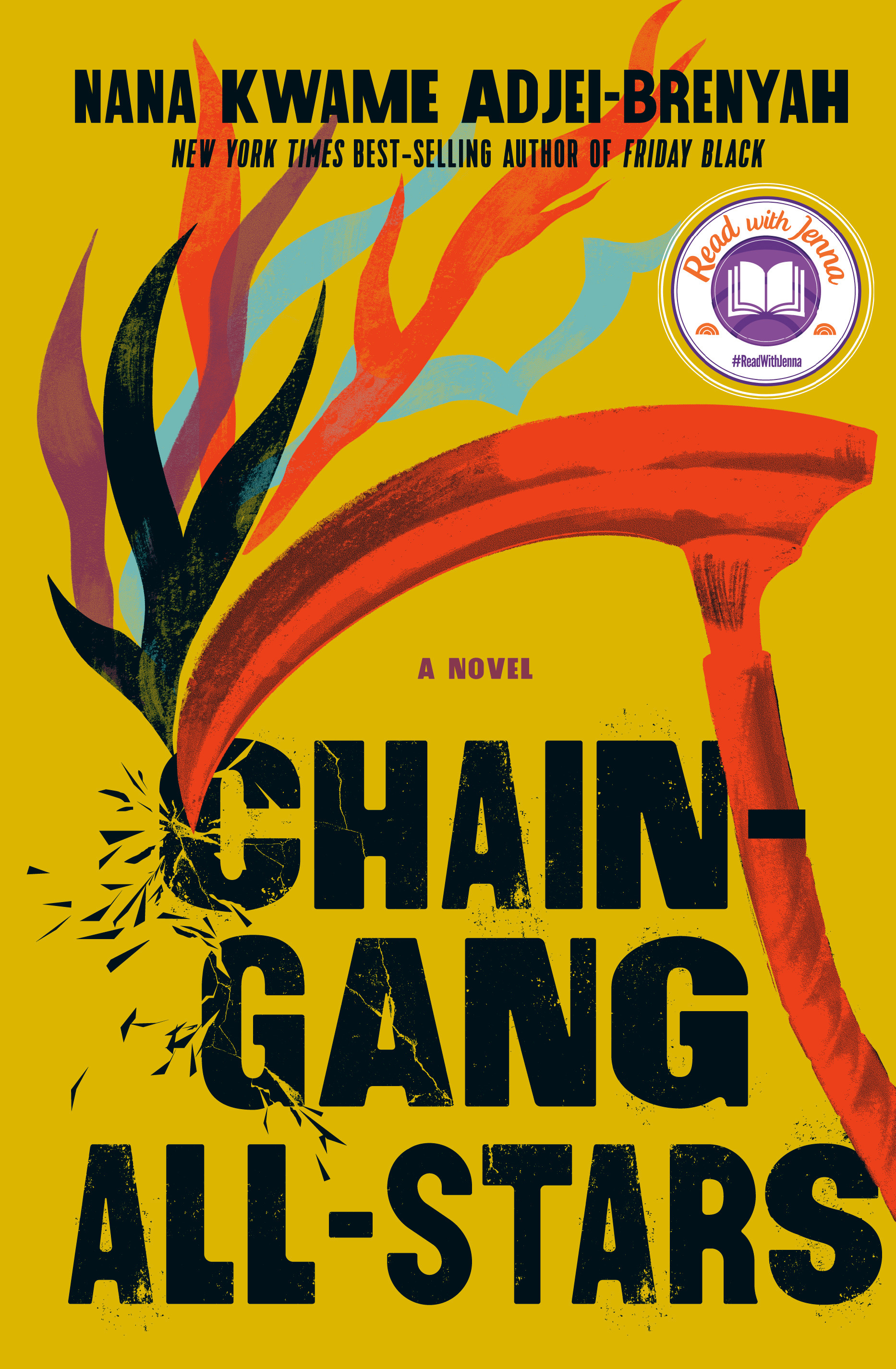
February 2025
Women’s Liberation and the African Freedom Struggle
by Thomas Sankara
Focuses:
Popular Revolution
Women’s Liberation
Decolonization
by Thomas Sankara
Focuses:
Popular Revolution
Women’s Liberation
Decolonization
“There is no true social revolution without the liberation of women,” explains Thomas Sankara, the leader of the 1983-87 revolution in Burkina Faso. Workers and peasants in this West African country established a popular revolutionary government and began to combat the hunger, illiteracy, and economic backwardness imposed by imperialist domination. Join us for our first book club of 2025!
Buy it local Join a book club
Buy it local Join a book club

October 2024
Parable of the Talents
by Octavia Butler
Focuses:
Dystopian Fiction
American Society
Survival
by Octavia Butler
Focuses:
Dystopian Fiction
American Society
Survival
In 2032, Lauren Olamina has survived the destruction of her home and family, and realized her vision of a peaceful community in northern California based on her newly founded faith, Earthseed. The fledgling community provides refuge for outcasts facing persecution after the election of an ultra-conservative president who vows to "make America great again." In an increasingly divided and dangerous nation, Lauren's subversive colony--a minority religious faction led by a young black woman--becomes a target for President Jarret's reign of terror and oppression.
Years later, Asha Vere reads the journals of a mother she never knew, Lauren Olamina. As she searches for answers about her own past, she also struggles to reconcile with the legacy of a mother caught between her duty to her chosen family and her calling to lead humankind into a better future.
Buy it local Join a book club
Years later, Asha Vere reads the journals of a mother she never knew, Lauren Olamina. As she searches for answers about her own past, she also struggles to reconcile with the legacy of a mother caught between her duty to her chosen family and her calling to lead humankind into a better future.
Buy it local Join a book club
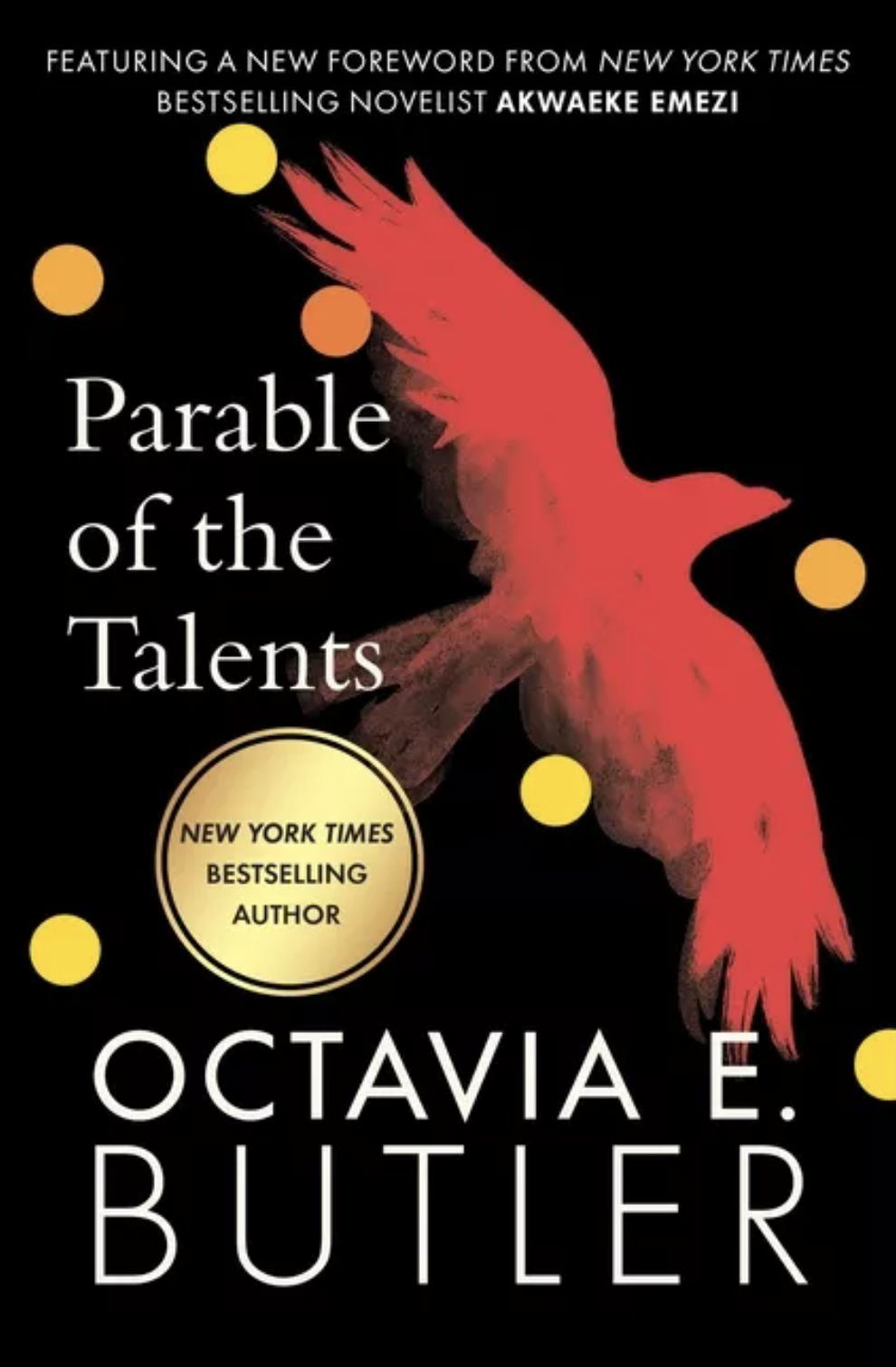
September 2024
The Black Woman:
An Anthlogy
edited by Toni Cade Bambara
Focuses:
Black Women in Revolution
Post Civil Rights
Black Radical Tradition
An Anthlogy
edited by Toni Cade Bambara
Focuses:
Black Women in Revolution
Post Civil Rights
Black Radical Tradition
The Black Woman introduced readers to a new wave of voices that demanded to be heard. In this volume of original essays, poems, and stories, a chorus of outspoken women--many who would become leaders in their fields, such as Alice Walker, Audre Lorde, Nikki Giovanni, Paule Marshall, Grace Lee Boggs, and Abbey Lincoln among them-- tackled issues surrounding race and sex, body image, the economy, politics, labor, and much more. Their words still resonate with truth, relevance, and insight today as the fight for Black liberation continues.
Buy it local Join a book club
Buy it local Join a book club
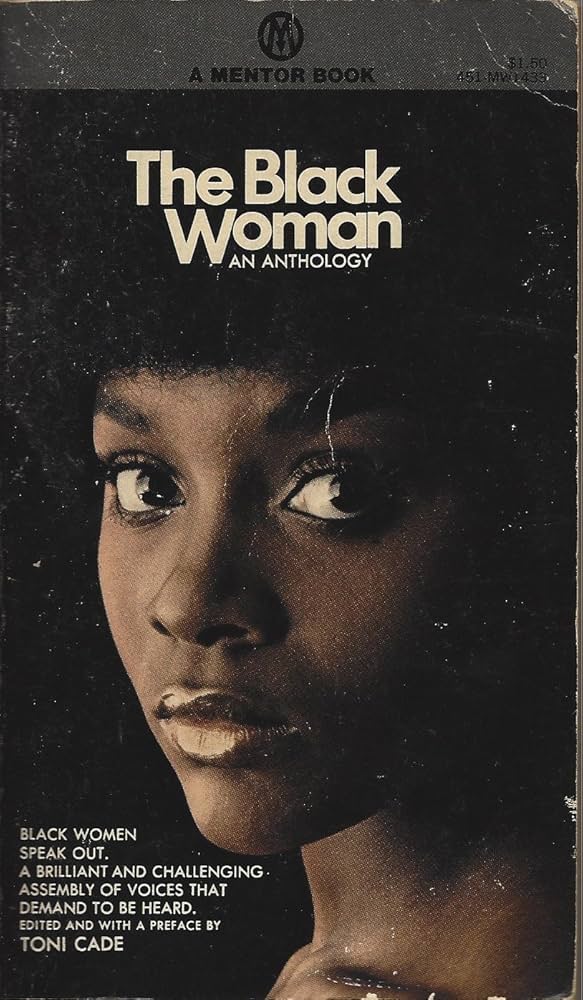
August 2024
Tip of the Spear
by Orisanmi Burton
Focuses:
Attica Revolt
Prison Repression
Black Radical Tradition
by Orisanmi Burton
Focuses:
Attica Revolt
Prison Repression
Black Radical Tradition
Tip of the Spear argues that prisons are a domain of hidden warfare within US borders. With this book, Orisanmi Burton explores what he terms the Long Attica Revolt, a criminalized tradition of Black radicalism that propelled rebellions in New York prisons during the 1970s. The reaction to this revolt illuminates what Burton calls prison pacification: the coordinated tactics of violence, isolation, sexual terror, propaganda, reform, and white supremacist science and technology that state actors use to eliminate Black resistance within and beyond prison walls.
Buy it local Join a book club
Buy it local Join a book club
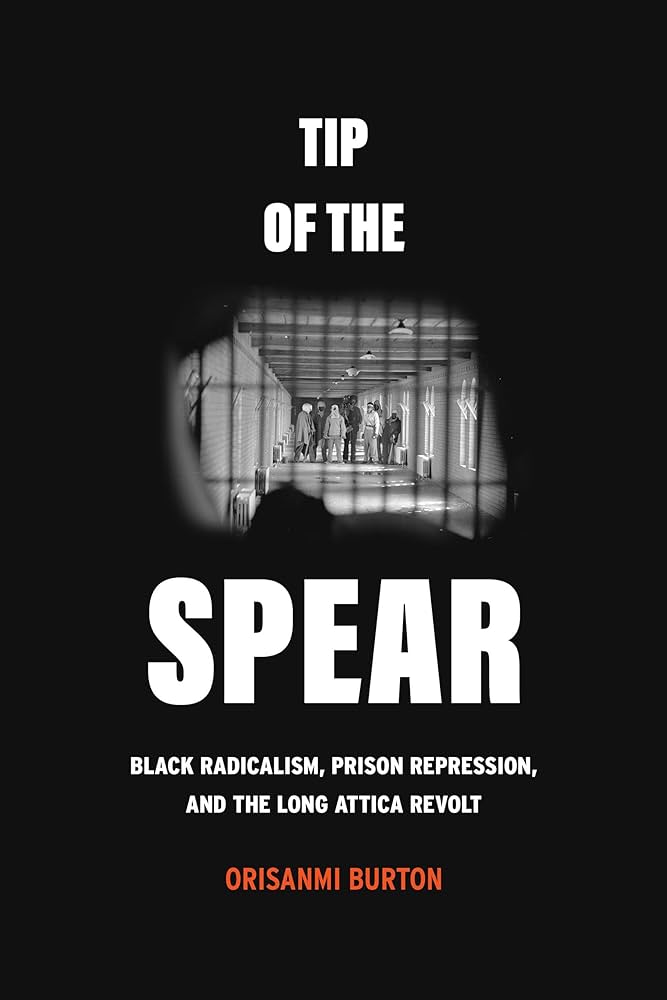
Big Black: Stand at Attica
by Frank Smith
Focuses:
Attica Revolt
Prison Repression
Biography
by Frank Smith
Focuses:
Attica Revolt
Prison Repression
Biography
In the summer of 1971, the New York’s Attica State Prison is a symbol of systemic opression in America. Frank “Big Black” Smith finds himself at the center of the Attica revolt, struggling to protect hostages, prisoners and negotiators alike. This is a graphic novel that recounts Frank Smith’s experiences before, during, and after the Attica uprising.
Buy it local Join a book club
Buy it local Join a book club
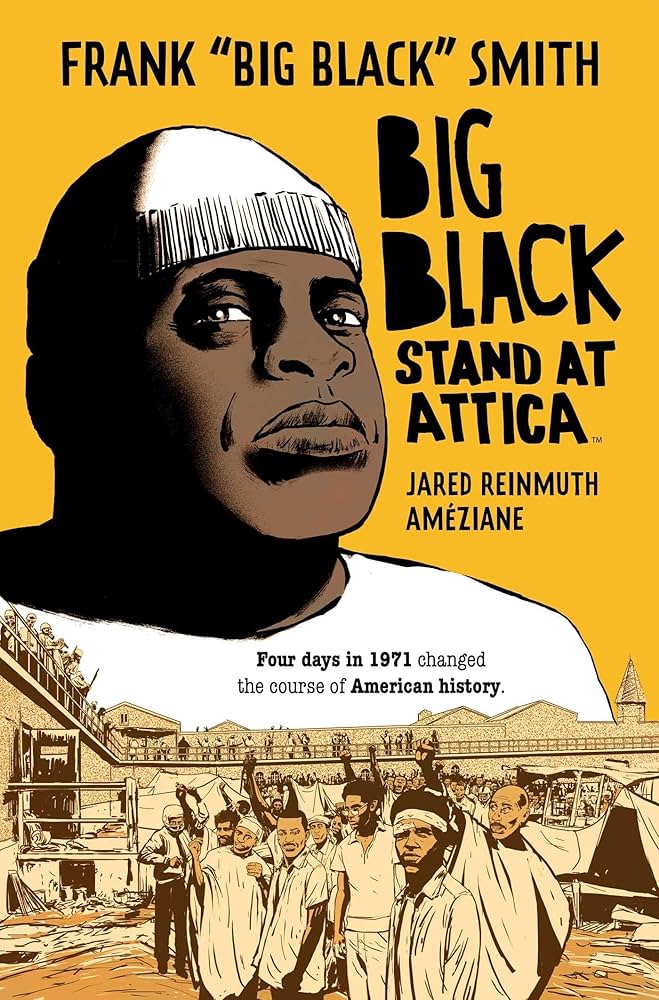
July 2024
How to Say Babylon
by Safiya Sinclair
Focuses:
Culture
Family
Rastafarianism
by Safiya Sinclair
Focuses:
Culture
Family
Rastafarianism
How to Say Babylon is Sinclair’s reckoning with patriarchy and tradition, and the legacy of colonialism in Jamaica. The reader is brought therough Safiya’s coming of age as it relates to her experience within her father’s Rastafarianism.
Buy it local Join a book club
Buy it local Join a book club
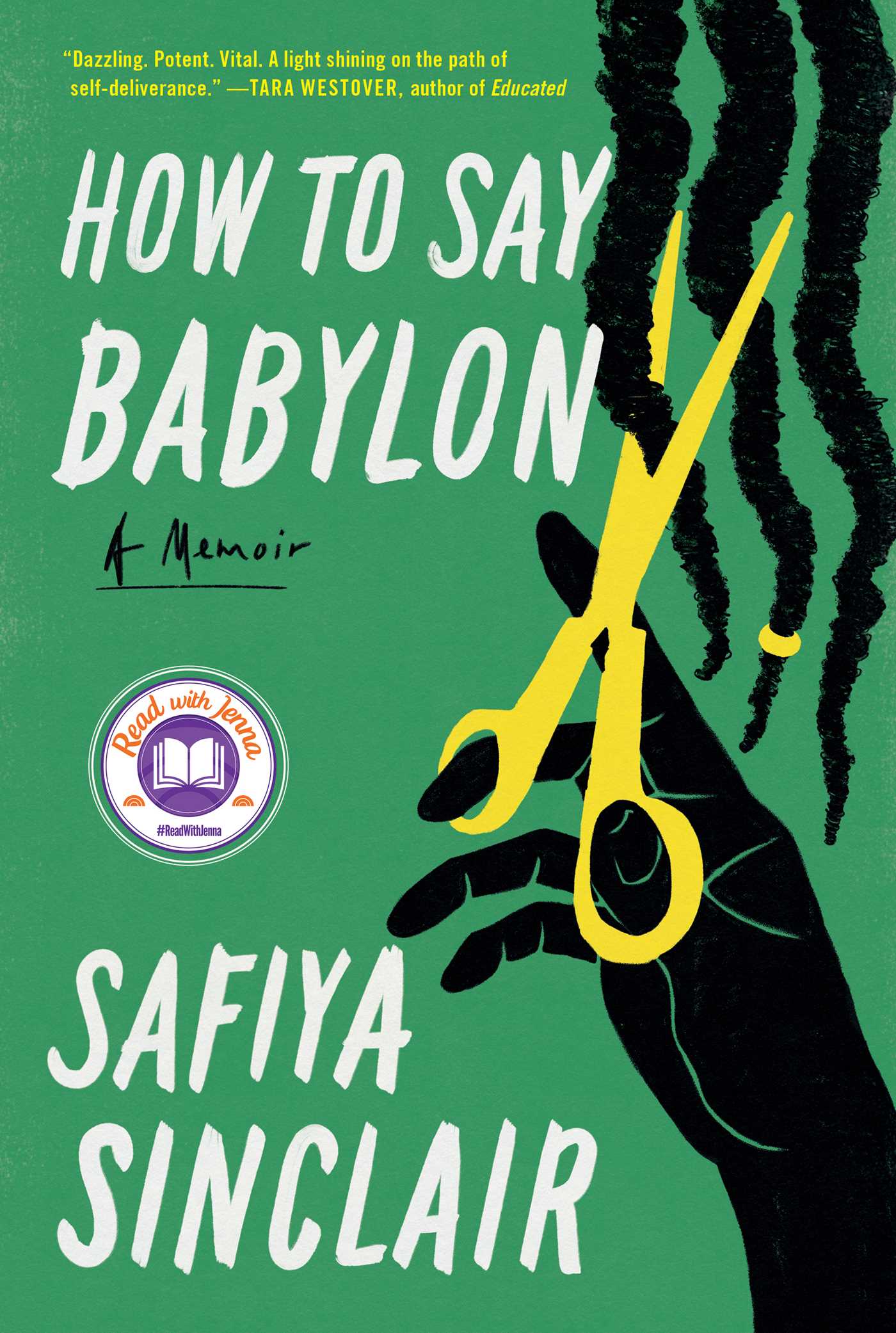
Rasta and Resistance
byHorace Campbell
Focuses:
Black Resistance Rastafarianism
History
byHorace Campbell
Focuses:
Black Resistance Rastafarianism
History
Rasta and Resistance is a study of the Rastafarian Movement in all its manifestations, from its evolution in the hills of Jamaica to its present manifestations in the streets of Birmingham and the Shashamane Settlement in Ethiopia. It traces the cultural, political and spiritual sources of this movement of resistance, highlighting the quest for change among an oppressed people. This book serves to break the intellectual traditions which placed the stamp of millenarianism on Rasta.
Buy it local Join a book club
Buy it local Join a book club
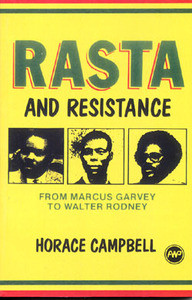
June 2024
Another Word for Love
by Carvell Wallace
Focuses:
LGBTQ
Black Masculinity
Identity
by Carvell Wallace
Focuses:
LGBTQ
Black Masculinity
Identity
In Another Word for Love, Carvell Wallace excavates layers of his own history, situated in the struggles and beauty of growing up Black and queer in America. With courage, vulnerability, and a remarkable expansiveness of spirit, Another Word for Love makes an irresistible case for life, healing, the fullness of our humanity, and, of course, love.
Buy it local Join a book club
Buy it local Join a book club
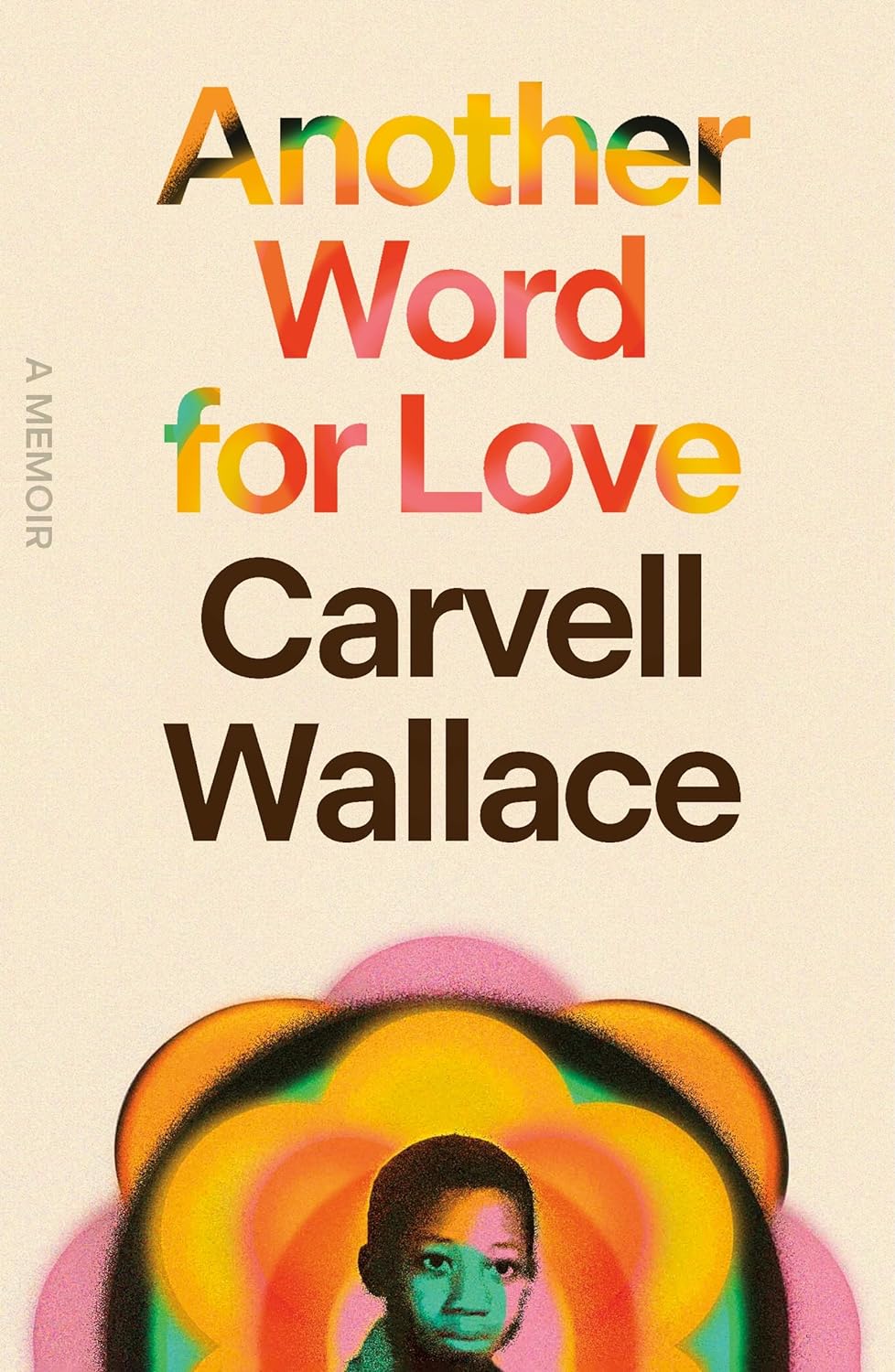
Doppelgangbanger
by Cortney Lamar Charleston
Focuses:
Black Masculinity
Culture
Poetry
by Cortney Lamar Charleston
Focuses:
Black Masculinity
Culture
Poetry
Cortney Lamar Charleston grapples with the landscapes of Chicago’s South Side and surrounding suburbs, and the tensions that impact a Black boy’s struggle through self-destructive definitions of manhood. Charleston’s vulnerability invites readers to intimately witness the speaker’s journey from adopted persona to an authentic self that defies traditional molds.
Buy it local Join a book club
Buy it local Join a book club

May 2024
Discourse on Colonialism
by Aimé Césaire
Focuses:
Colonialism
Imperialism
by Aimé Césaire
Focuses:
Colonialism
Imperialism
Aimé Césaire eloquently describes the brutal impact of capitalism and colonialism on both the colonizer and colonized, exposing the contradictions and hypocrisy implicit in western notions of “progress” and “civilization” upon encountering the “savage”, “uncultured,” or “primitive.”
Buy it local Join a book club
Buy it local Join a book club

Things Fall Apart
by Chinua Achebe
Focuses:
Colonialism
Culture
Africa
by Chinua Achebe
Focuses:
Colonialism
Culture
Africa
A classic narrative about Africa's encounter with Europe as it establishes a colonial presence on the continent. Told through the fictional experiences of Okonkwo, a wealthy and fearless Igbo warrior of Umuofia in the late 1800s, Things Fall Apart explores one man's futile resistance to the devaluing of his Igbo traditions by British political forces and his despair as his community capitulates to the new order.
Buy it local Join a book club
Buy it local Join a book club
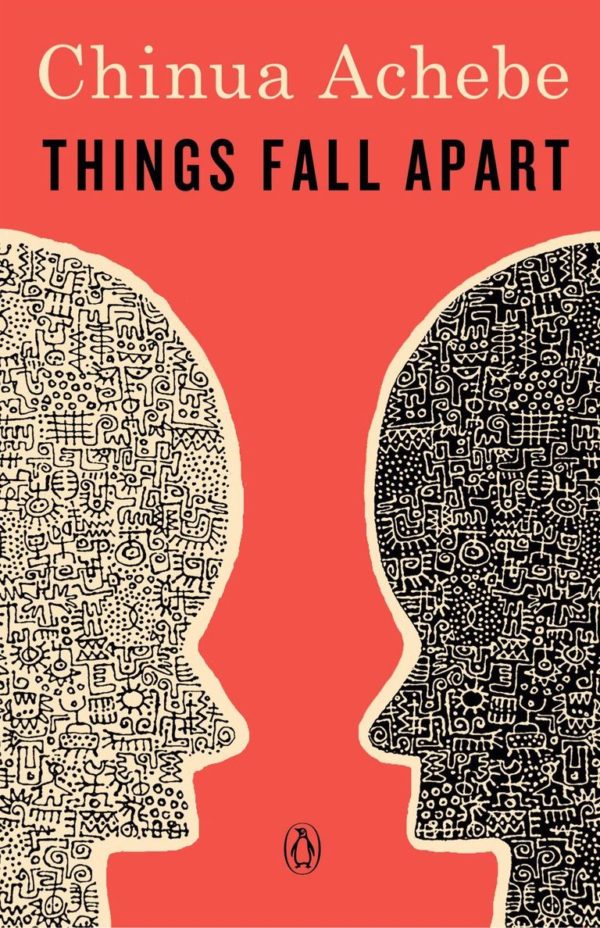
April 2024
Waiting to Exhale
by Terry McMillan
Focuses:
Sisterhood
Black Life
by Terry McMillan
Focuses:
Sisterhood
Black Life
Published in 1992, Waiting to Exhale showcases the power of sisterhood as four women navigate the trials of life. McMillan explores the midlife experience of “waiting” for life to begin, betrayals and the private lives of Black women.
Buy it local Join a book club
Buy it local Join a book club

March 2024
Barracoon: The Story of the Last “Black Cargo”
by Zora Neale Hurston
Focuses:
Memory
Vernacular
Enslavement
by Zora Neale Hurston
Focuses:
Memory
Vernacular
Enslavement
Barracoon: The Story of the Last “Black Cargo” is the firsthand account of the life of Oluale “Cudjo Lewis” Kossola. The text was developed by anthropologist and creative writer Hurston, who balances Cudjo’s voice alongside her framing narrative.
Buy it local Join a book club
Buy it local Join a book club
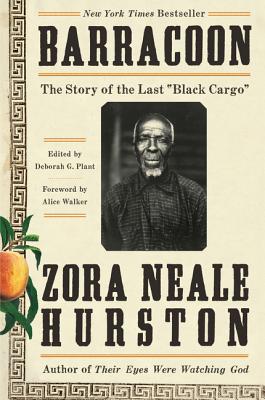
February 2024
In Pursuit of Revolutionary Love
by Joy James
Focuses:
Community
Philosophy
Politics
by Joy James
Focuses:
Community
Philosophy
Politics
In Pursuit of Revolutionary Love focuses on community and abolition, James carves a path through the love and grief that is the motor for Black liberation. She uses her experience working with political prisoners to bring forward the traces of this love that makes freedom possible.
Buy it local Join a book club
Buy it local Join a book club
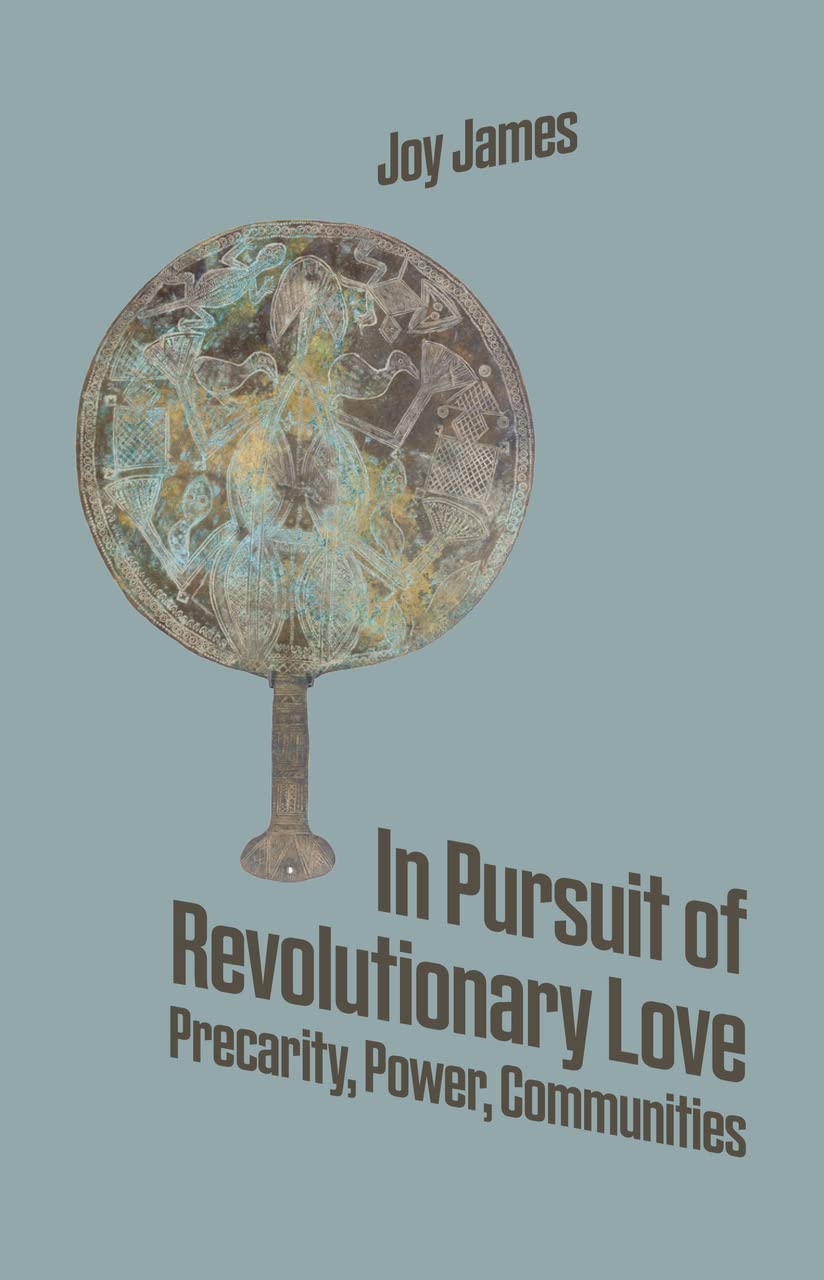
My Mother Was a Freedom Fighter
by Aja Monet
Focuses:
Civil Rights
Poetry
Solidarity
by Aja Monet
Focuses:
Civil Rights
Poetry
Solidarity
My Mother Was a Freedom Fighter is poet Aja Monet’s ode to mothers, daughters, and sisters—the tiny gods who fight to change the world.
Buy it local Join a book club
Buy it local Join a book club
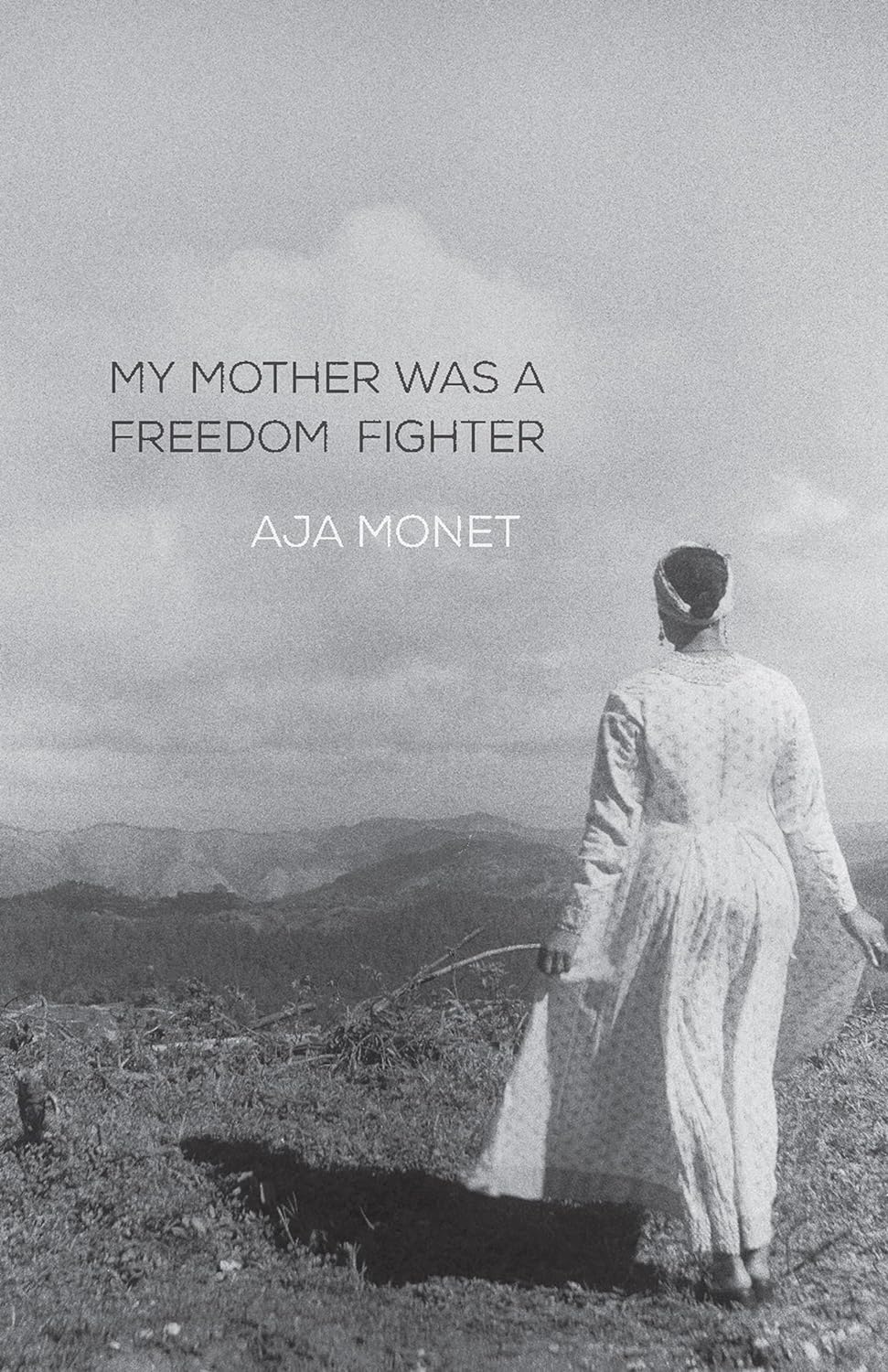
January 2024
How Europe Underdeveloped Africa
by Walter Rodney
Focuses:
Colonialism
Imperialism
Capitalism
by Walter Rodney
Focuses:
Colonialism
Imperialism
Capitalism
How Europe Underdeveloped Africa is a core text in political economy, detailing the impact of slavery and colonialism on the history of international capitalism. Rodney makes the unflinching case that African maldevelopment is not a natural feature of geography, but a direct product of imperial extraction from the continent, a practice that continues up into the present.
Buy it local Join a book club
Buy it local Join a book club

November 2023
Freedom is a Constant Struggle
by Angela Davis
Focuses:
Solidarity
Activism
Palestine
by Angela Davis
Focuses:
Solidarity
Activism
Palestine
Reflecting on the importance of Black feminism, intersectionality, and prison abolitionism for today's struggles, Davis discusses the legacies of previous liberation struggles, from the Black Freedom Movement to the South African anti-Apartheid movement. She highlights connections and analyzes today's struggles against state terror, from Ferguson to Palestine.
Buy it local Join a book club
Buy it local Join a book club
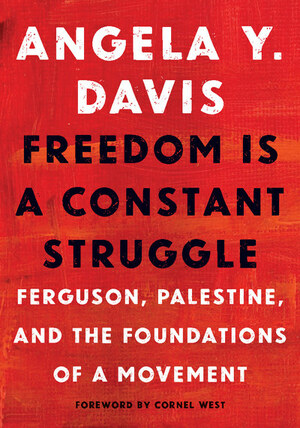
The Hundred Years' War on Palestine
by Rashid Khalidi
Focuses:
Imperialism
Genocide
Settler-Colonialism
by Rashid Khalidi
Focuses:
Imperialism
Genocide
Settler-Colonialism
In this book, Khalidi breaks the hundred years of war on Palestine into six periods. He describes the Balfour declaration and all the British bias in favor of Jewish Zionists that followed as the first declaration of war on Palestine. He shows the simple fact that the great colonial power at the time, Great Britain, not only acquiesced with Jewish Zionists but also denied the existence of the Palestinian people and Palestinian nationalism. Khalidi argues that while settler colonialism was ending in the middle of the 20th century, in Palestine it was just beginning.
Buy it local Join a book club
Buy it local Join a book club

October 2023
Devil in a Blue Dress
by Walter Mosley
Focuses:
Mystery
Fiction
Literature
by Walter Mosley
Focuses:
Mystery
Fiction
Literature
The year is 1948, the town is Los Angeles.
Easy Rawlins, a black war veteran, has just been fired from his job at a defense factory plant. Drinking in his friend’s bar, he’s wondering how he’ll manage to make ends meet, when a white man in a linen suit approaches him and offers him good money if Easy will simply locate Miss Daphne Money, a missing blonde beauty known to frequent black jazz clubs.
Buy it local Join a book club
Buy it local Join a book club
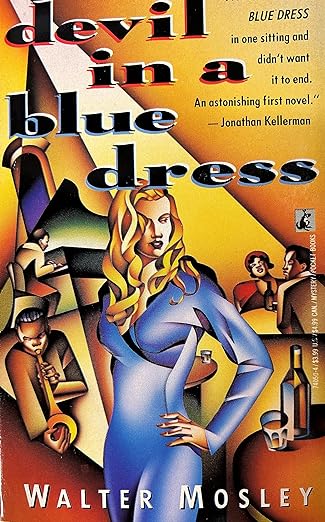
No More Police
by Andrea Ritchie & Mariame Kaba
Focuses:
Social Justice
Politics
Activism
by Andrea Ritchie & Mariame Kaba
Focuses:
Social Justice
Politics
Activism
Mariame Kaba and attorney and organizer Andrea J. Ritchie detail why policing doesn’t stop violence, instead perpetuating widespread harm; outline the many failures of contemporary police reforms; and explore demands to defund police, divest from policing, and invest in community resources to create greater safety through a Black feminist lens.
Buy it local Join a book club
Buy it local Join a book club

September 2023
Vagabonds!: A Novel
by Eloghosa Osunde
Focuses:
Social Justice
Short Stories
LGBTQ
by Eloghosa Osunde
Focuses:
Social Justice
Short Stories
LGBTQ
As in Nigeria, vagabonds are those whose existence is literally outlawed: the queer, the poor, the displaced, the footloose and rogue spirits. They are those who inhabit transient spaces, who make their paths and move invisibly, who embrace apparitions, old vengeances and alternative realities. Eloghosa Osunde's brave, fiercely inventive novel traces a wild array of characters for whom life itself is a form of resistance: a driver for a debauched politician with the power to command life and death; a legendary fashion designer who gives birth to a grown daughter; a lesbian couple whose tender relationship sheds unexpected light on their experience with underground sex work; a wife and mother who attends a secret spiritual gathering that shifts her world. As their lives intertwine—in bustling markets and underground clubs, churches and hotel rooms—vagabonds are seized and challenged by spirits who command the city's dark energy. Whether running from danger, meeting with secret lovers, finding their identities, or vanquishing their shadowselves, Osunde's characters confront and support one another, before converging for the once-in-a-lifetime gathering that gives the book its unexpectedly joyous conclusion.
Buy it local Join a book club
Buy it local Join a book club
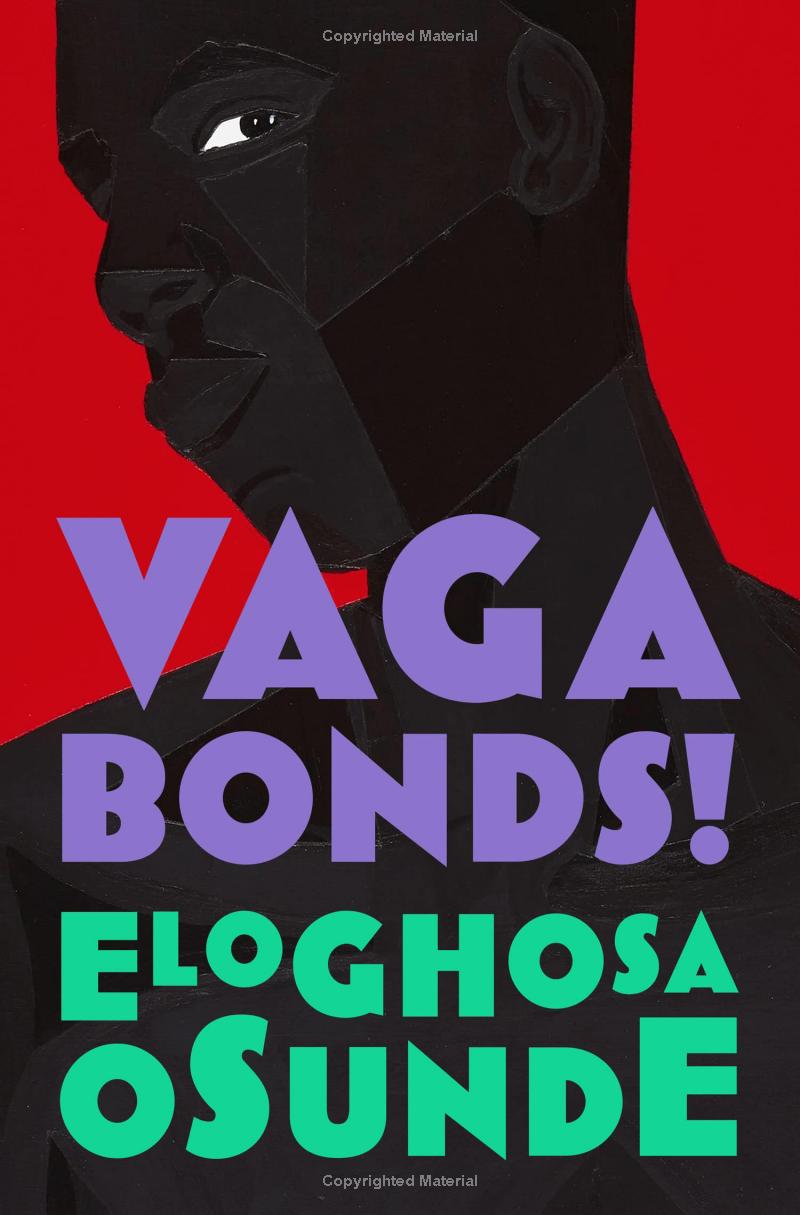
August 2023
Assata Taught Me
by Donna Murch
Focuses:
Politics
Black Liberation
Equality
by Donna Murch
Focuses:
Politics
Black Liberation
Equality
This timely and urgent book shows how a youth-led political movement has emerged in recent years to challenge the bipartisan consensus on punishment and looks to the future through a redistributive, queer, and feminist lens. Murch frames the contemporary movement in relation to earlier struggles for Black Liberation, while excavating the origins of mass incarceration and the political economy that drives it.
Buy it local Join a book club
Buy it local Join a book club
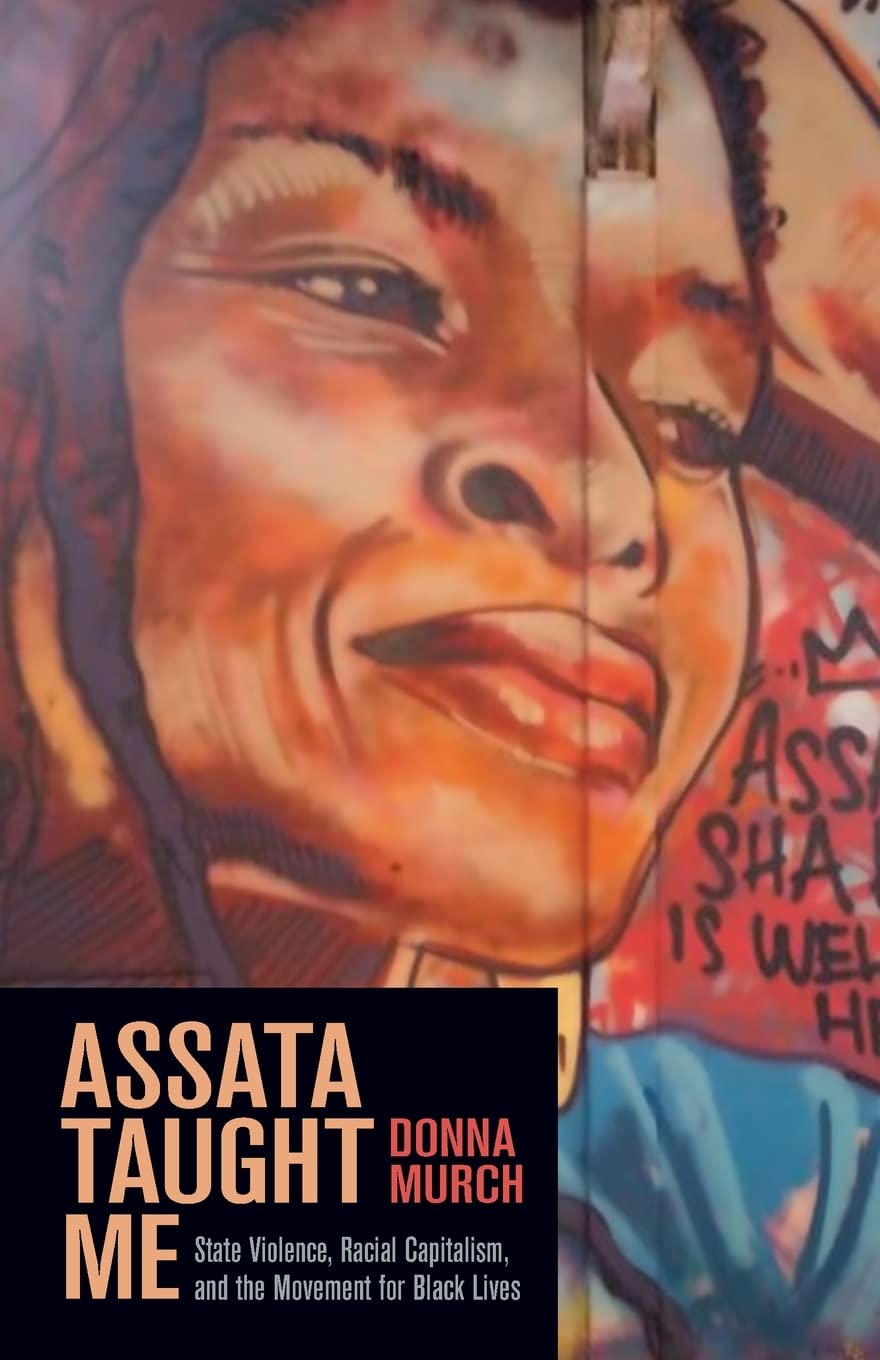
The Black Panther Party
by David F. Walker & Marcus K. Anderson
Focuses:
Politics
Black America
History
by David F. Walker & Marcus K. Anderson
Focuses:
Politics
Black America
History
Founded in Oakland, California, in 1966, the Black Panther Party for Self-Defense was a radical political organization that stood in defiant contrast to the mainstream civil rights movement. This gripping illustrated history explores the impact and significance of the Panthers, from their social, educational, and healthcare programs that were designed to uplift the Black community to their battle against police brutality through citizen patrols and frequent clashes with the FBI, which targeted the Party from its outset.
Buy it local Join a book club
Buy it local Join a book club
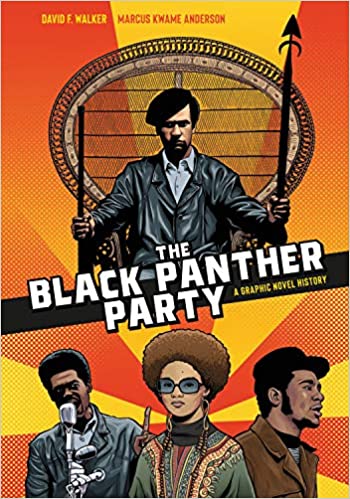
July 2023
Blues People: Negro Music in White America
by LeRoi Jones
Focuses:
Black America
Music
History
by LeRoi Jones
Focuses:
Black America
Music
History
So says Amiri Baraka (previously known as LeRoi Jones) in the Introduction to Blues People, his classic work on the place of jazz and blues in American social, musical, economic, and cultural history. From the music of African slaves in the United States through the music scene of the 1960's, Baraka traces the influence of what he calls "negro music" on white America—not only in the context of music and pop culture but also in terms of the values and perspectives passed on through the music. In tracing the music, he brilliantly illuminates the influence of African Americans on American culture and history
Buy it local Join a book club
Buy it local Join a book club
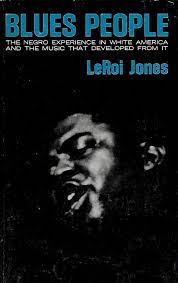
June 2023
Coldest Winter Ever
by Sister Souljah
Focuses:
Fiction
Black America
Contemporary
by Sister Souljah
Focuses:
Fiction
Black America
Contemporary
I came busting into the world during one of New York's worst snowstorms, so my mother named me Winter. Ghetto-born, Winter is the young, wealthy daughter of a prominent Brooklyn drug-dealing family. Quick-witted, sexy, and business-minded, she knows and loves the streets like the curves of her own body. But when a cold Winter wind blows her life in a direction she doesn't want to go, her street smarts and seductive skills are put to the test of a lifetime. Unwilling to lose, this ghetto girl will do anything to stay on top.
Buy it local Join a book club
Buy it local Join a book club
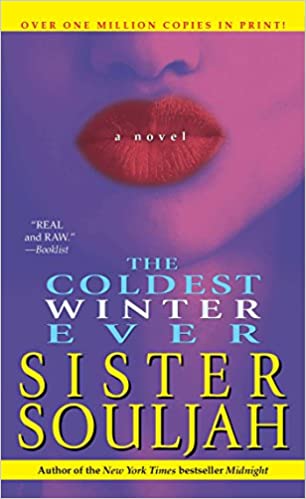
Communist Manifesto
by Karl Max & Friedrich Engels
Focuses:
Socialism
Communism
Politics
by Karl Max & Friedrich Engels
Focuses:
Socialism
Communism
Politics
The Communist Manifesto, originally titled Manifesto of the Communist Party (German: Manifest der Kommunistischen Partei) is a short 1848 book written by the German Marxist political theorists Karl Marx and Friedrich Engels. It has since been recognized as one of the world's most influential political manuscripts. Commissioned by the Communist League, it laid out the League's purposes and program. It presents an analytical approach to the class struggle (historical and present) and the problems of capitalism, rather than a prediction of communism's potential future forms.
Buy it local Join a book club
Buy it local Join a book club
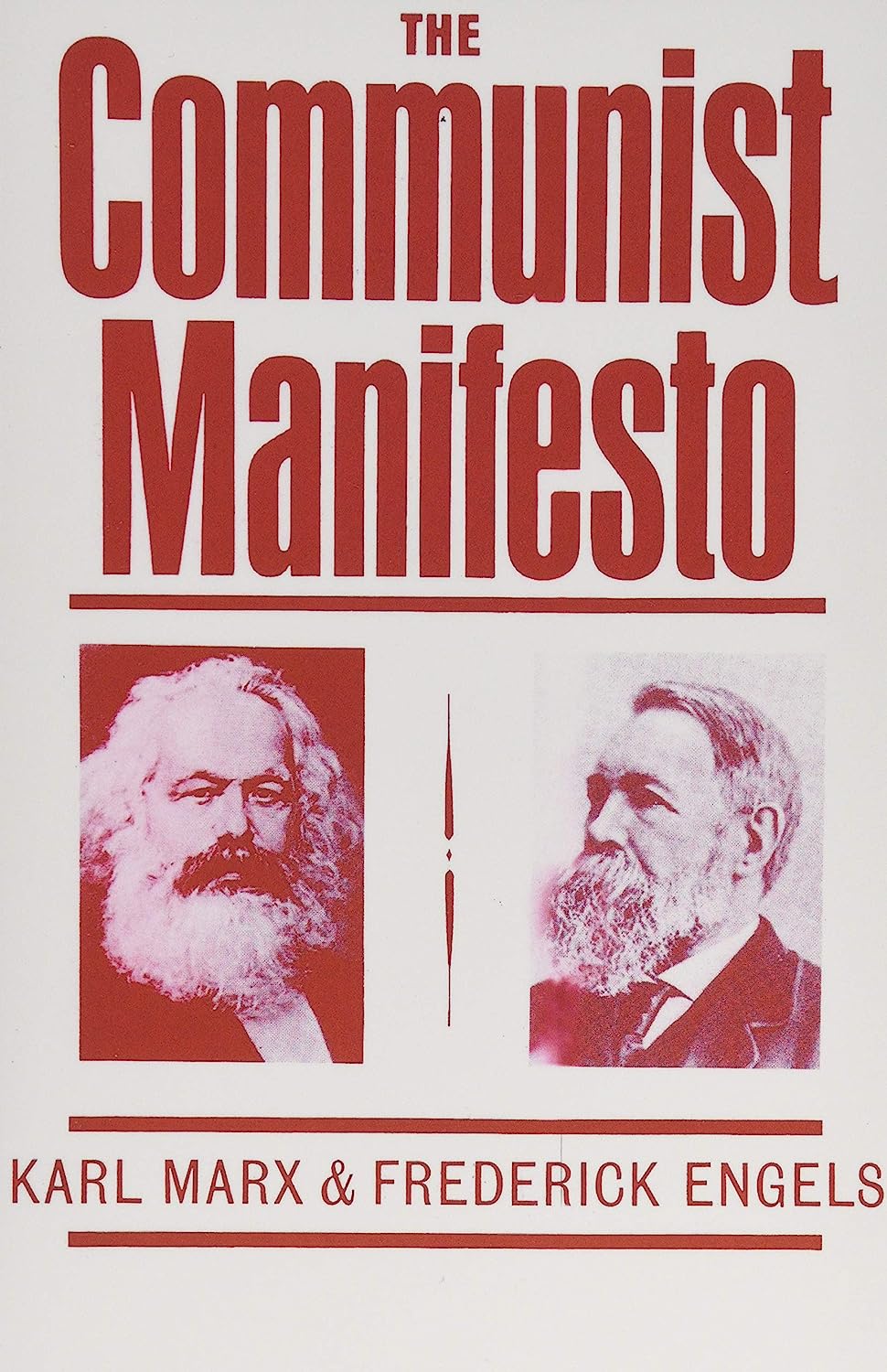
May 2023
All God’s Children Need Traveling Shoes
by Maya Angelou
Focuses:
Autobiography
Pan-Africanism
Diaspora
by Maya Angelou
Focuses:
Autobiography
Pan-Africanism
Diaspora
In 1962 the poet, musician, and performer Maya Angelou claimed another piece of her identity by moving to Ghana, joining a community of "Revolutionist Returnees" inspired by the promise of pan-Africanism. All God's Children Need Walking Shoes is her lyrical and acutely perceptive exploration of what it means to be an African American on the mother continent, where color no longer matters but where American-ness keeps asserting itself in ways both puzzling and heartbreaking. As it builds on the personal narrative of I Know Why the Caged Bird Sings and Gather Together in My Name, this book confirms Maya Angelou’s stature as one of the most gifted autobiographers of our time.
Buy it local Join a book club
Buy it local Join a book club

April 2023
Elite Capture
by Olúfẹ́mi O. Táíwò
Focuses:
Politics
Social Justice
History
by Olúfẹ́mi O. Táíwò
Focuses:
Politics
Social Justice
History
Táíwò’s crucial intervention both elucidates this complex process and helps us move beyond a binary of “class” vs. “race.” By rejecting elitist identity politics in favor of a constructive politics of radical solidarity, he advances the possibility of organizing across our differences in the urgent struggle for a better world.
Buy it local Join a book club
Buy it local Join a book club
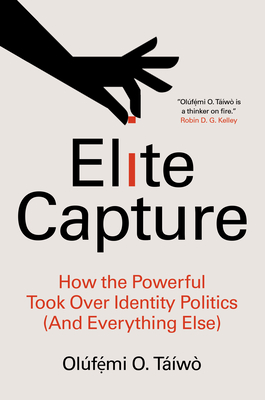
March 2023
The Temple of My Familiar
by Alice Walker
Focuses:
Feminism
African-American
Fiction
by Alice Walker
Focuses:
Feminism
African-American
Fiction
In The Temple of My Familiar, Celie and Shug from The Color Purple subtly shadow the lives of dozens of characters, all dealing in some way with the legacy of the African experience in America. From recent African immigrants, to a woman who grew up in the mixed-race rainforest communities of South America, to Celie’s own granddaughter living in modern-day San Francisco, all must come to understand the brutal stories of their ancestors to come to terms with their own troubled lives.
Buy it local Join a book club
Buy it local Join a book club
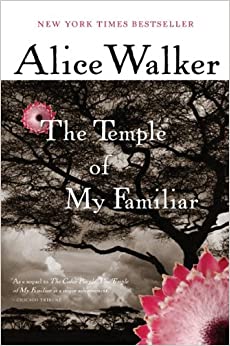
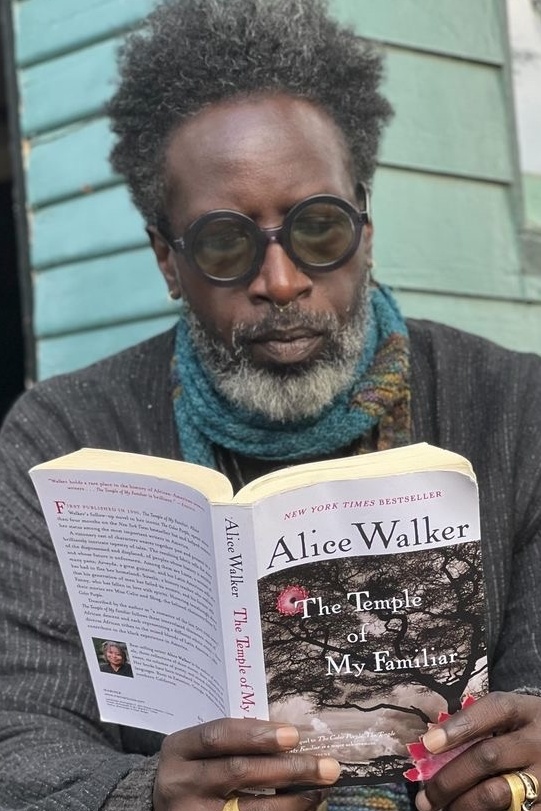
February 2023
The Stars and Blackness Between Them
by Junauda Petrus
Focuses:
Romance
Fiction
LGBTQ
by Junauda Petrus
Focuses:
Romance
Fiction
LGBTQ
Mabel quickly falls hard for Audre and is determined to take care of her as she tries to navigate an American high school. But their romance takes a turn when test results reveal exactly why Mabel has been feeling low-key sick all summer and suddenly it's Audre who is caring for Mabel as she faces a deeply uncertain future.
Buy it local Join a book club
Buy it local Join a book club
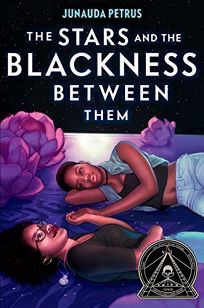
Of Water and The
Spirit
by Malidoma Patrice Some
Focuses:
Spiritual
Ethnicity
Africa
Spirit
by Malidoma Patrice Some
Focuses:
Spiritual
Ethnicity
Africa
Maliodoma Patrice Some was born in a Dagara Village, however he was soon to be abducted to a Jesuit school, where he remained for the next fifteen years, being harshly indoctrinated into european ways of thought and worship. The story tells of his return to his people, his hard initiation back into those people, which lead to his desire to convey their knowledge to the world. Of Water and the Spirit is the result of that desire; it is a sharing of living African traditions, offered in compassion for those struggling with our contemporary crisis of the spirit.
Buy it local Join a book club
Buy it local Join a book club
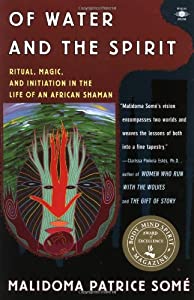
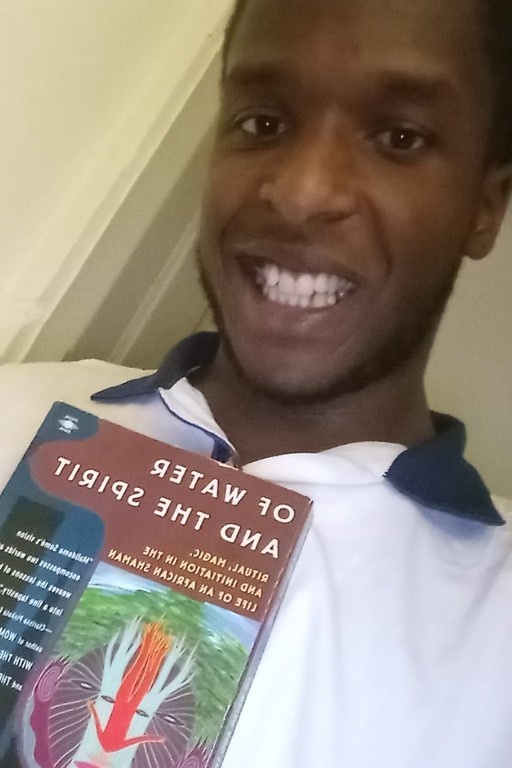
January 2023
Wayward Lives, Beautiful Experiments
by Saidiya Hartman
Focuses:
Feminism
Revolution
Human Rights
by Saidiya Hartman
Focuses:
Feminism
Revolution
Human Rights
Beautifully written and deeply researched, Wayward Lives, Beautiful Experiments examines the revolution of black intimate life that unfolded in Philadelphia and New York at the beginning of the twentieth century. In wrestling with the question of what a free life is, many young black women created forms of intimacy and kinship indifferent to the dictates of respectability and outside the bounds of law. They cleaved to and cast off lovers, exchanged sex to subsist, and revised the meaning of marriage. Longing and desire fueled their experiments in how to live. They refused to labor like slaves or to accept degrading conditions of work. Here, for the first time, these women are credited with shaping a cultural movement that transformed the urban landscape. Through a melding of history and literary imagination, Wayward Lives, Beautiful Experiments recovers these women's radical aspirations and insurgent desires.
Buy it local Join a book club
Buy it local Join a book club

Care Free Black Girls
by Zeba Blay
Focuses:
Equality
Love
LGBTQ
by Zeba Blay
Focuses:
Equality
Love
LGBTQ
In this collection of essays, Carefree Black Girls, Blay expands on this initial idea by delving into the work and lasting achievements of influential Black women in American culture--writers, artists, actresses, dancers, hip-hop stars--whose contributions often come in the face of bigotry, misogyny, and stereotypes. Blay celebrates the strength and fortitude of these Black women, while also examining the many stereotypes and rigid identities that have clung to them. In writing that is both luminous and sharp, expansive and intimate, Blay seeks a path forward to a culture and society in which Black women and their art are appreciated and celebrated.
Buy it local Join a book club
Buy it local Join a book club
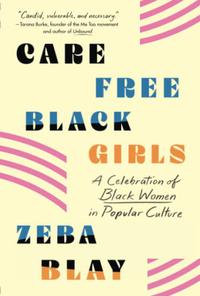
November 2022
Intimate Direct Democracy
by Modibo Kadalie
Focuses:
Politics
Activism
Human Rights
by Modibo Kadalie
Focuses:
Politics
Activism
Human Rights
From the sixteenth to the nineteenth centuries, many African people who were enslaved in North America emancipated themselves and fled into vast swamplands and across colonial borders, beyond the reach of oppressive settler-colonialism and the institution of slavery. On the peripheries of empire, these freedom-seeking "maroons" established their own autonomous, ethnically diverse, and intimately democratic communities of resistance.
Buy it local Join a book club
Buy it local Join a book club
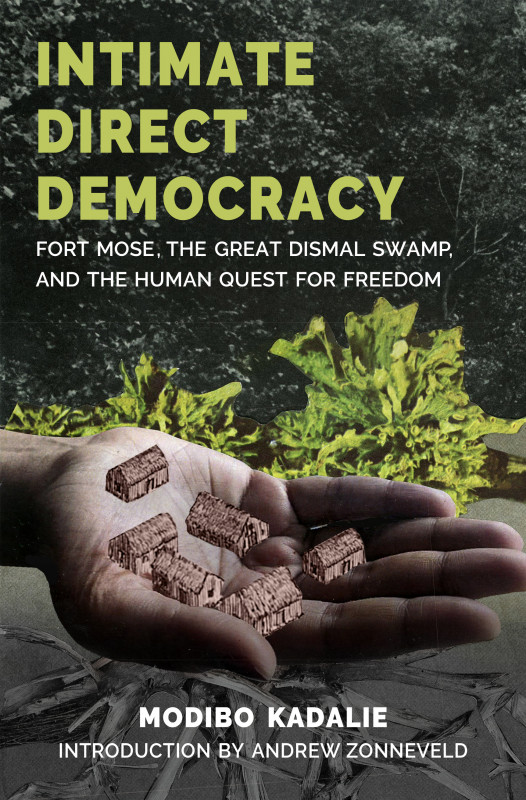
October 2022
Solitary
by Albert Woodfox
Focuses:
Politics
Activism
Human Rights
by Albert Woodfox
Focuses:
Politics
Activism
Human Rights
Remarkably self-aware that anger or bitterness would have destroyed him in solitary confinement, sustained by the shared solidarity of two fellow Panthers, Albert turned his anger into activism and resistance. The Angola 3, as they became known, resolved never to be broken by the grinding inhumanity and corruption that effectively held them for decades as political prisoners. He survived to give us Solitary, a chronicle of rare power and humanity that proves the better spirits of our nature can thrive against any odds.
Buy it local Join a book club
Buy it local Join a book club
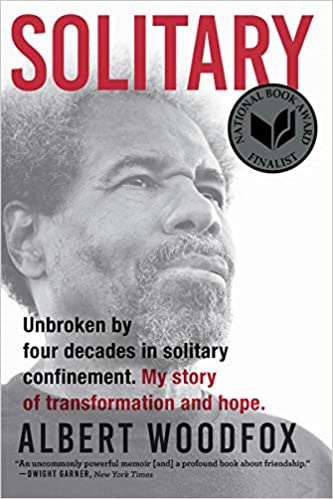
September 2022
God Help The Child
by Toni Morrison
Focuses:
Fiction
Literature
Black America
by Toni Morrison
Focuses:
Fiction
Literature
Black America
At the center: a young woman who calls herself Bride, whose stunning blue-black skin is only one element of her beauty, her boldness and confidence, her success in life, but which caused her light-skinned mother to deny her even the simplest forms of love. There is Booker, the man Bride loves, and loses to anger. Rain, the mysterious white child with whom she crosses paths. And finally, Bride’s mother herself, Sweetness, who takes a lifetime to come to understand that “what you do to children matters. And they might never forget.”
Buy it local Join a book club
Buy it local Join a book club
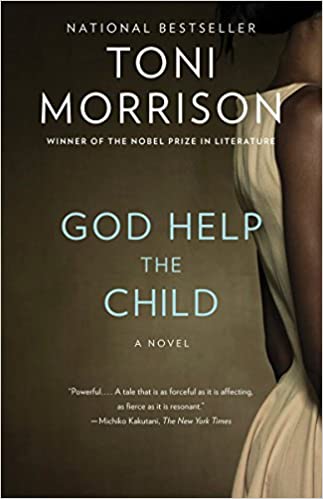
Killing The Black Body
by Dorothy Roberts
Focuses:
Civil Rights
Liberation
Feminism
by Dorothy Roberts
Focuses:
Civil Rights
Liberation
Feminism
In 1997, this groundbreaking book made a powerful entrance into the national conversation on race. In a media landscape dominated by racially biased images of welfare queens and crack babies, Killing the Black Body exposed America’s systemic abuse of Black women’s bodies. From slave masters’ economic stake in bonded women’s fertility to government programs that coerced thousands of poor Black women into being sterilized as late as the 1970s, these abuses pointed to the degradation of Black motherhood—and the exclusion of Black women’s reproductive needs in mainstream feminist and civil rights agendas.
Buy it local Join a book club
Buy it local Join a book club
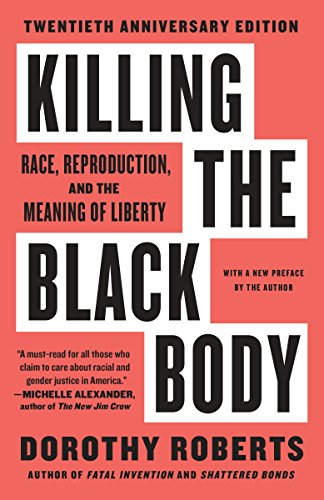
August 2022
Root Magic
by Eden Royce
Focuses:
Fiction
Black America
History
by Eden Royce
Focuses:
Fiction
Black America
History
Jez and Jay have always been fascinated by the African American folk magic that has been the legacy of their family for generations—especially the curious potions and powders Doc and Gran would make for the people on their island. But Jez soon finds out that her family’s true power goes far beyond small charms and elixirs…and not a moment too soon. Because when evil both natural and supernatural comes to show itself in town, it’s going to take every bit of the magic she has inside her to see her through.
Buy it local Join a book club
Buy it local Join a book club
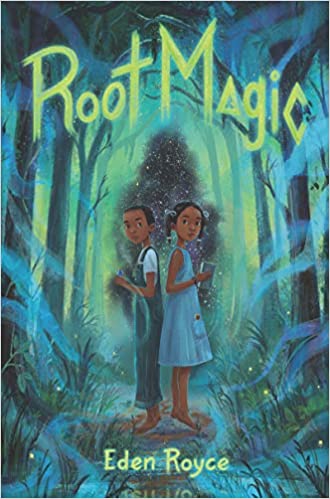
July 2022
Friday Black
by Nana Kwame Adjei-Brenyah
Focuses:
Fiction
Justice
Short Stories
by Nana Kwame Adjei-Brenyah
Focuses:
Fiction
Justice
Short Stories
From the start of this extraordinary debut, Nana Kwame Adjei-Brenyah’s writing will grab you, haunt you, enrage and invigorate you. By placing ordinary characters in extraordinary situations, Adjei-Brenyah reveals the violence, injustice, and painful absurdities that black men and women contend with every day in this country.
Buy it local Join a book club
Buy it local Join a book club
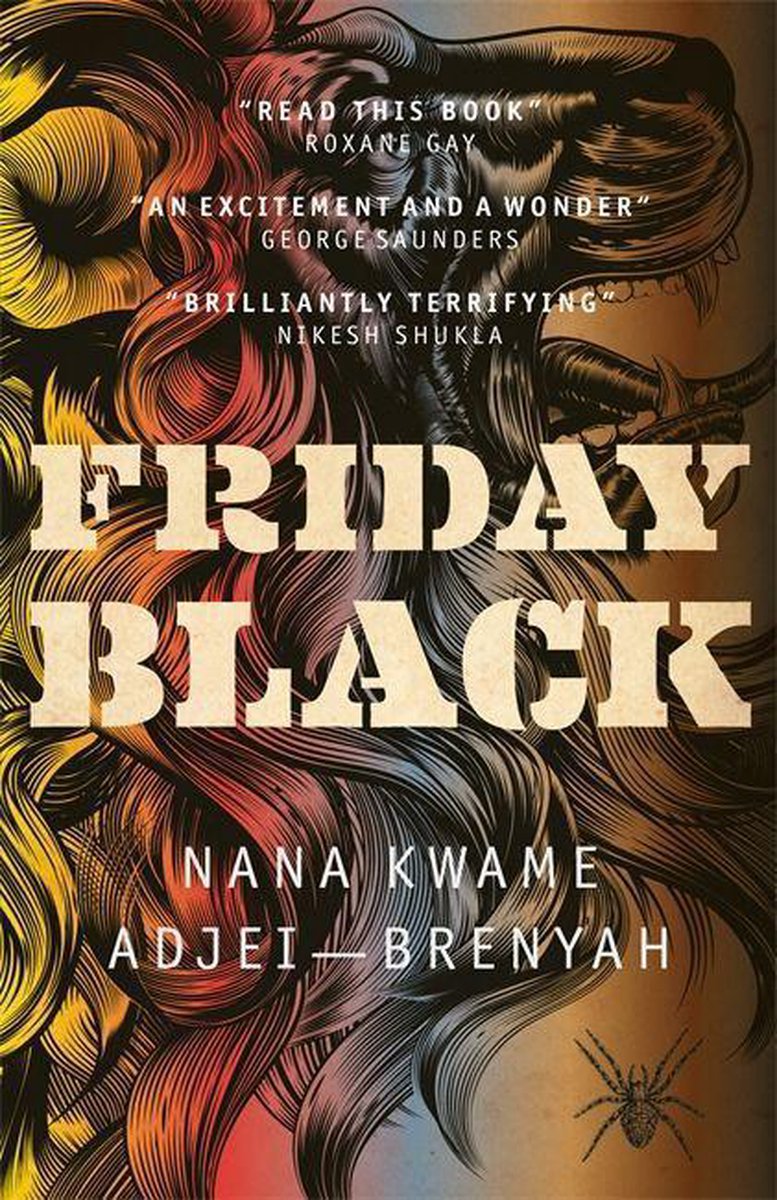
June 2022
The Death of Vivek Oji
by Akwaeke Emezi
Focuses:
Fiction
Culture
Poetry
by Akwaeke Emezi
Focuses:
Fiction
Culture
Poetry
One afternoon, in a town in southeastern Nigeria, a mother opens her front door to discover her son’s body, wrapped in colorful fabric, at her feet. What follows is the tumultuous, heart-wrenching story of one family’s struggle to understand a child whose spirit is both gentle and mysterious. Raised by a distant father and an understanding but overprotective mother, Vivek suffers disorienting blackouts, moments of disconnection between self and surroundings. As adolescence gives way to adulthood, Vivek finds solace in friendships with the warm, boisterous daughters of the Nigerwives, foreign-born women married to Nigerian men. But Vivek’s closest bond is with Osita, the worldly, high-spirited cousin whose teasing confidence masks a guarded private life. As their relationship deepens—and Osita struggles to understand Vivek’s escalating crisis—the mystery gives way to a heart-stopping act of violence in a moment of exhilarating freedom.
Buy it local Join a book club
Buy it local Join a book club
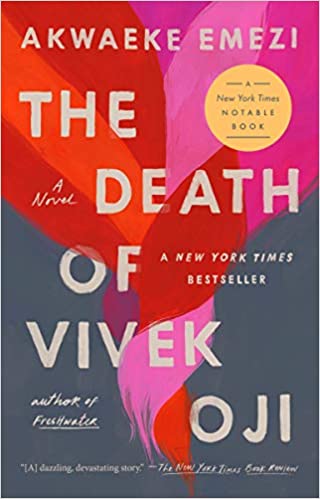
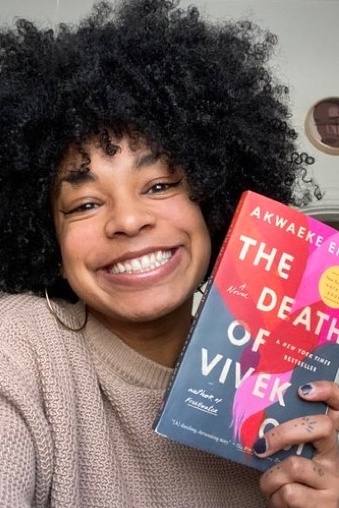
May 2022
Anarchism and the Black Revolution
by Lorenzo Kem'boa Ervin
Focuses:
Black Anarchism
Liberation
Grassroots Organizing
by Lorenzo Kem'boa Ervin
Focuses:
Black Anarchism
Liberation
Grassroots Organizing
A powerful – even startling – book that challenges the shibboleths of 'white' anarchism'. Its analysis of police violence and the threat of fascism are as important now as they were at the end of the 1970s. Perhaps more so' - Peter James Hudson, Black Agenda Report Anarchism and the Black Revolution first connected Black radical thought to anarchist theory in 1979. Now amidst a rising tide of Black political organizing, this foundational classic written by a key figure of the Civil Rights movement is republished with a wealth of original material for a new generation. Anarchist theory has long suffered from a whiteness problem. This book places its critique of both capitalism and racism firmly at the centre of the text. Making a powerful case for the building of a Black revolutionary movement that rejects sexism, homophobia, militarism and racism, Lorenzo Kom’boa Ervin counters the lies and distortions about anarchism spread by its left- and right-wing opponents alike. New material includes an interview with writer and activist William C. Anderson, as well as new essays, and a contextualizing biography of the author’s inspiring life.
Buy it local Join a book club
Buy it local Join a book club

Rifqa
by Mohammed El-Kurd
Focuses:
Poetry
Palestine
Settler-Colonialism
by Mohammed El-Kurd
Focuses:
Poetry
Palestine
Settler-Colonialism
Each day after school, Mohammed El-Kurd’s grandmother welcomed him at the door of his home with a bouquet of jasmine. Her name was Rifqa—she was older than Israel itself and an icon of Palestinian resilience. With razor-sharp wit and glistening moral clarity, El-Kurd lays bare the brutality of Israeli settler colonialism. His poems trace Rifqa’s exile from Haifa to his family’s current dispossession in Sheikh Jarrah, Jerusalem, exposing the cyclical and relentless horror of the Nakba. El-Kurd’s debut collection definitively shows that the Palestinian struggle is a revolution, until victory.
Buy it local Join a book club
Buy it local Join a book club
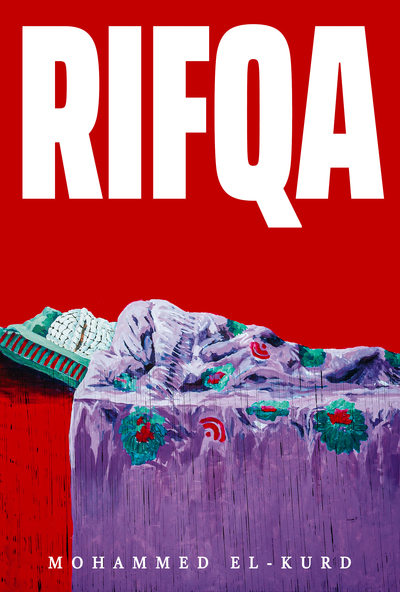
April 2022
Home Is Not A Country
by Safia Elhillo
Focuses:
Cultural Identity
Poetry
First Generation
by Safia Elhillo
Focuses:
Cultural Identity
Poetry
First Generation
Nima wishes she were someone else. She doesn’t feel understood by her mother, who grew up in a different land. She doesn’t feel accepted in her suburban town; yet somehow, she isn't different enough to belong elsewhere. Her best friend, Haitham, is the only person with whom she can truly be herself. Until she can't, and suddenly her only refuge is gone.
Buy it local Join a book club
Buy it local Join a book club
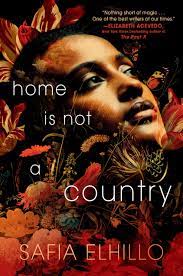
The Sobbing School
by Joshua Bennett
Focuses:
Poetry
Black History
Contemporary
by Joshua Bennett
Focuses:
Poetry
Black History
Contemporary
The Sobbing School, Joshua Bennett’s mesmerizing debut collection of poetry, presents songs for the living and the dead that destabilize and de-familiarize representations of black history and contemporary black experience. What animates these poems is a desire to assert life, and interiority, where there is said to be none. Figures as widely divergent as Bobby Brown, Martin Heidegger, and the 19th-century performance artist Henry Box Brown, as well as Bennett’s own family and childhood best friends, appear and are placed in conversation in order to show that there is always a world beyond what we are socialized to see value in, always alternative ways of thinking about relation that explode easy binaries.
Buy it local Join a book club
Buy it local Join a book club
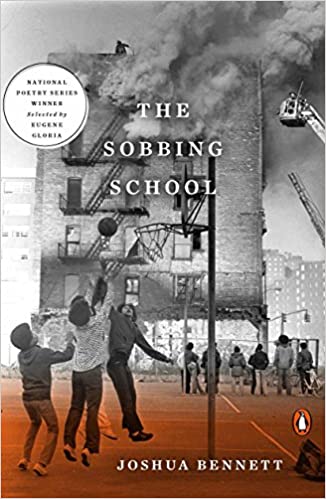
March 2022
Children of Blood and Bone
by Tomi Adeyemi
Focuses:
Fantasy
Magic
Adventure
by Tomi Adeyemi
Focuses:
Fantasy
Magic
Adventure
Zélie Adebola remembers when the soil of Orïsha hummed with magic. Burners ignited flames, Tiders beckoned waves, and Zélie’s Reaper mother summoned forth souls.
But everything changed the night magic disappeared. Under the orders of a ruthless king, maji were killed, leaving Zélie without a mother and her people without hope.
Now Zélie has one chance to bring back magic and strike against the monarchy. With the help of a rogue princess, Zélie must outwit and outrun the crown prince, who is hell-bent on eradicating magic for good.
Danger lurks in Orïsha, where snow leoponaires prowl and vengeful spirits wait in the waters. Yet the greatest danger may be Zélie herself as she struggles to control her powers and her growing feelings for an enemy.
Buy it local Join a book club
But everything changed the night magic disappeared. Under the orders of a ruthless king, maji were killed, leaving Zélie without a mother and her people without hope.
Now Zélie has one chance to bring back magic and strike against the monarchy. With the help of a rogue princess, Zélie must outwit and outrun the crown prince, who is hell-bent on eradicating magic for good.
Danger lurks in Orïsha, where snow leoponaires prowl and vengeful spirits wait in the waters. Yet the greatest danger may be Zélie herself as she struggles to control her powers and her growing feelings for an enemy.
Buy it local Join a book club
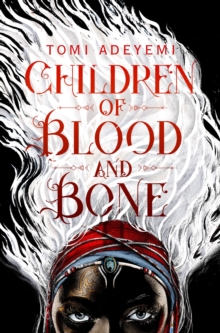
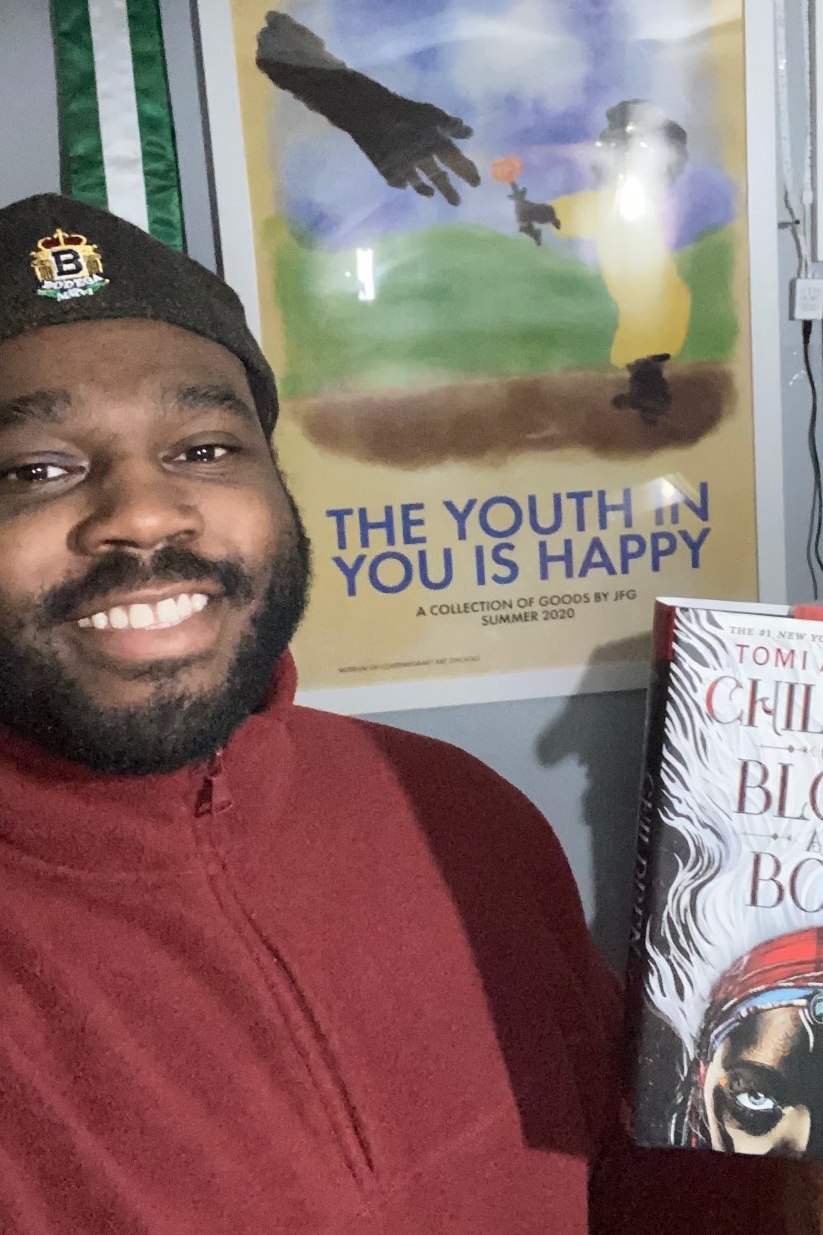
February 2022
Salvation
by Bell Hooks
Focuses:
History
Lifestyle
Black America
by Bell Hooks
Focuses:
History
Lifestyle
Black America
Written from both historical and cultural perspectives, Salvation takes an incisive look at the transformative power of love in the lives of African Americans. Whether talking about the legacy of slavery, relationships and marriage in Black life, the prose and poetry of Martin Luther King, Jr., James Baldwin, and Maya Angelou, the liberation movements of the 1950s, 60s, and 70s, or hip hop and gangsta rap culture, hooks lets us know what love’s got to do with it.
Buy it local Join a book club
Buy it local Join a book club
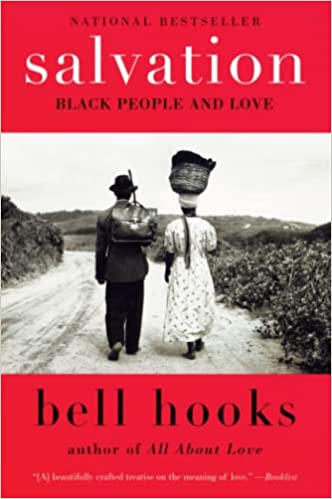
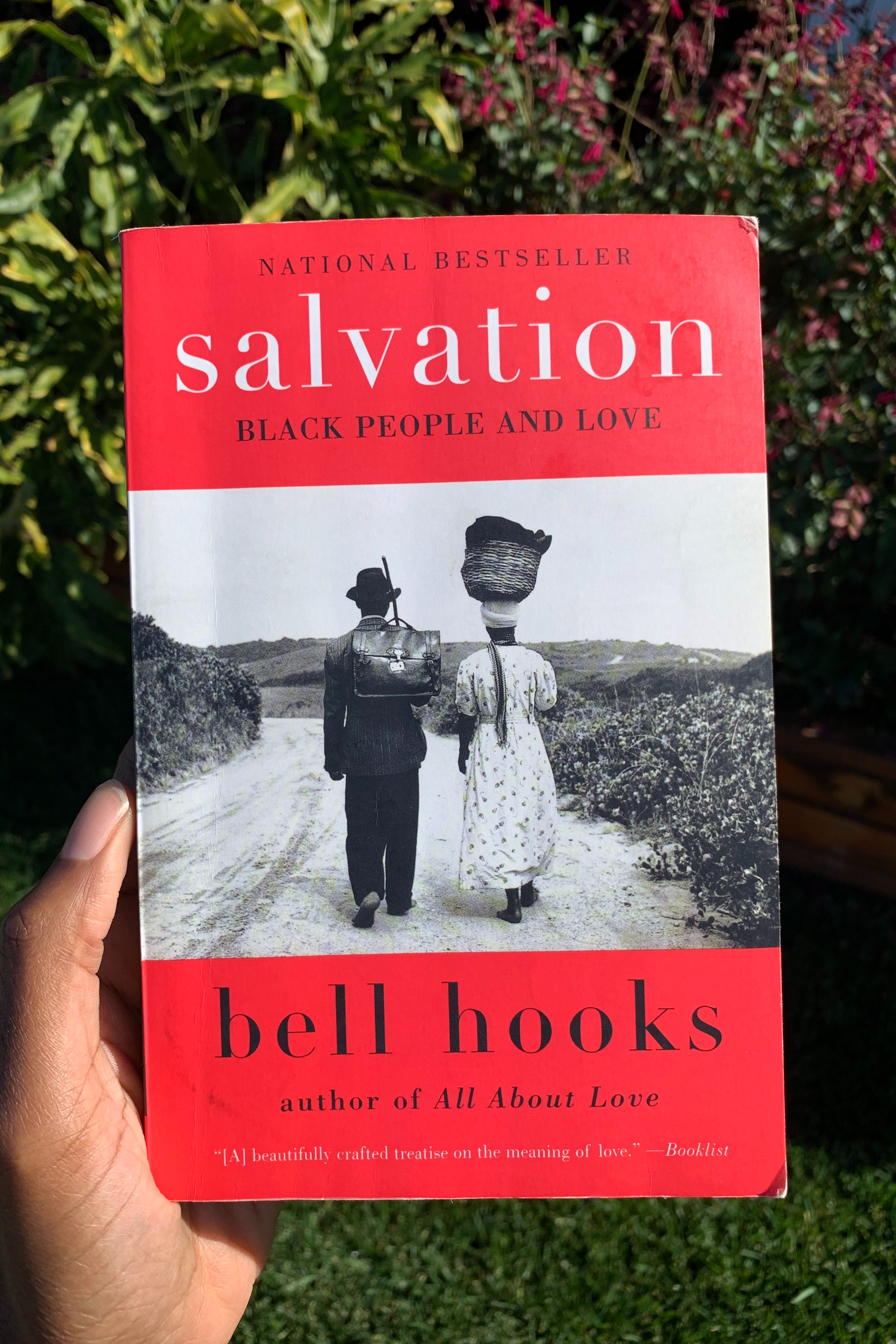
The Nation On No Map
by William C. Anderson
Focuses:
Black Liberation
Anarchism
Liberation
by William C. Anderson
Focuses:
Black Liberation
Anarchism
Liberation
The Nation on No Map examines state power, abolition, and ideological tensions within the struggle for Black liberation while centering the politics of Black autonomy and self-determination. Amid renewed interest in Black anarchism among the left, Anderson offers a principled rejection of reformism, nation building, and citizenship in the ongoing fight against capitalism and white supremacism. As a viable alternative amidst worsening social conditions, he calls for the urgent prioritization of community-based growth, arguing that in order to overcome oppression, people must build capacity beyond the state. It interrogates how history and myth and leadership are used to rehabilitate governance instead of achieving a revolutionary abolition. By complicating our understanding of the predicaments we face, The Nation on No Map hopes to encourage readers to utilize a Black anarchic lens in favor of total transformation, no matter what it’s called. Anderson’s text examines reformism, orthodoxy, and the idea of the nation-state itself as problems that must be transcended and key sites for a liberatory re-envisioning of struggle.
Buy it local Join a book club
Buy it local Join a book club
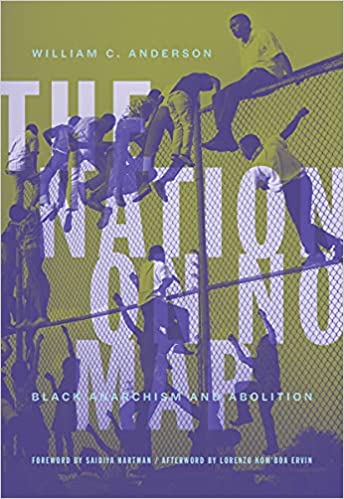
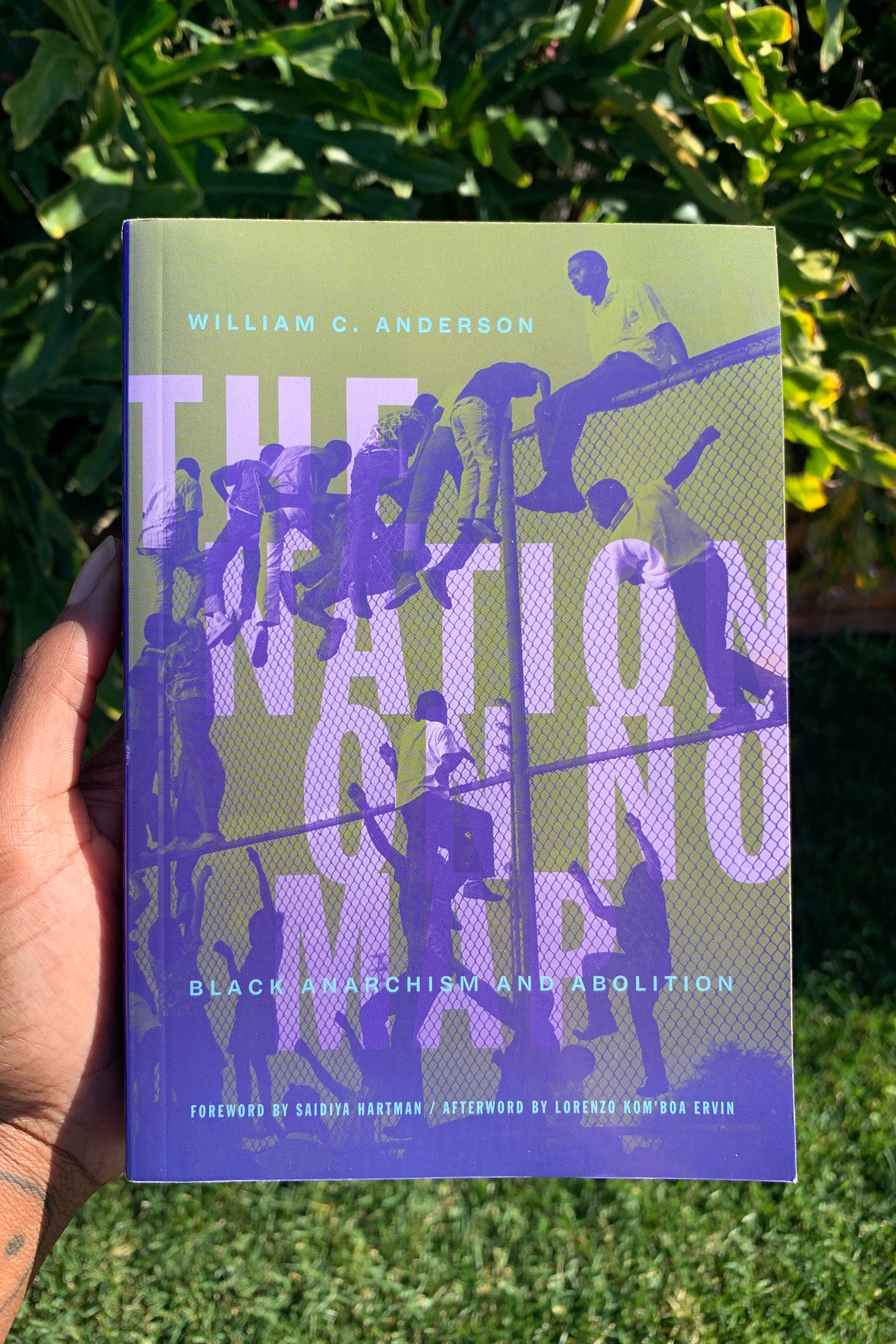
January 2022
Becoming Abolitionists
by Derecka Purnell
Focuses:
Civil Rights
Social Movements
Activism
by Derecka Purnell
Focuses:
Civil Rights
Social Movements
Activism
For more than a century, activists in the United States have tried to reform the police. From community policing initiatives to increasing diversity, none of it has stopped the police from killing about three people a day. Millions of people continue to protest police violence because these "solutions" do not match the problem: the police cannot be reformed.
In Becoming Abolitionists, Purnell draws from her experiences as a lawyer, writer, and organizer initially skeptical about police abolition. She saw too much sexual violence and buried too many friends to consider getting rid of police in her hometown of St. Louis, let alone the nation. But the police were a placebo. Calling them felt like something, and something feels like everything when the other option seems like nothing.
Purnell details how multi-racial social movements rooted in rebellion, risk-taking, and revolutionary love pushed her and a generation of activists toward abolition. The book travels across geography and time, and offers lessons that activists have learned from Ferguson to South Africa, from Reconstruction to contemporary protests against police shootings.
Here, Purnell argues that police can not be reformed and invites readers to envision new systems that work to address the root causes of violence. Becoming Abolitionists shows that abolition is not solely about getting rid of police, but a commitment to create and support different answers to the problem of harm in society, and, most excitingly, an opportunity to reduce and eliminate harm in the first place.
Buy it local Join a book club
In Becoming Abolitionists, Purnell draws from her experiences as a lawyer, writer, and organizer initially skeptical about police abolition. She saw too much sexual violence and buried too many friends to consider getting rid of police in her hometown of St. Louis, let alone the nation. But the police were a placebo. Calling them felt like something, and something feels like everything when the other option seems like nothing.
Purnell details how multi-racial social movements rooted in rebellion, risk-taking, and revolutionary love pushed her and a generation of activists toward abolition. The book travels across geography and time, and offers lessons that activists have learned from Ferguson to South Africa, from Reconstruction to contemporary protests against police shootings.
Here, Purnell argues that police can not be reformed and invites readers to envision new systems that work to address the root causes of violence. Becoming Abolitionists shows that abolition is not solely about getting rid of police, but a commitment to create and support different answers to the problem of harm in society, and, most excitingly, an opportunity to reduce and eliminate harm in the first place.
Buy it local Join a book club
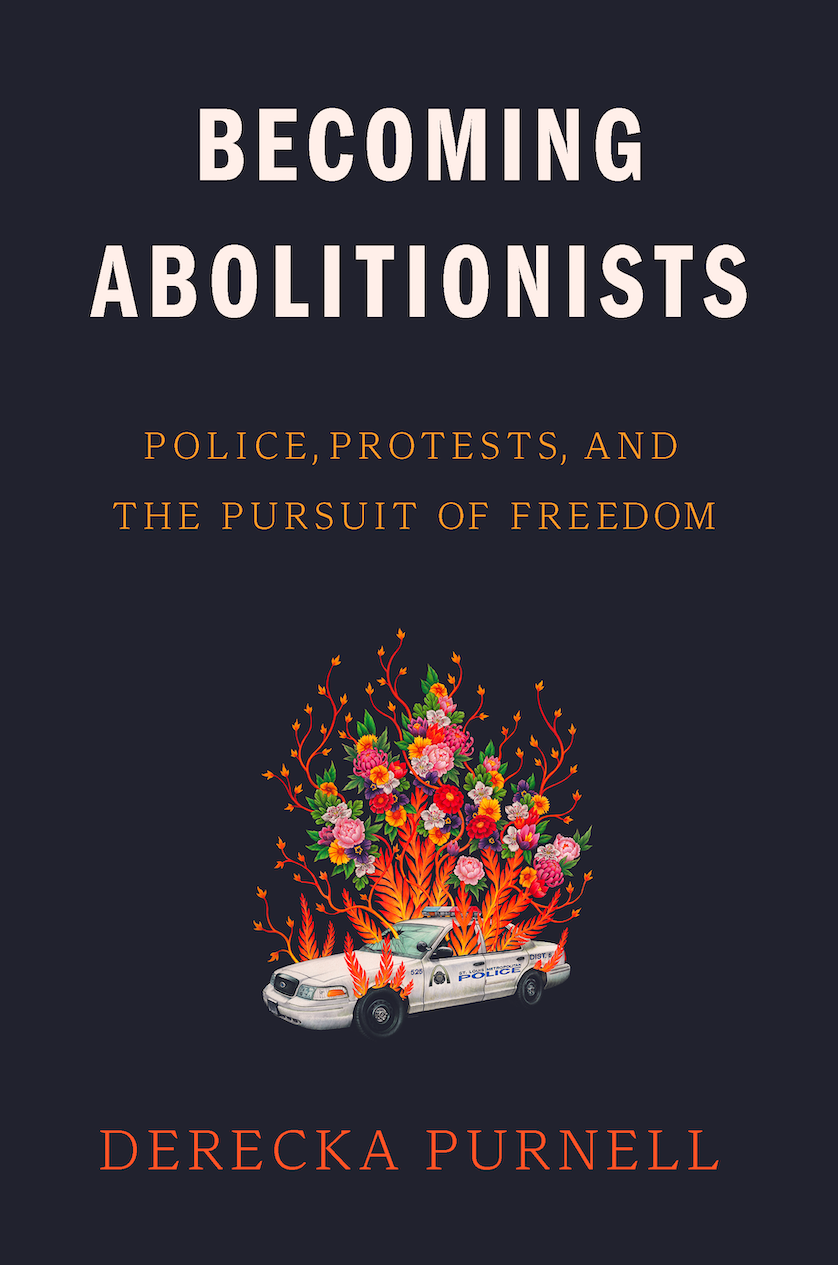
Live From Death Row
by Mumia Abu-Jamal
Focuses:
Judicial System
Civil Rights
Black America
by Mumia Abu-Jamal
Focuses:
Judicial System
Civil Rights
Black America
After twenty years on death row, Mumia Abu-Jamal was released from his death sentence . . . but not the conviction. This once prominent radio reporter was convicted for the murder of Philadelphia police officer Daniel Faulkner in 1982, after a trial many have criticized as profoundly biased. Live from Death Row is a collection of his prison writings—an impassioned yet unflinching account of the brutalities and humiliations of prison life, and a scathing indictment of racism and political bias in the American judicial system.
Buy it local Join a book club
Buy it local Join a book club
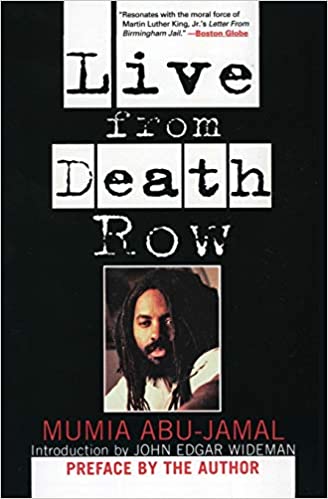
December 2021
The Spook Who Sat By The Door
by Sam Greenlee
Focuses:
History
Civil RIghts
Black America
by Sam Greenlee
Focuses:
History
Civil RIghts
Black America
This book is both a satire of the civil rights problems in the United States in the late 60s and a serious attempt to focus on the issue of black militancy.
Buy it local Join a book club
Buy it local Join a book club
November 2021
Black Slaves, Indian Masters
by Barbara Krauthamer
Focuses:
History
Culture
Liberation
by Barbara Krauthamer
Focuses:
History
Culture
Liberation
From the late eighteenth century through the end of the Civil War, Choctaw and Chickasaw Indians bought, sold, and owned Africans and African Americans as slaves, a fact that persisted after the tribes' removal from the Deep South to Indian Territory. The tribes formulated racial and gender ideologies that justified this practice and marginalized free black people in the Indian nations well after the Civil War and slavery had ended.
Through the end of the nineteenth century, ongoing conflicts among Choctaw, Chickasaw, and U.S. lawmakers left untold numbers of former slaves and their descendants in the two Indian nations without citizenship in either the Indian nations or the United States. In this groundbreaking study, Barbara Krauthamer rewrites the history of southern slavery, emancipation, race, and citizenship to reveal the centrality of Native American slaveholders and the black people they enslaved.
Krauthamer's examination of slavery and emancipation highlights the ways Indian women's gender roles changed with the arrival of slavery and changed again after emancipation and reveals complex dynamics of race that shaped the lives of black people and Indians both before and after removal.
Buy it local Join a book club
Through the end of the nineteenth century, ongoing conflicts among Choctaw, Chickasaw, and U.S. lawmakers left untold numbers of former slaves and their descendants in the two Indian nations without citizenship in either the Indian nations or the United States. In this groundbreaking study, Barbara Krauthamer rewrites the history of southern slavery, emancipation, race, and citizenship to reveal the centrality of Native American slaveholders and the black people they enslaved.
Krauthamer's examination of slavery and emancipation highlights the ways Indian women's gender roles changed with the arrival of slavery and changed again after emancipation and reveals complex dynamics of race that shaped the lives of black people and Indians both before and after removal.
Buy it local Join a book club
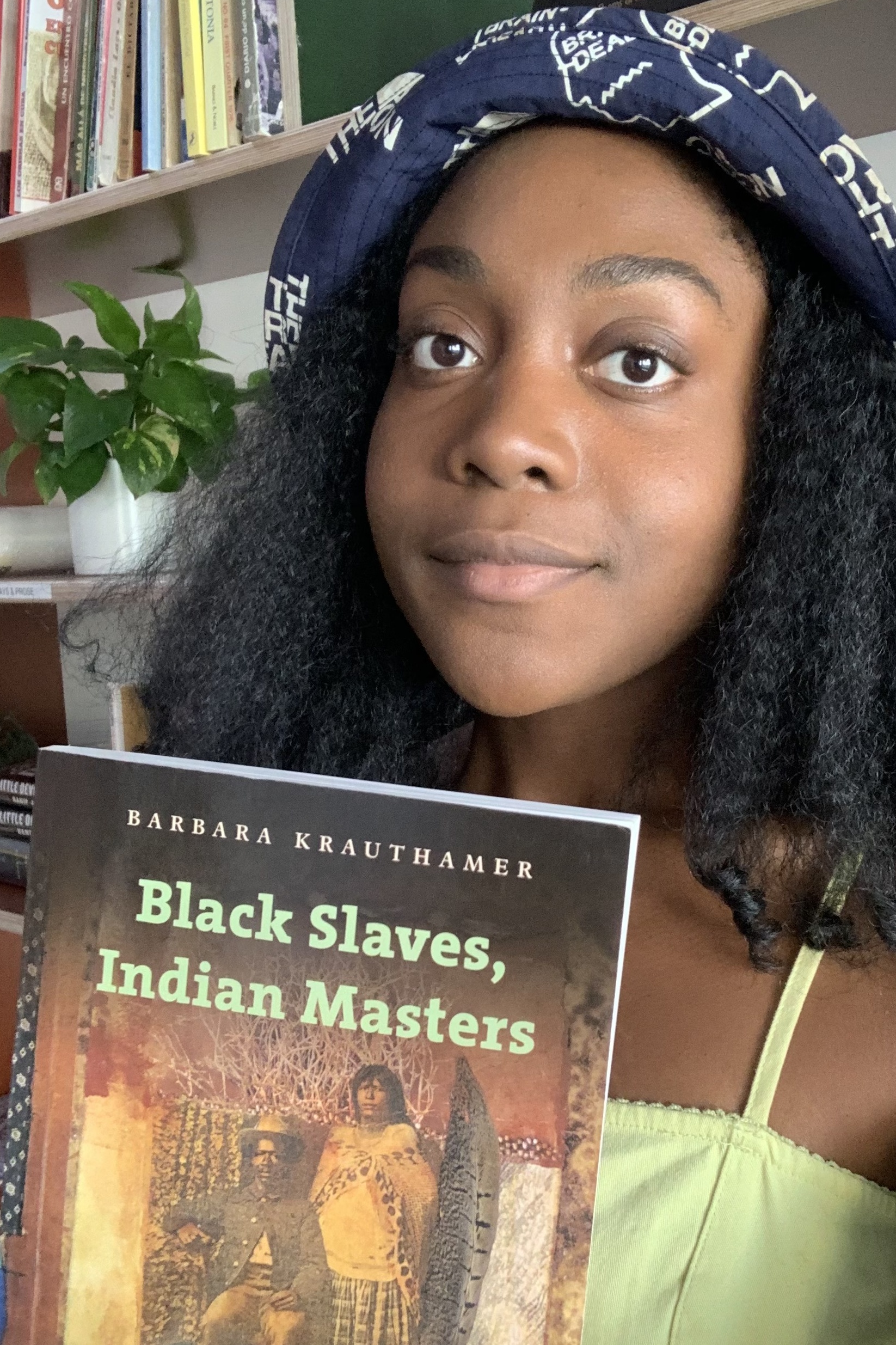
As Long As Grass Grows
by Dina Gilio-Whitaker
Focuses:
Justice
History
Colonization
by Dina Gilio-Whitaker
Focuses:
Justice
History
Colonization
The story of Native peoples' resistance to environmental injustice and land incursions, and a call for environmentalists to learn from the Indigenous community's rich history of activism
Through the unique lens of "Indigenized environmental justice," Indigenous researcher and activist Dina Gilio-Whitaker explores the fraught history of treaty violations, struggles for food and water security, and protection of sacred sites, while highlighting the important leadership of Indigenous women in this centuries-long struggle. As Long As Grass Grows gives readers an accessible history of Indigenous resistance to government and corporate incursions on their lands and offers new approaches to environmental justice activism and policy.
Throughout 2016, the Standing Rock protest put a national spotlight on Indigenous activists, but it also underscored how little Americans know about the longtime historical tensions between Native peoples and the mainstream environmental movement. Ultimately, she argues, modern environmentalists must look to the history of Indigenous resistance for wisdom and inspiration in our common fight for a just and sustainable future
Buy it local Join a book club
Through the unique lens of "Indigenized environmental justice," Indigenous researcher and activist Dina Gilio-Whitaker explores the fraught history of treaty violations, struggles for food and water security, and protection of sacred sites, while highlighting the important leadership of Indigenous women in this centuries-long struggle. As Long As Grass Grows gives readers an accessible history of Indigenous resistance to government and corporate incursions on their lands and offers new approaches to environmental justice activism and policy.
Throughout 2016, the Standing Rock protest put a national spotlight on Indigenous activists, but it also underscored how little Americans know about the longtime historical tensions between Native peoples and the mainstream environmental movement. Ultimately, she argues, modern environmentalists must look to the history of Indigenous resistance for wisdom and inspiration in our common fight for a just and sustainable future
Buy it local Join a book club
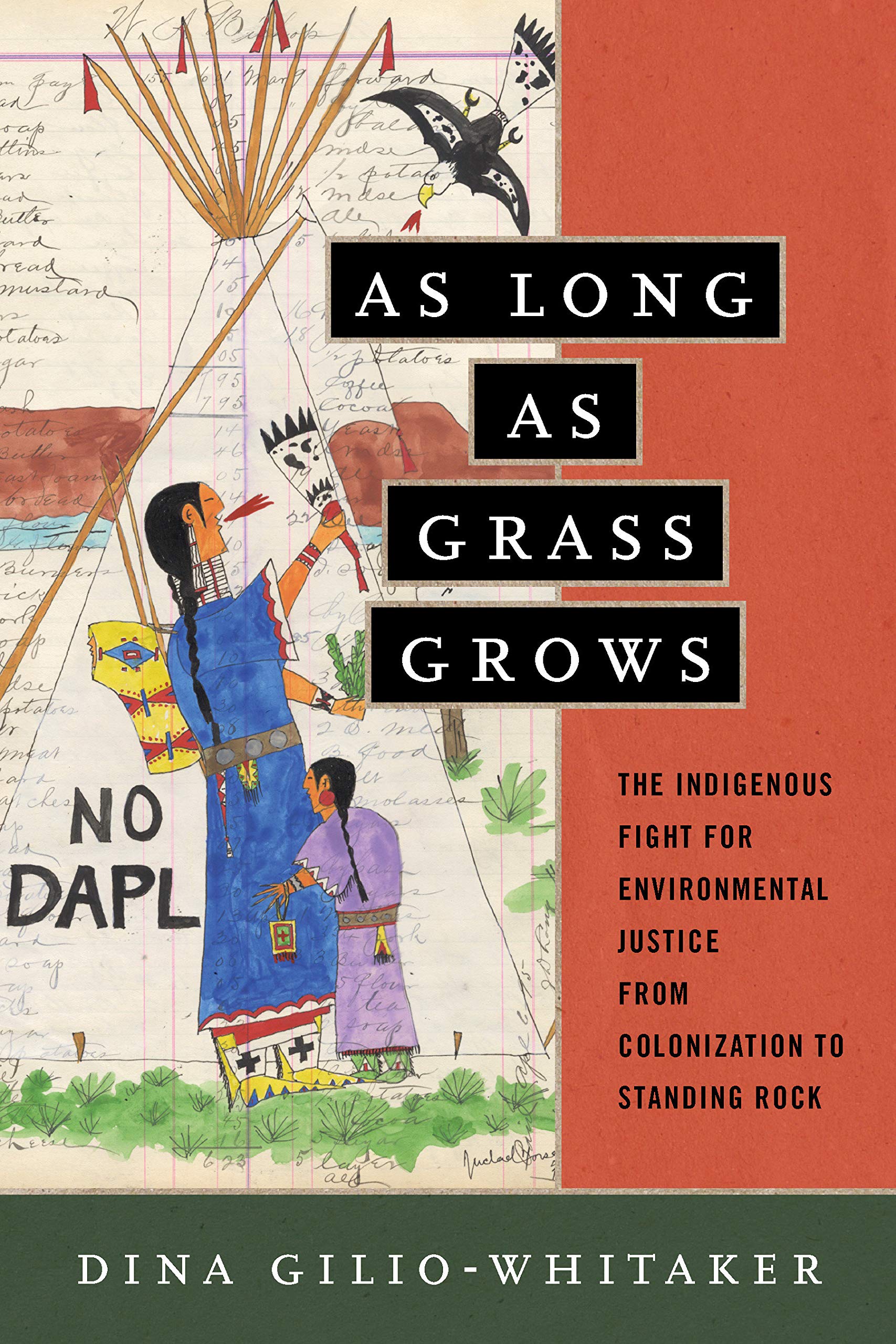
October 2021
Blood Child
by Octavia E. Butler
Focuses:
Short Stories
Fiction
Fantasy
by Octavia E. Butler
Focuses:
Short Stories
Fiction
Fantasy
Years ago a group known as the Terrans left Earth in search of a life free of persecution. Now they live alongside the Tlic, an alien race who face extinction; their only chance of survival is to plant their larvae inside the bodies of the humans.
When Gan, a young, boy, is chosen as a carrier of Tlic eggs, he faces an impossible dilemma: can he really help the species he has grown up with, even if it means sacrificing his own life?
Blood Child is Octavia E. Butler’s shattering meditation on symbiosis, love, power, and tough choices. It won the Hugo, Locus, Nebula, and Science Fiction Chronicle awards and is widely regarded as one of her greatest works.
Buy it local Join a book club
When Gan, a young, boy, is chosen as a carrier of Tlic eggs, he faces an impossible dilemma: can he really help the species he has grown up with, even if it means sacrificing his own life?
Blood Child is Octavia E. Butler’s shattering meditation on symbiosis, love, power, and tough choices. It won the Hugo, Locus, Nebula, and Science Fiction Chronicle awards and is widely regarded as one of her greatest works.
Buy it local Join a book club
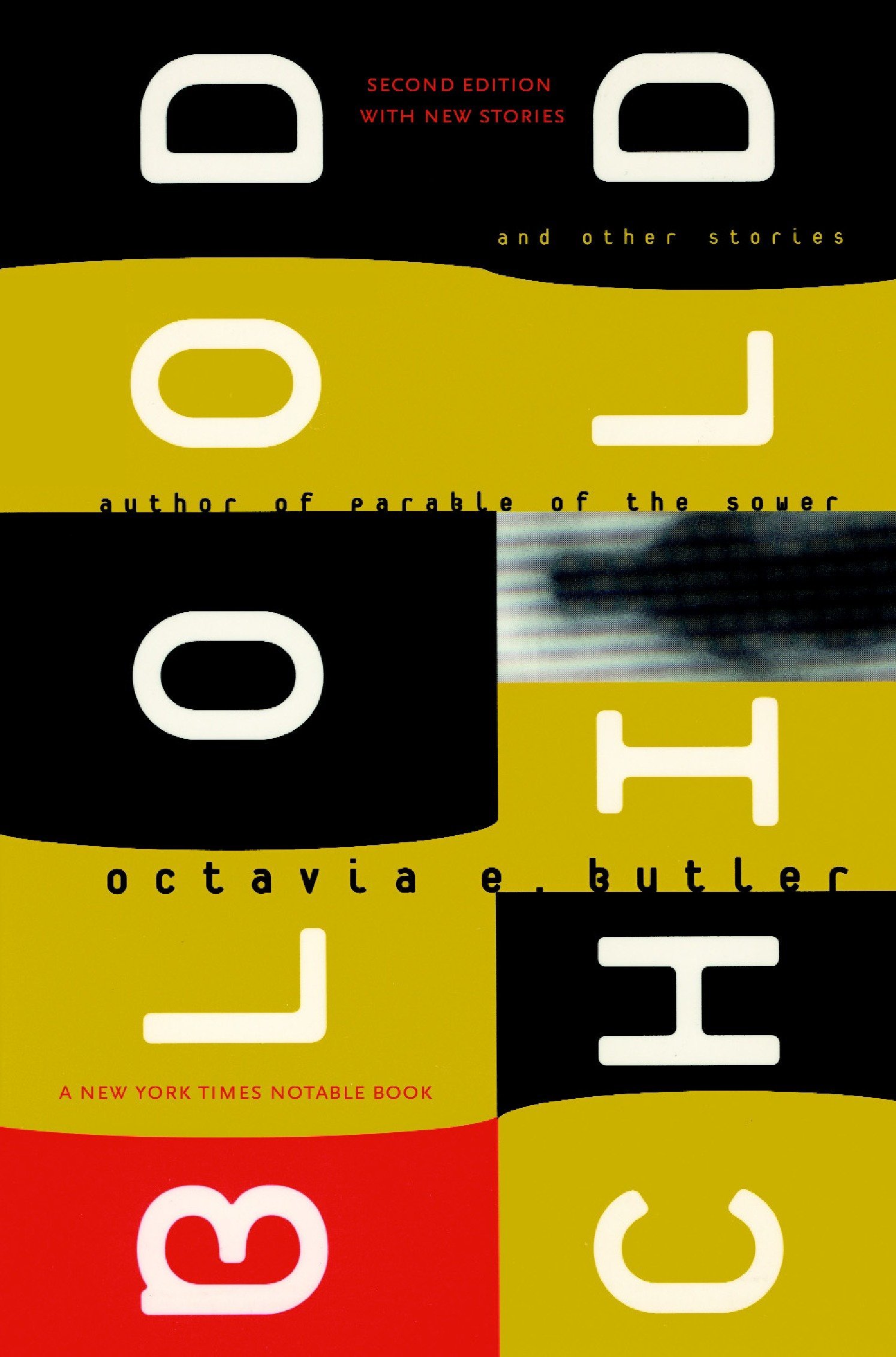
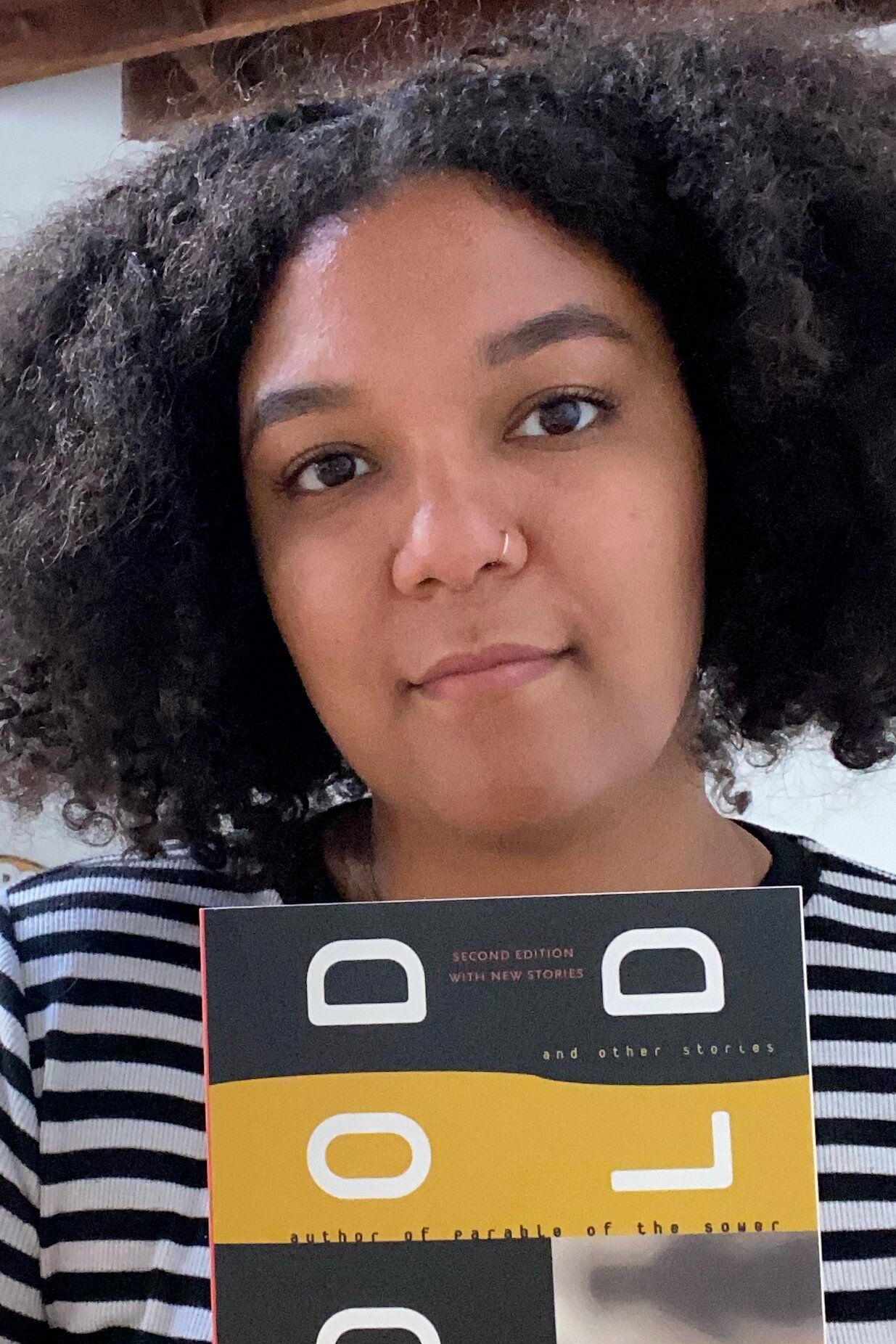
My Sister, The Serial Killer
by Oyinkan Braithwaite
Focuses:
Fiction
Thriller
Mystery
by Oyinkan Braithwaite
Focuses:
Fiction
Thriller
Mystery
When Korede's dinner is interrupted one night by a distress call from her sister, Ayoola, she knows what's expected of her: bleach, rubber gloves, nerves of steel and a strong stomach. This'll be the third boyfriend Ayoola's dispatched in, quote, self-defence and the third mess that her lethal little sibling has left Korede to clear away. She should probably go to the police for the good of the menfolk of Nigeria, but she loves her sister and, as they say, family always comes first.
Until, that is, Ayoola starts dating the doctor where Korede works as a nurse. Korede's long been in love with him, and isn't prepared to see him wind up with a knife in his back: but to save one would mean sacrificing the other...
Buy it local Join a book club
Until, that is, Ayoola starts dating the doctor where Korede works as a nurse. Korede's long been in love with him, and isn't prepared to see him wind up with a knife in his back: but to save one would mean sacrificing the other...
Buy it local Join a book club
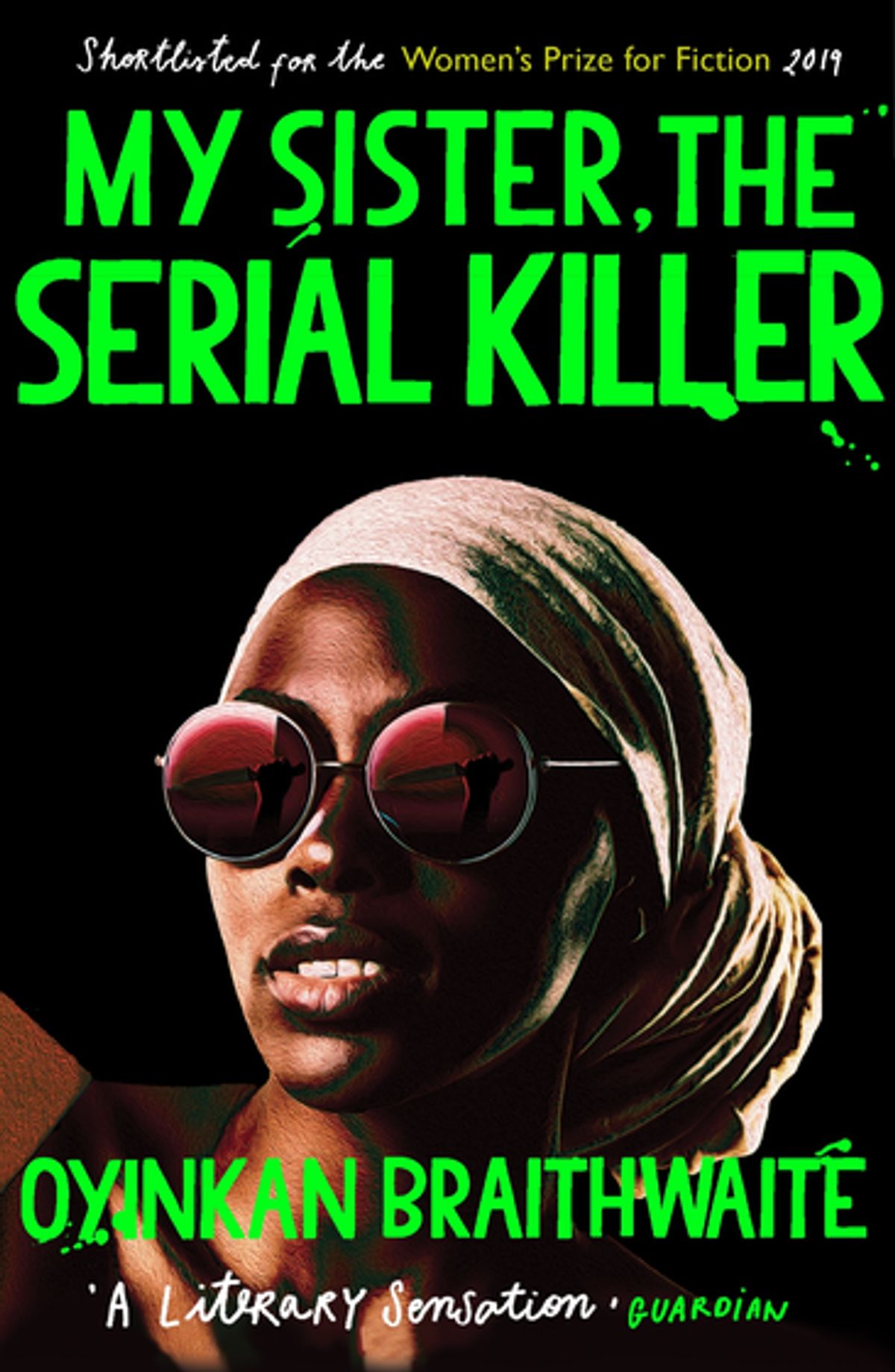
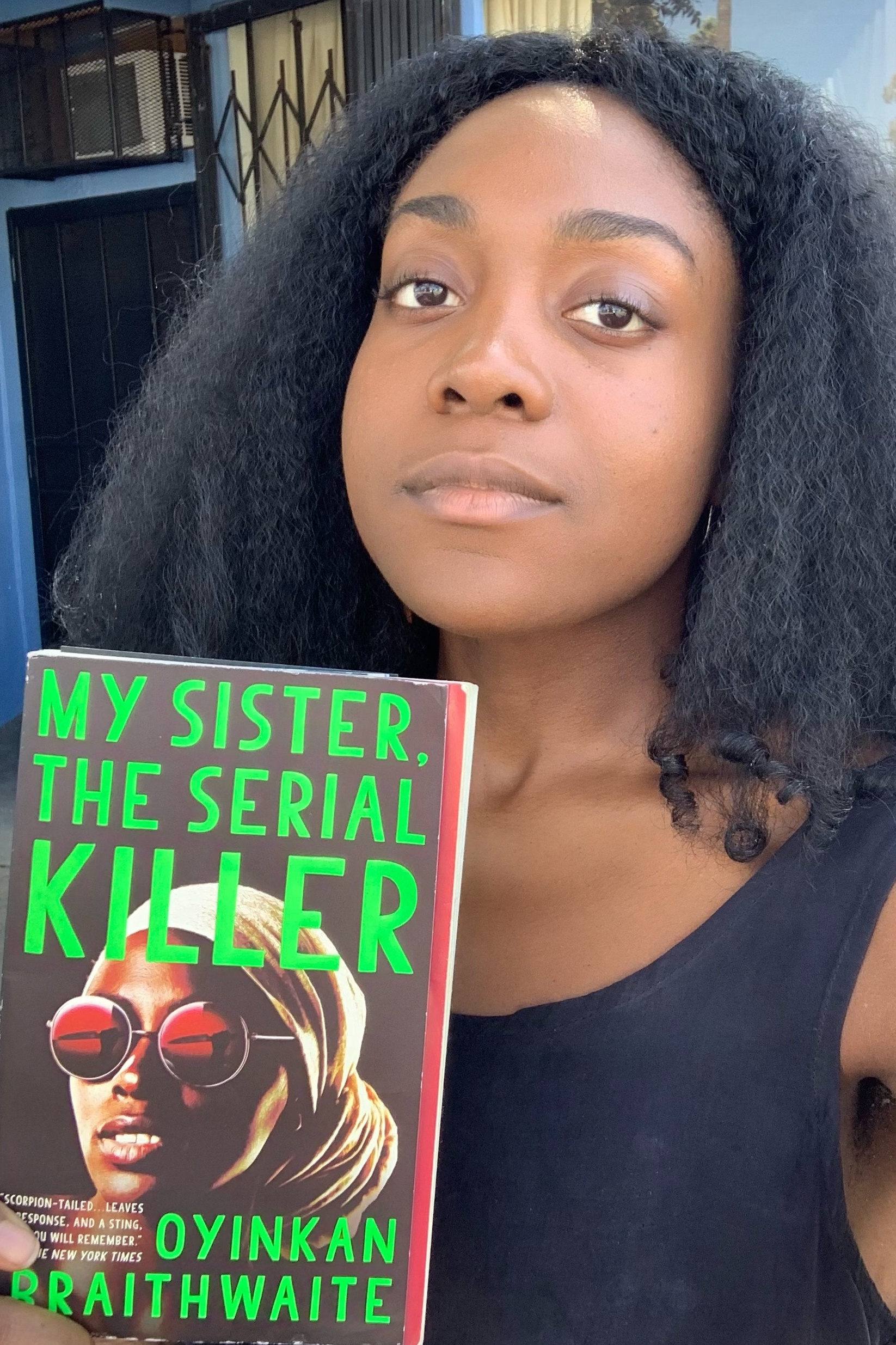
September 2021
Belly of the Beast
by Da'Shaun L. Harrison
Focuses:
Culture
History
Black America
by Da'Shaun L. Harrison
Focuses:
Culture
History
Black America
To live in a body both fat and Black is to exist at the margins of a society that creates the conditions for anti-fatness as anti-Blackness. Hyper-policed by state and society, passed over for housing and jobs, and derided and misdiagnosed by medical professionals, fat Black people in the United States are subject to sociopolitically sanctioned discrimination, abuse, condescension, and trauma.
Da’Shaun Harrison–a fat, Black, disabled, and nonbinary trans writer–offers an incisive, fresh, and precise exploration of anti-fatness as anti-Blackness, foregrounding the state-sanctioned murders of fat Black men and trans and nonbinary masculine people in historical analysis. Policing, disenfranchisement, and invisibilizing of fat Black men and trans and nonbinary masculine people are pervasive, insidious ways that anti-fat anti-Blackness shows up in everyday life. Fat people can be legally fired in 49 states for being fat; they’re more likely to be houseless. Fat people die at higher rates from misdiagnosis or nontreatment; fat women are more likely to be sexually assaulted. And at the intersections of fatness, Blackness, disability, and gender, these abuses are exacerbated.
Taking on desirability politics, the limitations of gender, the connection between anti-fatness and carcerality, and the incongruity of “health” and “healthiness” for the Black fat, Harrison viscerally and vividly illustrates the myriad harms of anti-fat anti-Blackness. They offer strategies for dismantling denial, unlearning the cultural programming that tells us “fat is bad,” and destroying the world as we know it, so the Black fat can inhabit a place not built on their subjugation.
Buy it local Join a book club
Da’Shaun Harrison–a fat, Black, disabled, and nonbinary trans writer–offers an incisive, fresh, and precise exploration of anti-fatness as anti-Blackness, foregrounding the state-sanctioned murders of fat Black men and trans and nonbinary masculine people in historical analysis. Policing, disenfranchisement, and invisibilizing of fat Black men and trans and nonbinary masculine people are pervasive, insidious ways that anti-fat anti-Blackness shows up in everyday life. Fat people can be legally fired in 49 states for being fat; they’re more likely to be houseless. Fat people die at higher rates from misdiagnosis or nontreatment; fat women are more likely to be sexually assaulted. And at the intersections of fatness, Blackness, disability, and gender, these abuses are exacerbated.
Taking on desirability politics, the limitations of gender, the connection between anti-fatness and carcerality, and the incongruity of “health” and “healthiness” for the Black fat, Harrison viscerally and vividly illustrates the myriad harms of anti-fat anti-Blackness. They offer strategies for dismantling denial, unlearning the cultural programming that tells us “fat is bad,” and destroying the world as we know it, so the Black fat can inhabit a place not built on their subjugation.
Buy it local Join a book club
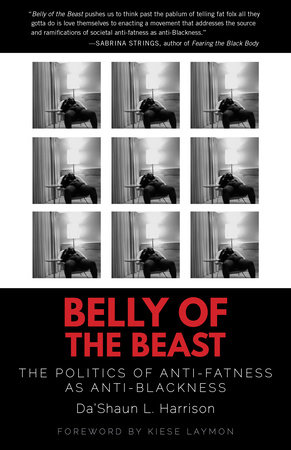
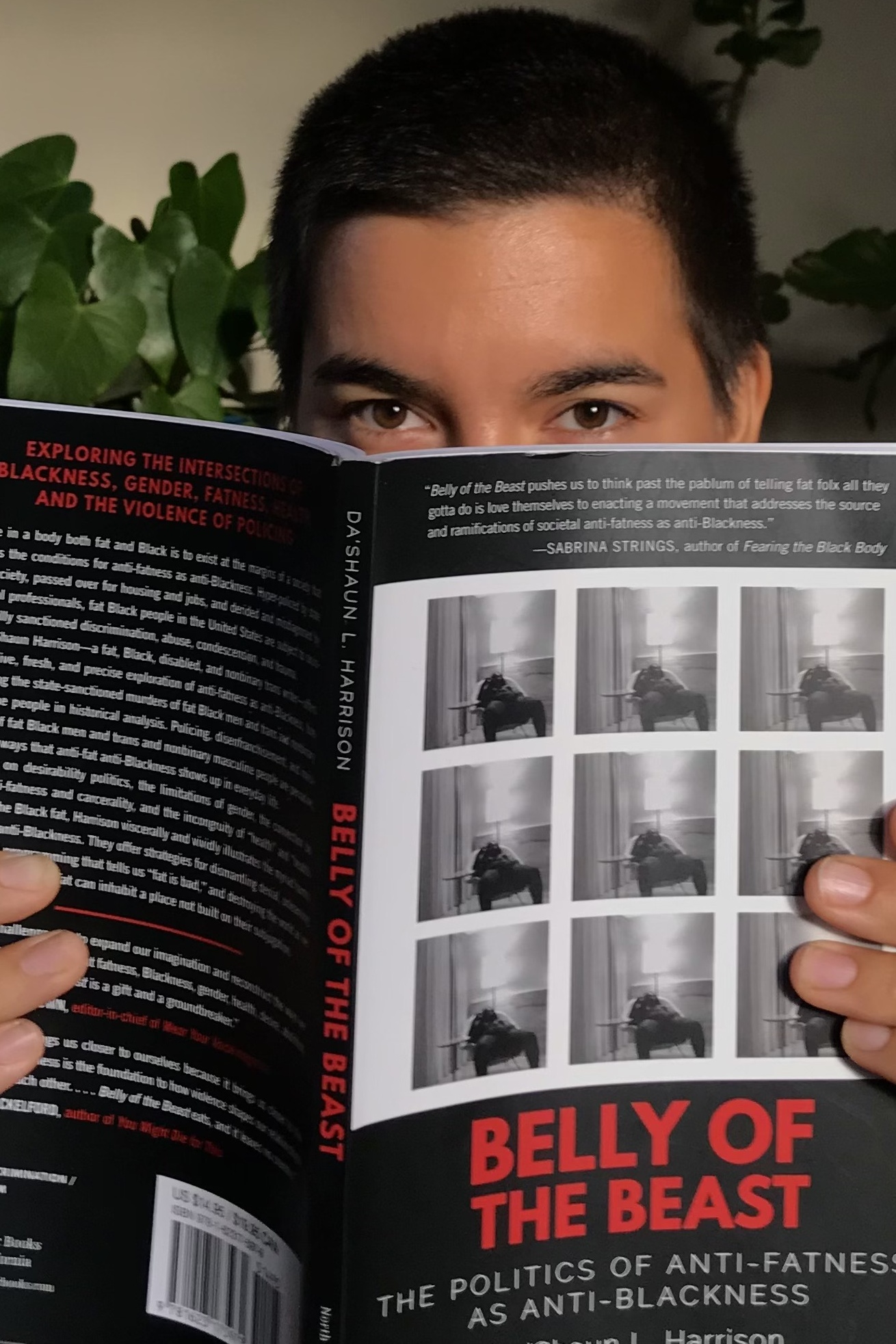
Let the homie pick:
Sage
Heavy
by Kiese Laymon
Focuses:
Relationships
Black America
by Kiese Laymon
Focuses:
Relationships
Black America
In Heavy, Laymon writes eloquently and honestly about growing up a hard-headed black son to a complicated and brilliant black mother in Jackson, Mississippi. From his early experiences of sexual violence, to his suspension from college, to his trek to New York as a young college professor, Laymon charts his complex relationship with his mother, grandmother, anorexia, obesity, sex, writing, and ultimately gambling.
By attempting to name secrets and lies he and his mother spent a lifetime avoiding, Laymon asks himself, his mother, his nation, and us to confront the terrifying possibility that few in this nation actually know how to responsibly love, and even fewer want to live under the weight of actually becoming free.
Buy it local Join a book club
By attempting to name secrets and lies he and his mother spent a lifetime avoiding, Laymon asks himself, his mother, his nation, and us to confront the terrifying possibility that few in this nation actually know how to responsibly love, and even fewer want to live under the weight of actually becoming free.
Buy it local Join a book club
The Skin I'm in
by Sharon G Flake
Focuses:
Racism
Culture
Identity
by Sharon G Flake
Focuses:
Racism
Culture
Identity
Maleeka Madison is a strong student who has had enough of being teased about her "too black" skin and handmade clothes. So when she starts seventh grade, she decides to adopt a sassier attitude and a tougher circle of friends. The last thing she expects is to get "messed up" with another "freak," but that's exactly what happens.
After a new teacher, whose face is disfigured from a skin disease, enters her life, will Maleeka be able to learn to love the skin she's in?
Buy it local Join a book club
After a new teacher, whose face is disfigured from a skin disease, enters her life, will Maleeka be able to learn to love the skin she's in?
Buy it local Join a book club
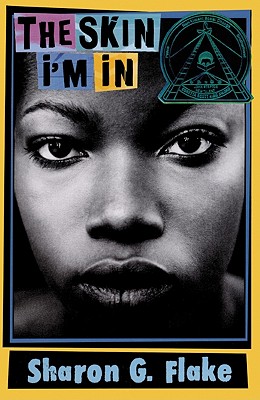
August 2021
Autobiography of Malcom X
by Alex Haley
Focuses:
Culture
History
Black America
by Alex Haley
Focuses:
Culture
History
Black America
Through a life of passion and struggle, Malcolm X became one of the most influential figures of the 20th Century. In this riveting account, he tells of his journey from a prison cell to Mecca, describing his transition from hoodlum to Muslim minister. Here, the man who called himself "the angriest Black man in America" relates how his conversion to true Islam helped him confront his rage and recognize the brotherhood of all mankind.
Buy it local Join a book club
Buy it local Join a book club
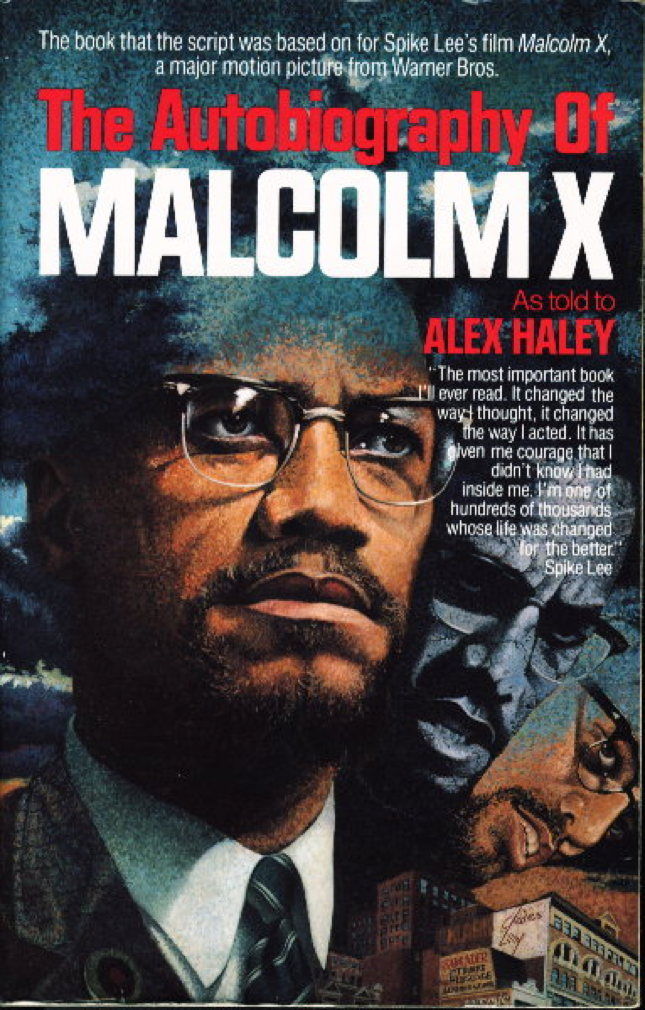
Looking For Lorraine
by Imani Perry
Focuses:
Revolution
Neocolonialism
Racism
by Imani Perry
Focuses:
Revolution
Neocolonialism
Racism
Lorraine Hansberry, who died at thirty-four, was by all accounts a force of nature. Although best-known for her work A Raisin in the Sun, her short life was full of extraordinary experiences and achievements, and she had an unflinching commitment to social justice, which brought her under FBI surveillance when she was barely in her twenties. While her close friends and contemporaries, like James Baldwin and Nina Simone, have been rightly celebrated, her story has been diminished and relegated to one work—until now. In 2018, Hansberry will get the recognition she deserves with the PBS American Masters documentary "Lorraine Hansberry: Sighted Eyes/Feeling Heart" and Imani Perry's multi-dimensional, illuminating biography, Looking for Lorraine.
After the success of A Raisin in the Sun, Hansberry used her prominence in myriad ways: challenging President Kennedy and his brother to take bolder stances on Civil Rights, supporting African anti-colonial leaders, and confronting the romantic racism of the Beat poets and Village hipsters. Though she married a man, she identified as lesbian and, risking censure and the prospect of being outed, joined one of the nation's first lesbian organizations. Hansberry associated with many activists, writers, and musicians, including Malcolm X, Langston Hughes, Duke Ellington, Paul Robeson, W.E.B. Du Bois, among others. Looking for Lorraine is a powerful insight into Hansberry's extraordinary life—a life that was tragically cut far too short.
Buy it local Join a book club
After the success of A Raisin in the Sun, Hansberry used her prominence in myriad ways: challenging President Kennedy and his brother to take bolder stances on Civil Rights, supporting African anti-colonial leaders, and confronting the romantic racism of the Beat poets and Village hipsters. Though she married a man, she identified as lesbian and, risking censure and the prospect of being outed, joined one of the nation's first lesbian organizations. Hansberry associated with many activists, writers, and musicians, including Malcolm X, Langston Hughes, Duke Ellington, Paul Robeson, W.E.B. Du Bois, among others. Looking for Lorraine is a powerful insight into Hansberry's extraordinary life—a life that was tragically cut far too short.
Buy it local Join a book club
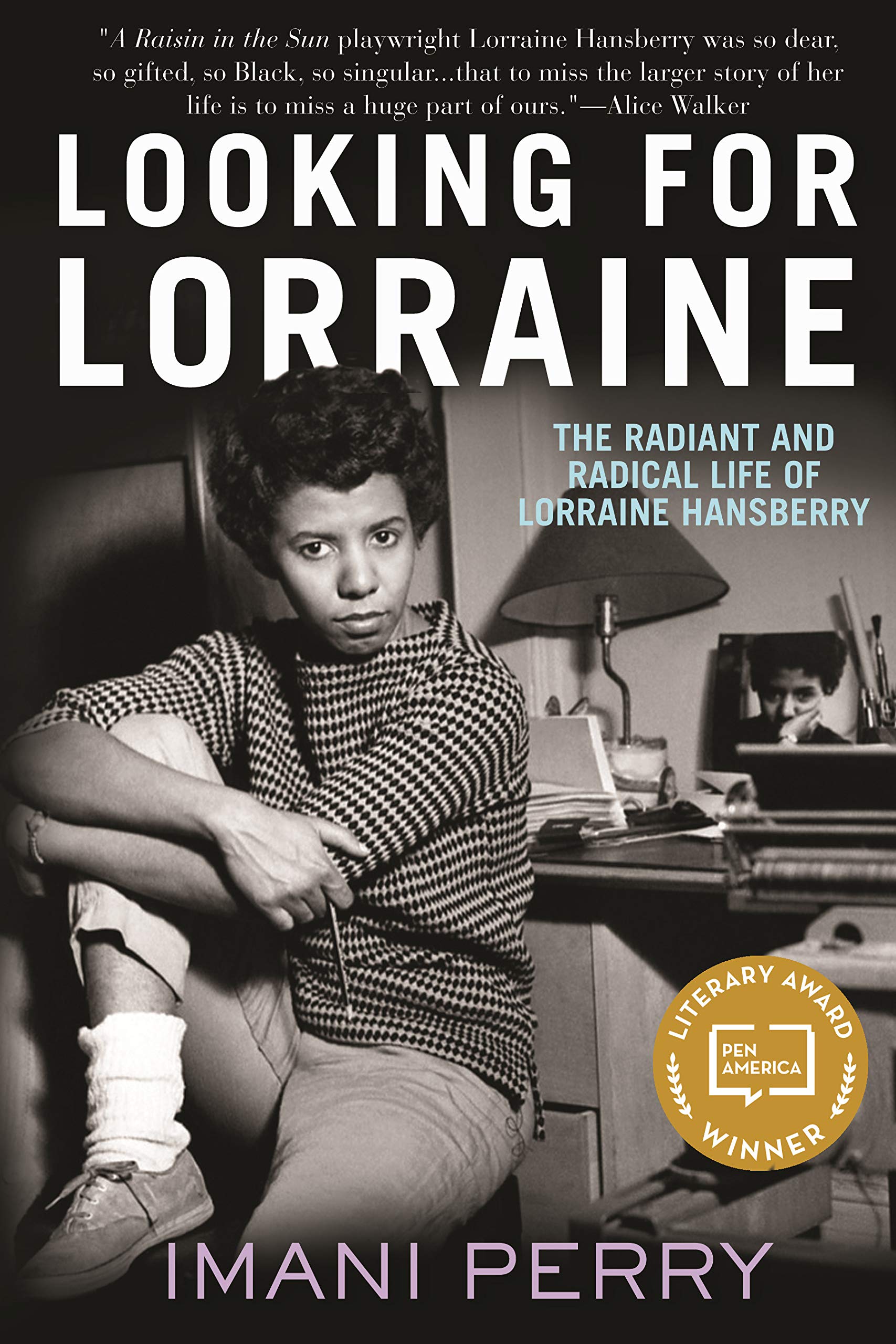
July 2021
Homegoing
by Yaa Gyasi
Focuses:
Culture
History
by Yaa Gyasi
Focuses:
Culture
History
Homegoing heralds the arrival of a major new voice in contemporary fiction.
Two half-sisters, Effia and Esi, are born into different villages in eighteenth-century Ghana. Effia is married off to an Englishman and lives in comfort in the palatial rooms of Cape Coast Castle. Unbeknownst to Effia, her sister, Esi, is imprisoned beneath her in the castle's dungeons, sold with thousands of others into the Gold Coast's booming slave trade, and shipped off to America, where her children and grandchildren will be raised in slavery. One thread of Homegoing follows Effia's descendants through centuries of warfare in Ghana, as the Fante and Asante nations wrestle with the slave trade and British colonization. The other thread follows Esi and her children into America. From the plantations of the South to the Civil War and the Great Migration, from the coal mines of Pratt City, Alabama, to the jazz clubs and dope houses of twentieth-century Harlem, right up through the present day, Homegoing makes history visceral, and captures, with singular and stunning immediacy, how the memory of captivity came to be inscribed in the soul of a nation.
Generation after generation, Yaa Gyasi's magisterial first novel sets the fate of the individual against the obliterating movements of time, delivering unforgettable characters whose lives were shaped by historical forces beyond their control. Homegoing is a tremendous reading experience, not to be missed, by an astonishingly gifted young writer
Buy it local Join a book club
Two half-sisters, Effia and Esi, are born into different villages in eighteenth-century Ghana. Effia is married off to an Englishman and lives in comfort in the palatial rooms of Cape Coast Castle. Unbeknownst to Effia, her sister, Esi, is imprisoned beneath her in the castle's dungeons, sold with thousands of others into the Gold Coast's booming slave trade, and shipped off to America, where her children and grandchildren will be raised in slavery. One thread of Homegoing follows Effia's descendants through centuries of warfare in Ghana, as the Fante and Asante nations wrestle with the slave trade and British colonization. The other thread follows Esi and her children into America. From the plantations of the South to the Civil War and the Great Migration, from the coal mines of Pratt City, Alabama, to the jazz clubs and dope houses of twentieth-century Harlem, right up through the present day, Homegoing makes history visceral, and captures, with singular and stunning immediacy, how the memory of captivity came to be inscribed in the soul of a nation.
Generation after generation, Yaa Gyasi's magisterial first novel sets the fate of the individual against the obliterating movements of time, delivering unforgettable characters whose lives were shaped by historical forces beyond their control. Homegoing is a tremendous reading experience, not to be missed, by an astonishingly gifted young writer
Buy it local Join a book club
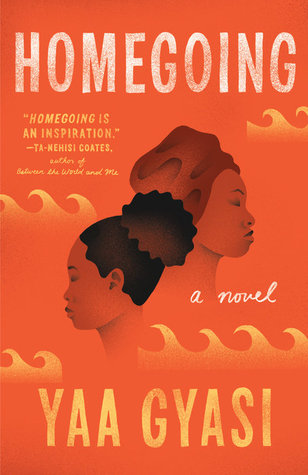
June 2021
The Hip Hop Wars
by Tricia Rose
Focuses:
Culture
Music
Black America
by Tricia Rose
Focuses:
Culture
Music
Black America
Hip hop is a distinctive form of black art in America-from Tupac to the Pulitzer Prize-winning Kendrick Lamar, hip hop has long given voice to the African American experience. As scholar and cultural critic Tricia Rose argues, hip hop, in fact, has become one of the primary ways we talk about race in the United States.
But hip hop is in crisis. For years, the most commercially successful hip hop has become increasingly saturated with caricatures of black gangstas, thugs, pimps, and hos. This both represents and feeds a problem in black American culture. Or does it? In The Hip-Hop Wars, Rose explores the most crucial issues underlying the polarized claims on each side of the debate: Does hip hop cause violence, or merely reflect a violent ghetto culture? Is hip hop sexist, or are its detractors simply anti-sex? Does the portrayal of black culture in hip hop undermine black advancement?
A potent exploration of a divisive and important subject, The Hip Hop Wars concludes with a call for the regalvanization of the progressive and creative heart of hip hop. What Rose calls for is not a sanitized vision of the form, but one that more accurately reflects a much richer space of culture, politics, anger, and yes, sex, than the current ubiquitous images in sound and video currently provide.
Buy it local Join a book club
But hip hop is in crisis. For years, the most commercially successful hip hop has become increasingly saturated with caricatures of black gangstas, thugs, pimps, and hos. This both represents and feeds a problem in black American culture. Or does it? In The Hip-Hop Wars, Rose explores the most crucial issues underlying the polarized claims on each side of the debate: Does hip hop cause violence, or merely reflect a violent ghetto culture? Is hip hop sexist, or are its detractors simply anti-sex? Does the portrayal of black culture in hip hop undermine black advancement?
A potent exploration of a divisive and important subject, The Hip Hop Wars concludes with a call for the regalvanization of the progressive and creative heart of hip hop. What Rose calls for is not a sanitized vision of the form, but one that more accurately reflects a much richer space of culture, politics, anger, and yes, sex, than the current ubiquitous images in sound and video currently provide.
Buy it local Join a book club
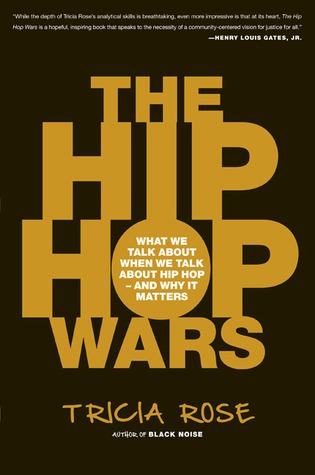
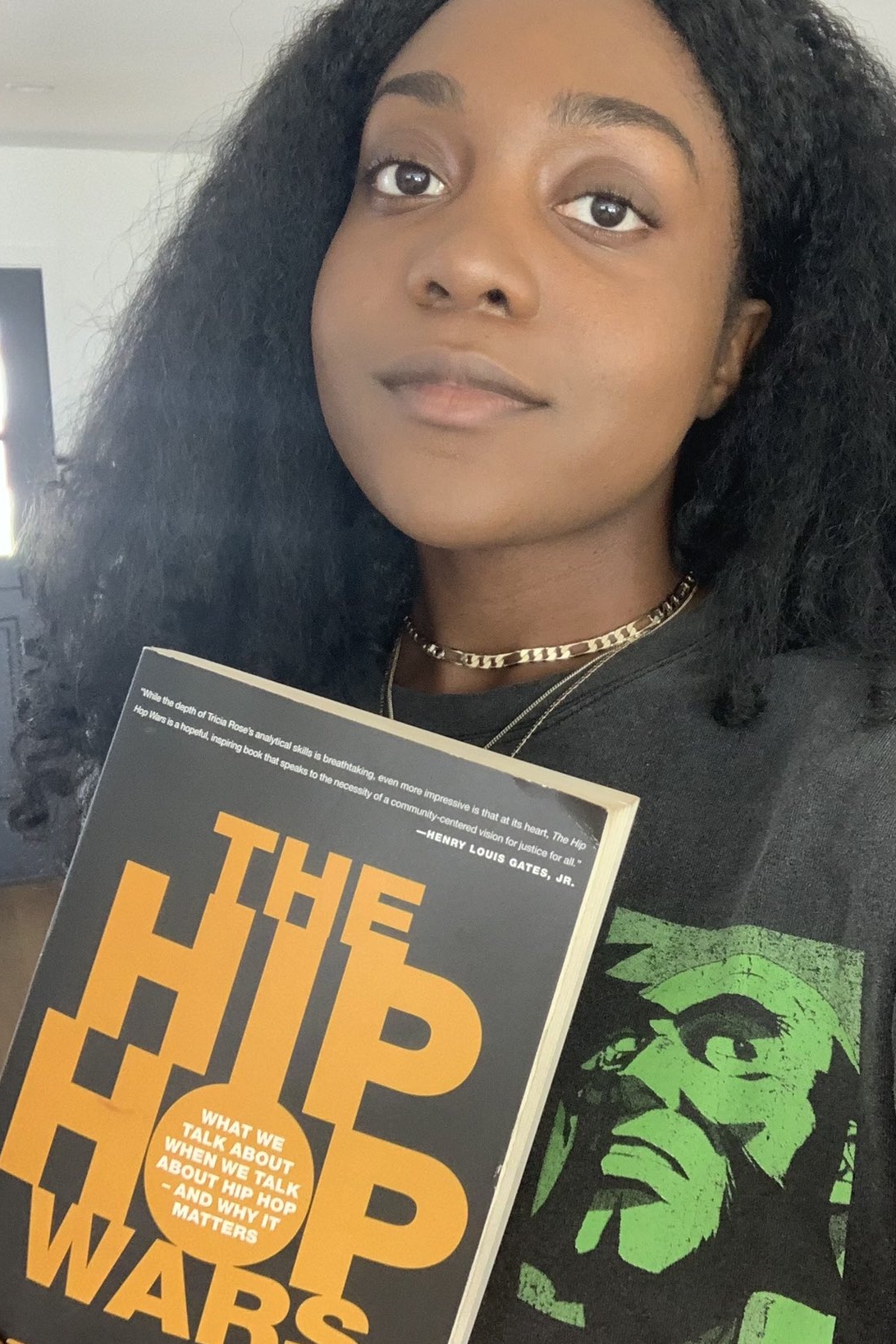
A Little Devil In America
by Hanif Abdurraqib
Focuses:
Politics
American Culture
Poetry
by Hanif Abdurraqib
Focuses:
Politics
American Culture
Poetry
At the March on Washington in 1963, Josephine Baker was fifty-seven years old, well beyond her most prolific days. But in her speech, she was in a mood to consider her life, her legacy, her departure from the country she was now triumphantly returning to. “I was a devil in other countries, and I was a little devil in America, too,” she told the crowd. Inspired by these few words, Hanif Abdurraqib has written a profound and lasting reflection on how Black performance is inextricably woven into the fabric of American culture. Each moment in every performance he examines—whether it’s the twenty-seven seconds in “Gimme Shelter” in which Merry Clayton wails the words “rape, murder,” a schoolyard fistfight, a dance marathon, or the instant in a game of spades right after the cards are dealt—has layers of resonance in Black and white cultures, the politics of American empire, and Abdurraqib’s own personal history of love, grief, and performance.
Abdurraqib writes prose brimming with jubilation and pain, infused with the lyricism and rhythm of the musicians he loves. With care and generosity, he explains the poignancy of performances big and small, each one feeling intensely familiar and vital, both timeless and desperately urgent. Filled with sharp insight, humor, and heart, A Little Devil in America exalts the Black performance that unfolds in specific moments in time and space—from midcentury Paris to the moon, and back down again to a cramped living room in Columbus, Ohio.
Buy it local Join a book club
Abdurraqib writes prose brimming with jubilation and pain, infused with the lyricism and rhythm of the musicians he loves. With care and generosity, he explains the poignancy of performances big and small, each one feeling intensely familiar and vital, both timeless and desperately urgent. Filled with sharp insight, humor, and heart, A Little Devil in America exalts the Black performance that unfolds in specific moments in time and space—from midcentury Paris to the moon, and back down again to a cramped living room in Columbus, Ohio.
Buy it local Join a book club
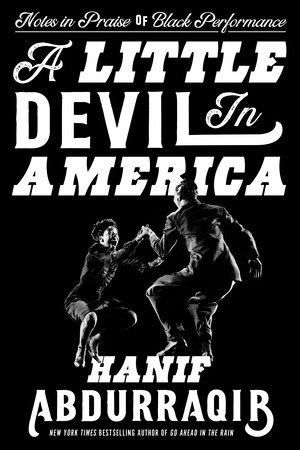
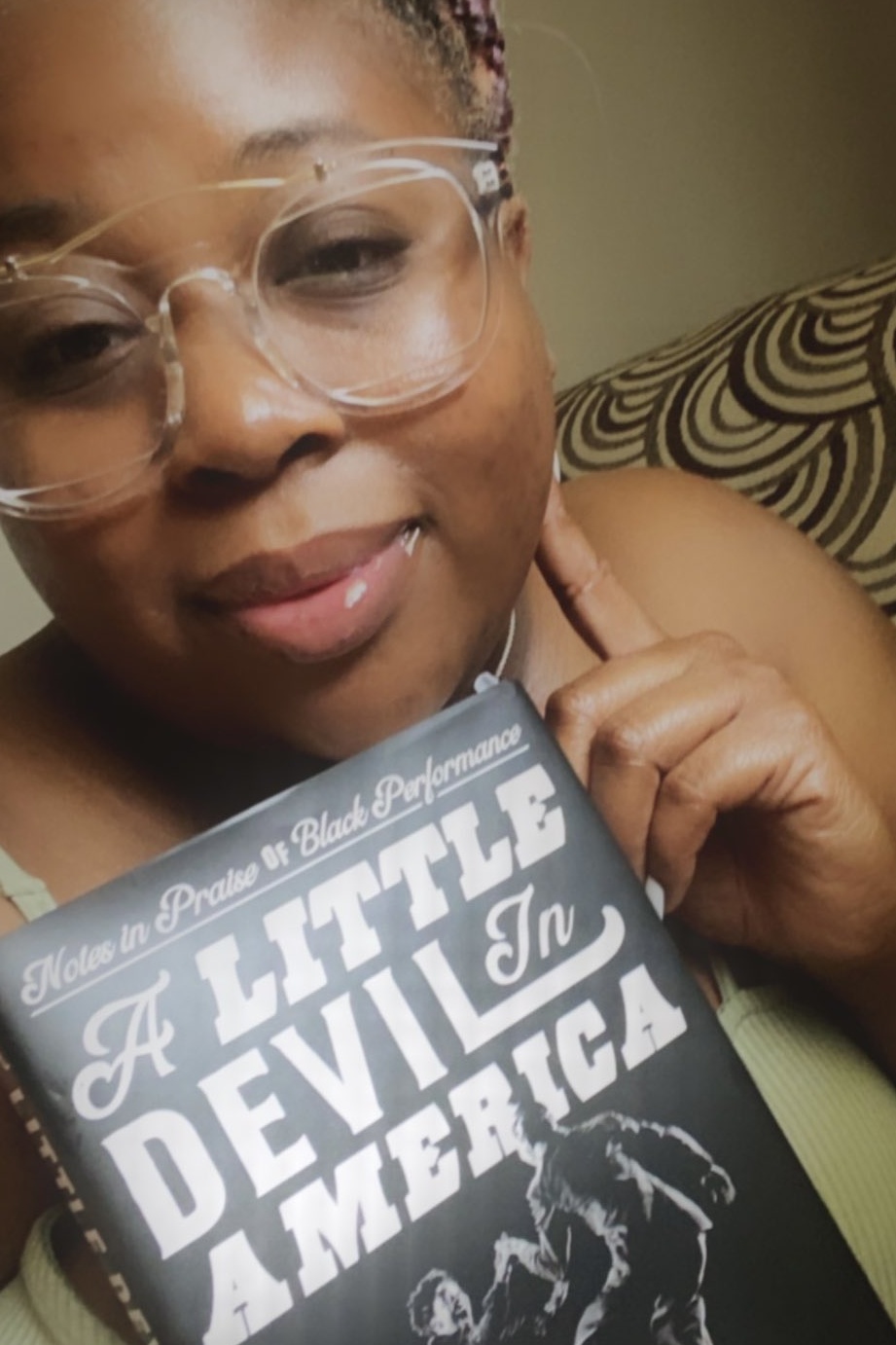
Monster
by Walter Dean Myers
Focuses:
Judicial System
Justice
Black America
by Walter Dean Myers
Focuses:
Judicial System
Justice
Black America
Sixteen-year-old Steve Harmon is on trial for murder. A Harlem drugstore owner was shot and killed in his store, and the word is that Steve served as the lookout.
Guilty or innocent, Steve becomes a pawn in the hands of "the system," cluttered with cynical authority figures and unscrupulous inmates, who will turn in anyone to shorten their own sentences. For the first time, Steve is forced to think about who he is as he faces prison, where he may spend all the tomorrows of his life.
As a way of coping with the horrific events that entangle him, Steve, an amateur filmmaker, decides to transcribe his trial into a script, just like in the movies. He writes it all down, scene by scene, the story of how his whole life was turned around in an instant. But despite his efforts, the reality is blurred and his vision obscured until he can no longer tell who he is or what is the truth. This compelling novel is Walter Dean Myers's writing at its best.
Buy it local Join a book club
Guilty or innocent, Steve becomes a pawn in the hands of "the system," cluttered with cynical authority figures and unscrupulous inmates, who will turn in anyone to shorten their own sentences. For the first time, Steve is forced to think about who he is as he faces prison, where he may spend all the tomorrows of his life.
As a way of coping with the horrific events that entangle him, Steve, an amateur filmmaker, decides to transcribe his trial into a script, just like in the movies. He writes it all down, scene by scene, the story of how his whole life was turned around in an instant. But despite his efforts, the reality is blurred and his vision obscured until he can no longer tell who he is or what is the truth. This compelling novel is Walter Dean Myers's writing at its best.
Buy it local Join a book club
 Youth Pick
Youth PickMay 2021
The End of Policing
by Alex S. Vitale
Focuses:
Police Brutality
Civil Rights
Legizlation
Focuses:
Police Brutality
Civil Rights
Legizlation
Recent years have seen an explosion of protest against police brutality and repression—most dramatically in Ferguson, Missouri, where longheld grievances erupted in violent demonstrations following the police killing of Michael Brown. Among activists, journalists, and politicians, the conversation about how to respond and improve policing has focused on accountability, diversity, training, and community relations. Unfortunately, these reforms will not produce results, either alone or in combination. The core of the problem must be addressed: the nature of modern policing itself. “Broken windows” practices, the militarization of law enforcement, and the dramatic expansion of the police’s role over the last forty years have created a mandate for officers that must be rolled back.
This book attempts to spark public discussion by revealing the tainted origins of modern policing as a tool of social control. It shows how the expansion of police authority is inconsistent with community empowerment, social justice—even public safety. Drawing on groundbreaking research from across the world, and covering virtually every area in the increasingly broad range of police work, Alex Vitale demonstrates how law enforcement has come to exacerbate the very problems it is supposed to solve.
In contrast, there are places where the robust implementation of policing alternatives—such as legalization, restorative justice, and harm reduction—has led to reductions in crime, spending, and injustice. The best solution to bad policing may be an end to policing.
Buy it local Join a book club
This book attempts to spark public discussion by revealing the tainted origins of modern policing as a tool of social control. It shows how the expansion of police authority is inconsistent with community empowerment, social justice—even public safety. Drawing on groundbreaking research from across the world, and covering virtually every area in the increasingly broad range of police work, Alex Vitale demonstrates how law enforcement has come to exacerbate the very problems it is supposed to solve.
In contrast, there are places where the robust implementation of policing alternatives—such as legalization, restorative justice, and harm reduction—has led to reductions in crime, spending, and injustice. The best solution to bad policing may be an end to policing.
Buy it local Join a book club
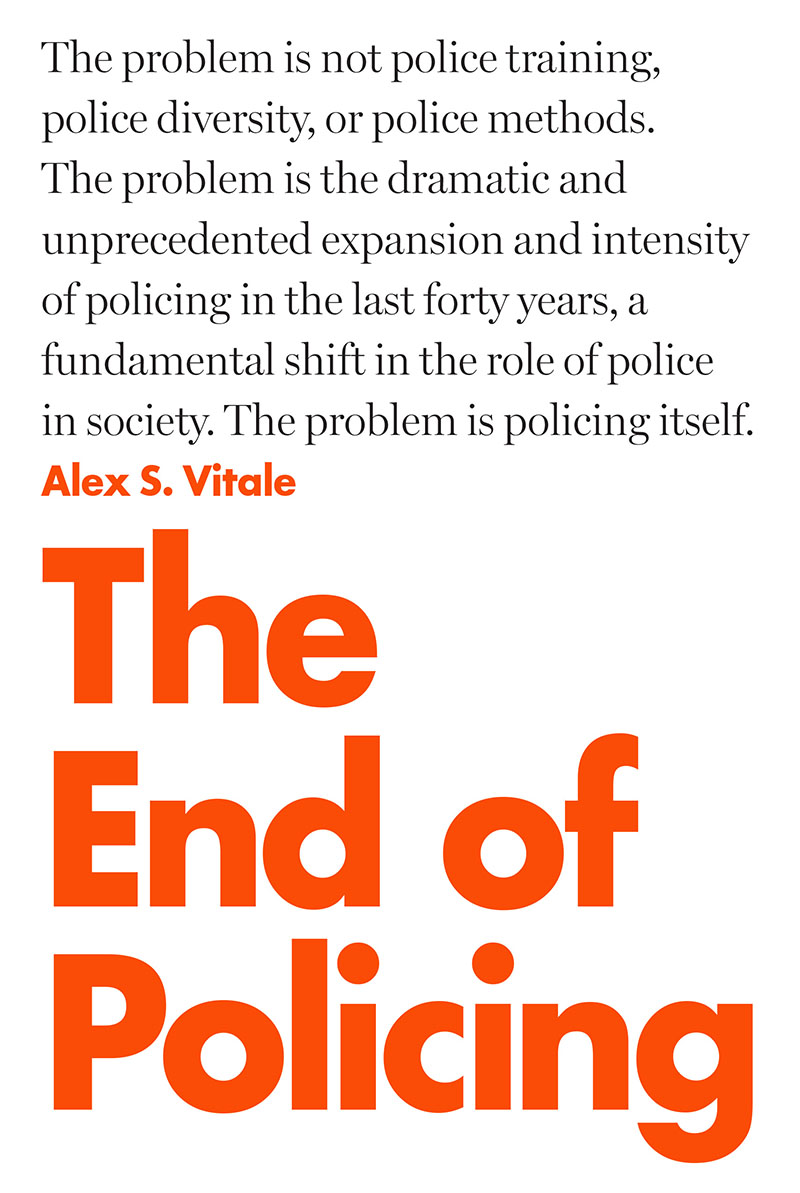
Facing the Rising Sun
by Gerald Horne
Focuses:
War
Culture
Racism
by Gerald Horne
Focuses:
War
Culture
Racism
On November 1942 in East St. Louis, Illinois a group of African Americans engaged in military drills were eagerly awaiting a Japanese invasion of the U.S.— an invasion that they planned to join. Since the rise of Japan as a superpower less than a century earlier, African Americans across class and ideological lines had saluted the Asian nation, not least because they thought its very existence undermined the pervasive notion of “white supremacy.” The list of supporters included Booker T. Washington, Marcus Garvey, and particularly W.E.B. Du Bois.
Facing the Rising Sun tells the story of the widespread pro-Tokyo sentiment among African Americans during World War II, arguing that the solidarity between the two groups was significantly corrosive to the U.S. war effort. Gerald Horne demonstrates that Black Nationalists of various stripes were the vanguard of this trend—including followers of Garvey and the precursor of the Nation of Islam. Indeed, many of them called themselves “Asiatic”, not African. Following World War II, Japanese-influenced “Afro-Asian” solidarity did not die, but rather foreshadowed Dr. Martin Luther King’s tie to Gandhi’s India and Black Nationalists’ post-1970s fascination with Maoist China and Ho’s Vietnam.
Based upon exhaustive research, including the trial transcripts of the pro-Tokyo African Americans who were tried during the war, congressional archives and records of the Negro press, this book also provides essential background for what many analysts consider the coming “Asian Century.” An insightful glimpse into the Black Nationalists’ struggle for global leverage and new allies, Facing the Rising Sun provides a complex, holistic perspective on a painful period in African American history, and a unique glimpse into the meaning of “the enemy of my enemy is my friend.”
Buy it local Join a book club
Facing the Rising Sun tells the story of the widespread pro-Tokyo sentiment among African Americans during World War II, arguing that the solidarity between the two groups was significantly corrosive to the U.S. war effort. Gerald Horne demonstrates that Black Nationalists of various stripes were the vanguard of this trend—including followers of Garvey and the precursor of the Nation of Islam. Indeed, many of them called themselves “Asiatic”, not African. Following World War II, Japanese-influenced “Afro-Asian” solidarity did not die, but rather foreshadowed Dr. Martin Luther King’s tie to Gandhi’s India and Black Nationalists’ post-1970s fascination with Maoist China and Ho’s Vietnam.
Based upon exhaustive research, including the trial transcripts of the pro-Tokyo African Americans who were tried during the war, congressional archives and records of the Negro press, this book also provides essential background for what many analysts consider the coming “Asian Century.” An insightful glimpse into the Black Nationalists’ struggle for global leverage and new allies, Facing the Rising Sun provides a complex, holistic perspective on a painful period in African American history, and a unique glimpse into the meaning of “the enemy of my enemy is my friend.”
Buy it local Join a book club
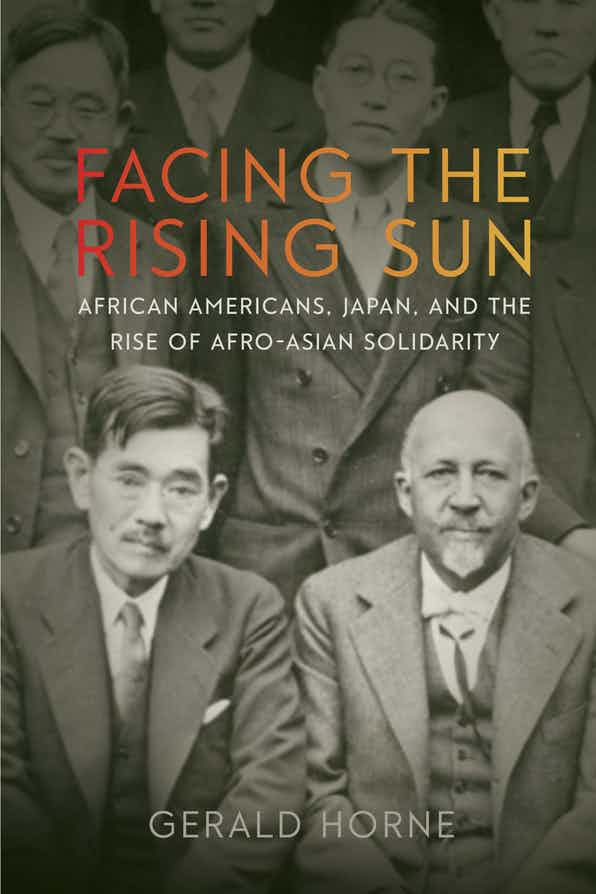
April 2021
This Nonviolent Stuff'll Get You Killed
by Charles E. Cobb Jr.
Focuses:
Freedom
Civil Rights
Capitalism
by Charles E. Cobb Jr.
Focuses:
Freedom
Civil Rights
Capitalism
Visiting Martin Luther King Jr. at the peak of the Montgomery, Alabama bus boycott, journalist William Worthy almost sat on a loaded pistol. "Just for self defense," King assured him. It was not the only weapon King kept for such a purpose; one of his advisors remembered the reverend's Montgomery, Alabama home as "an arsenal."
Like King, many ostensibly "nonviolent" civil rights activists embraced their constitutional right to selfprotection-yet this crucial dimension of the Afro-American freedom struggle has been long ignored by history. In This Nonviolent Stuff'll Get You Killed, civil rights scholar Charles E. Cobb Jr. describes the vital role that armed self-defense played in the survival and liberation of black communities in America during the Southern Freedom Movement of the 1960s. In the Deep South, blacks often safeguarded themselves and their loved ones from white supremacist violence by bearing-and, when necessary, using-firearms. In much the same way, Cobb shows, nonviolent civil rights workers received critical support from black gun owners inthe regions where they worked. Whether patrolling their neighborhoods, garrisoning their homes, or firing back at attackers, these courageous men and women and the weapons they carried were crucial to the movement's success.
Giving voice to the World War II veterans, rural activists, volunteer security guards, and self-defense groups who took up arms to defend their lives and liberties, This Nonviolent Stuff'll Get You Killed lays bare the paradoxical relationship between the nonviolent civil rights struggle and the Second Amendment. Drawing on his firsthand experiences in the civil rights movement and interviews with fellow participants, Cobb provides a controversial examination of the crucial place of firearms in the fight for American freedom.
Buy it local Join a book club
Like King, many ostensibly "nonviolent" civil rights activists embraced their constitutional right to selfprotection-yet this crucial dimension of the Afro-American freedom struggle has been long ignored by history. In This Nonviolent Stuff'll Get You Killed, civil rights scholar Charles E. Cobb Jr. describes the vital role that armed self-defense played in the survival and liberation of black communities in America during the Southern Freedom Movement of the 1960s. In the Deep South, blacks often safeguarded themselves and their loved ones from white supremacist violence by bearing-and, when necessary, using-firearms. In much the same way, Cobb shows, nonviolent civil rights workers received critical support from black gun owners inthe regions where they worked. Whether patrolling their neighborhoods, garrisoning their homes, or firing back at attackers, these courageous men and women and the weapons they carried were crucial to the movement's success.
Giving voice to the World War II veterans, rural activists, volunteer security guards, and self-defense groups who took up arms to defend their lives and liberties, This Nonviolent Stuff'll Get You Killed lays bare the paradoxical relationship between the nonviolent civil rights struggle and the Second Amendment. Drawing on his firsthand experiences in the civil rights movement and interviews with fellow participants, Cobb provides a controversial examination of the crucial place of firearms in the fight for American freedom.
Buy it local Join a book club
Cane
by Jean Toomer
Focuses:
Poetry
Culture
Racism
by Jean Toomer
Focuses:
Poetry
Culture
Racism
Jean Toomer's Cane is one of the most significant works to come out of the Harlem Renaissance, and is considered to be a masterpiece in American modernist literature because of its distinct structure and style. First published in 1923 and told through a series of vignettes, Cane uses poetry, prose, and play-like dialogue to create a window into the varied lives of African Americans living in the rural South and urban North during a time when Jim Crow laws pervaded and racism reigned. While critically acclaimed and known today as a pioneering text of the Harlem Renaissance, the book did not gain as much popularity as other works written during the period.
Fellow Harlem Renaissance writer Langston Hughes believed Cane's lack of a wider readership was because it didn't reinforce the stereotypes often associated with African Americans during the time, but portrayed them in an accurate and entirely human way, breaking the mold and laying the groundwork for how African Americans are depicted in literature. For the first time in Penguin Classics, this edition of Cane features a new introduction, suggestions for further reading, and notes by scholar George Hutchinson, and National Book Award Foundation 5 Under 35 novelist Zinzi Clemmons contributes a foreword.
Buy it local Join a book club
Fellow Harlem Renaissance writer Langston Hughes believed Cane's lack of a wider readership was because it didn't reinforce the stereotypes often associated with African Americans during the time, but portrayed them in an accurate and entirely human way, breaking the mold and laying the groundwork for how African Americans are depicted in literature. For the first time in Penguin Classics, this edition of Cane features a new introduction, suggestions for further reading, and notes by scholar George Hutchinson, and National Book Award Foundation 5 Under 35 novelist Zinzi Clemmons contributes a foreword.
Buy it local Join a book club
March 2021
The Three Mothers
by Anna Malaika Tubbs
Focuses:
Black Motherhood
Injustice
by Anna Malaika Tubbs
Focuses:
Black Motherhood
Injustice
In her groundbreaking and essential debut The Three Mothers, scholar Anna Malaika Tubbs celebrates Black motherhood by telling the story of the three women who raised and shaped some of America's most pivotal heroes: Martin Luther King, Jr., Malcolm X, and James Baldwin.
Much has been written about Berdis Baldwin's son James, about Alberta King's son Martin Luther, and Louise Little's son Malcolm. But virtually nothing has been said about the extraordinary women who raised them, who were all born at the beginning of the 20th century and forced to contend with the prejudices of Jim Crow as Black women.
Berdis, Alberta, and Louise passed their knowledge to their children with the hope of helping them to survive in a society that would deny their humanity from the very beginning--from Louise teaching her children about their activist roots, to Berdis encouraging James to express himself through writing, to Alberta basing all of her lessons in faith and social justice. These women used their strength and motherhood to push their children toward greatness, all with a conviction that every human being deserves dignity and respect despite the rampant discrimination they faced.
These three mothers taught resistance and a fundamental belief in the worth of Black people to their sons, even when these beliefs flew in the face of America's racist practices and led to ramifications for all three families' safety. The fight for equal justice and dignity came above all else for the three mothers.
These women, their similarities and differences, as individuals and as mothers, represent a piece of history left untold and a celebration of Black motherhood long overdue.
Buy it local Join a book club
Much has been written about Berdis Baldwin's son James, about Alberta King's son Martin Luther, and Louise Little's son Malcolm. But virtually nothing has been said about the extraordinary women who raised them, who were all born at the beginning of the 20th century and forced to contend with the prejudices of Jim Crow as Black women.
Berdis, Alberta, and Louise passed their knowledge to their children with the hope of helping them to survive in a society that would deny their humanity from the very beginning--from Louise teaching her children about their activist roots, to Berdis encouraging James to express himself through writing, to Alberta basing all of her lessons in faith and social justice. These women used their strength and motherhood to push their children toward greatness, all with a conviction that every human being deserves dignity and respect despite the rampant discrimination they faced.
These three mothers taught resistance and a fundamental belief in the worth of Black people to their sons, even when these beliefs flew in the face of America's racist practices and led to ramifications for all three families' safety. The fight for equal justice and dignity came above all else for the three mothers.
These women, their similarities and differences, as individuals and as mothers, represent a piece of history left untold and a celebration of Black motherhood long overdue.
Buy it local Join a book club
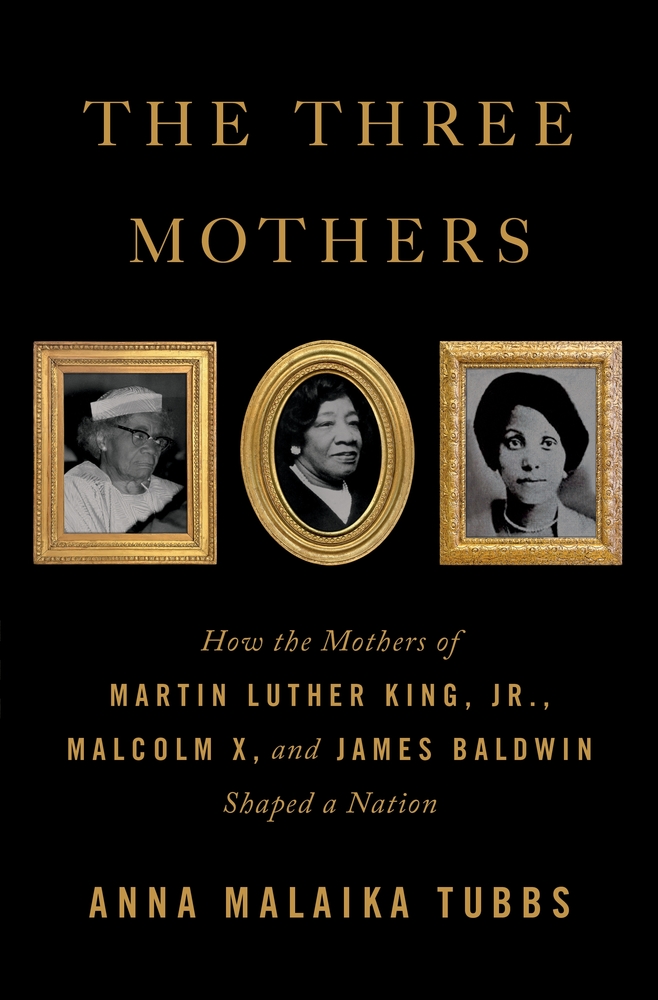
How We Get Free
by Keeanga-Yamhatta Taylor
Focuses:
Feminism
Liberation
by Keeanga-Yamhatta Taylor
Focuses:
Feminism
Liberation
The Combahee River Collective, a group of radical black feminists, was one of the most important organizations to develop out of the anti-racist and women's liberation movements of the 1960s and 70s. In this collection, founding members of the organization and contemporary activists reflect on the legacy of its contributions to black feminism and its impact on today's struggles.
Buy it local Join a book club
Buy it local Join a book club
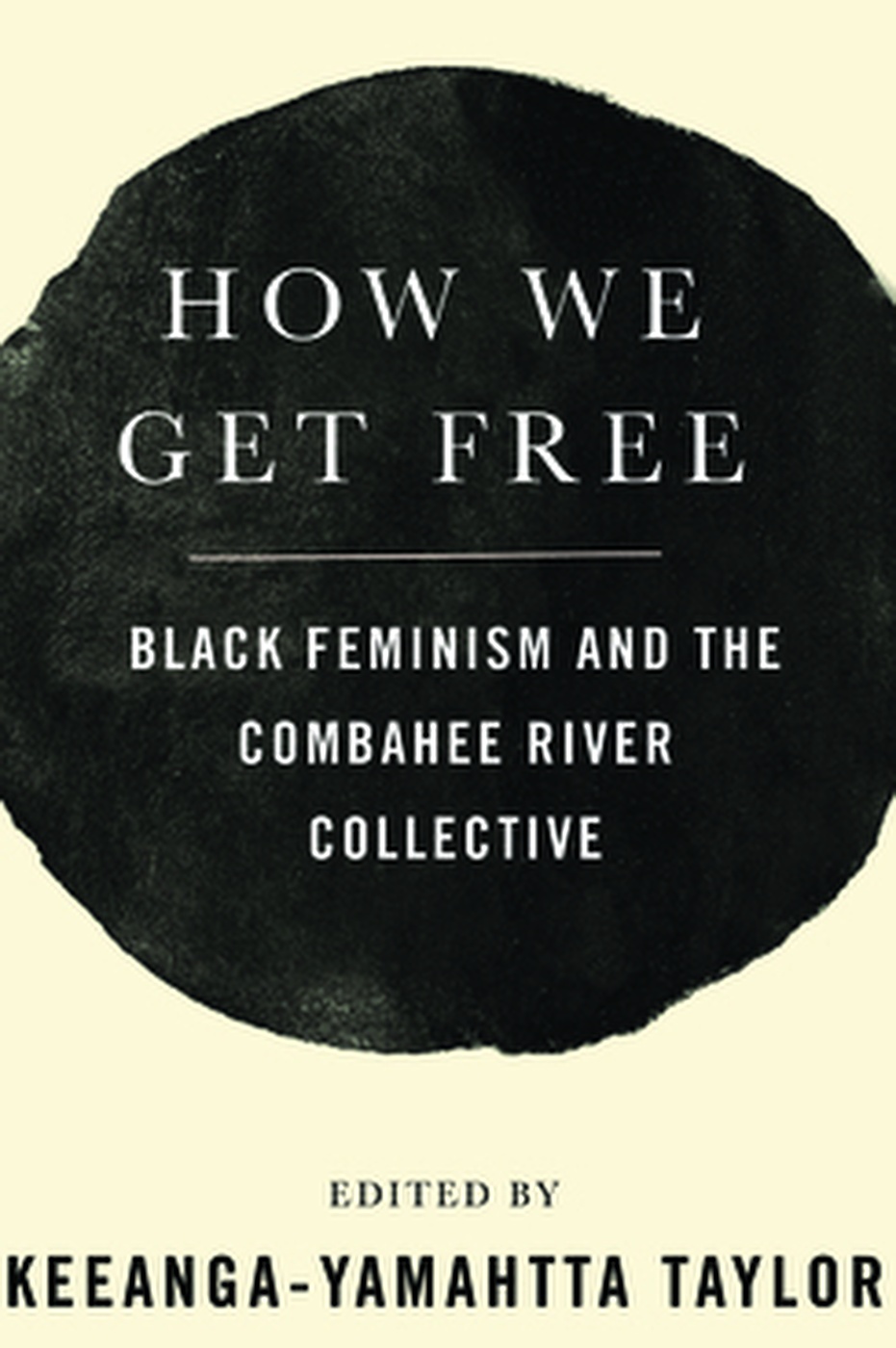
February 2021
The End of White World Supremacy
by Roderick D. Bush
Focuses:
Black Liberation
Capitalism
by Roderick D. Bush
Focuses:
Black Liberation
Capitalism
In The End of White World Supremacy, Rod Bush engages readers in a rich intellectual conversation, creating a quilt where each panel contains a story, a point, an example of its own, yet when one stands back, broader themes emerge. To benefit from the book, one needs to consider both the specifics of each conversation as well as the perspective of the whole discussion.
Bush, who died in 2013, was an activist as well as a scholar. In the 1970s, when he was a doctoral student in clinical psychology at the University of Kansas, he became involved in the Black Liberation movement. He moved to California in 1979 to devote himself to community work. He later completed his doctorate in sociology at Binghamton University (at the Braudel Center), and then taught at Seton Hall and St. John’s Universities. In recent years, he was a member of the national council of the Black Radical Congress and the Executive Board of the Left Forum.
Buy it local Join a book club
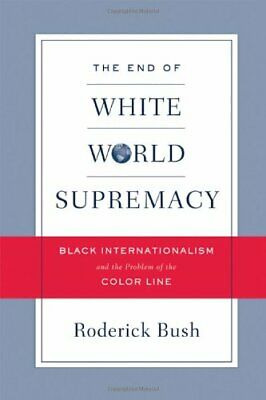
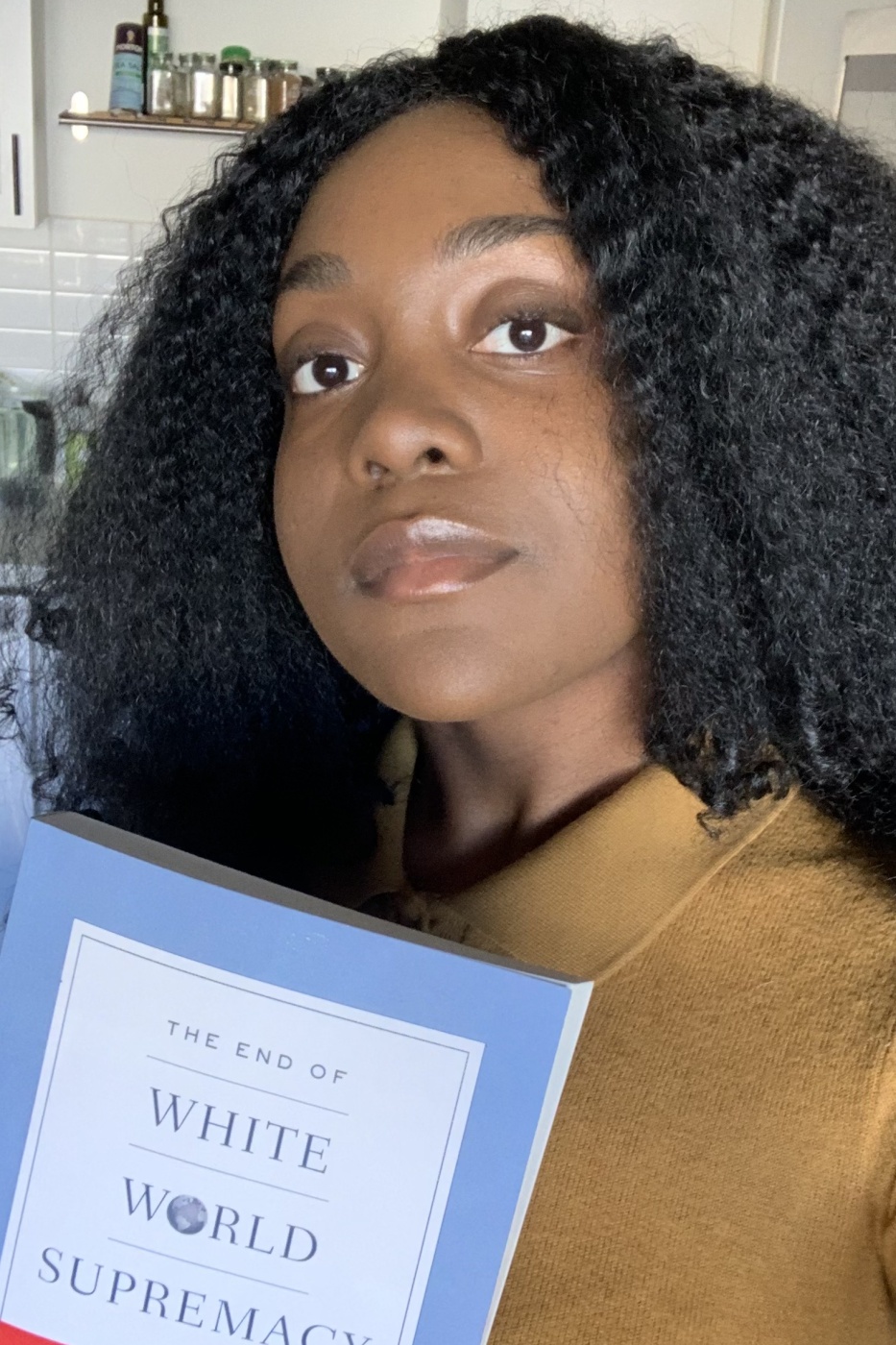
Here I Stand
by Paul Robeson
Focuses:
Equality
Society
by Paul Robeson
Focuses:
Equality
Society
Robeson's international achievements as a singer and actor in starring roles on stage and screen made him the most celebrated black American of his day, but his outspoken criticism of racism in the United States, his strong support of African independence, and his fascination with the Soviet Union placed him under the debilitating scrutiny of McCarthyism. Blacklisted, his famed voice silenced, Here I Stand offered a bold answer to his accusers. It remains today a defiant challenge to the prevailing fear and racism that continues to characterize American society.
Buy it local Join a book club
Buy it local Join a book club
January 2021
No Name In The Street
by James Baldwin
Focuses:
Racism
Injustice
by James Baldwin
Focuses:
Racism
Injustice
This stunningly personal document and extraordinary history of the turbulent sixties and early seventies displays James Baldwin's fury and despair more deeply than any of his other works. In vivid detail he remembers the Harlem childhood that shaped his early conciousness, the later events that scored his heart with pain—the murders of Martin Luther King and Malcolm X, his sojourns in Europe and in Hollywood, and his retum to the American South to confront a violent America face-to-face.
Buy it local Join a book club
Buy it local Join a book club
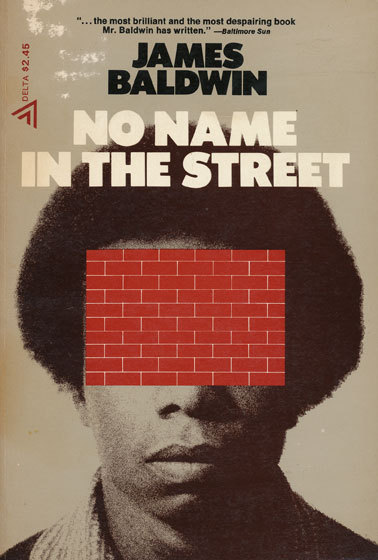
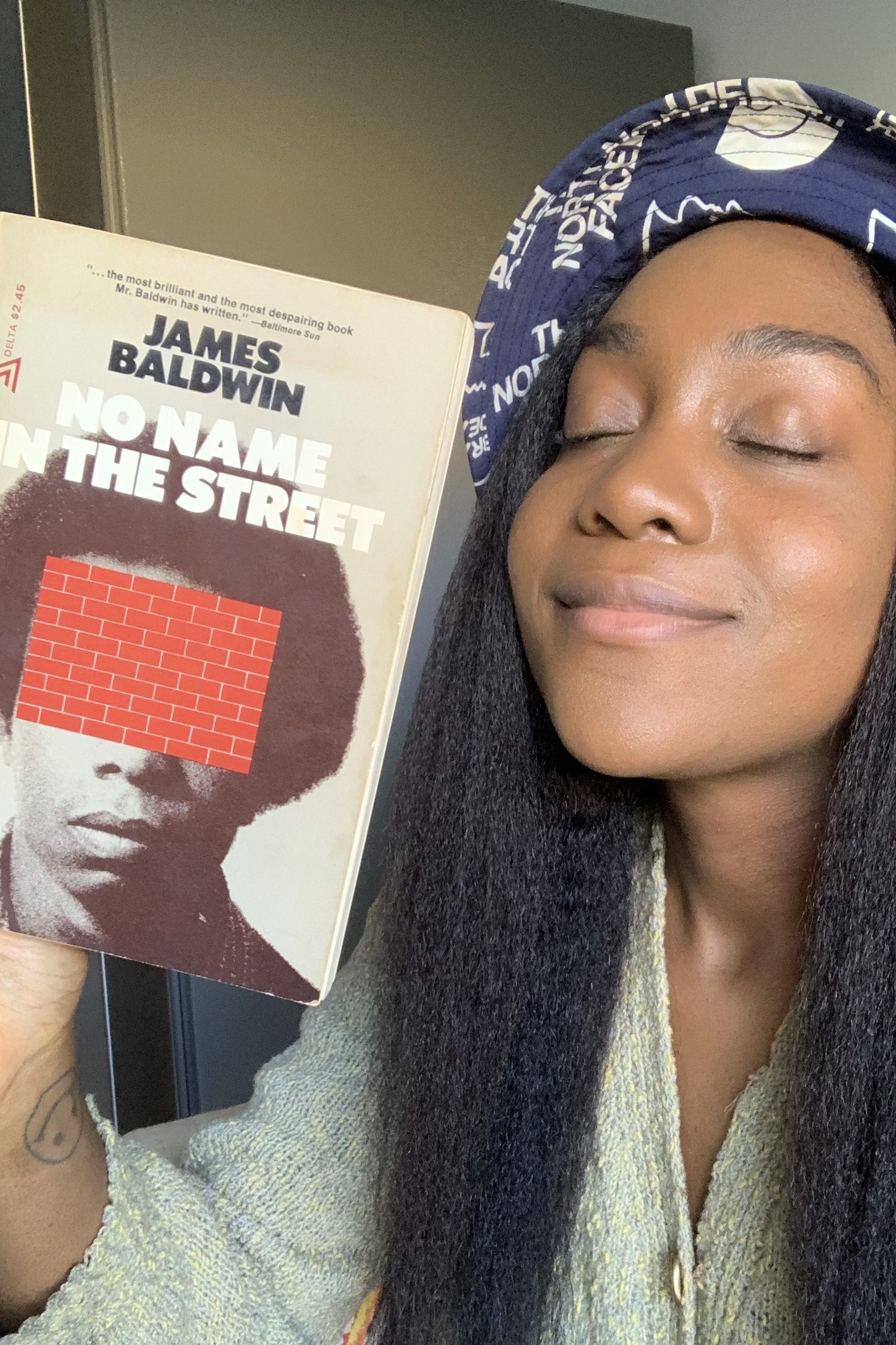
I Can’t Date Jesus
by Michael Arceneaux
Focuses:
Equality
LGBT
Identity
by Michael Arceneaux
Focuses:
Equality
LGBT
Identity
Equality for LGBT people has come a long way and all, but voices of persons of color within the community are still often silenced, and being black in America is…well, have you watched the news?
With the characteristic wit and candor that have made him one of today’s boldest writers on social issues, I Can’t Date Jesus is Michael Arceneaux’s impassioned, forthright, and refreshing look at minority life in today’s America. Leaving no bigoted or ignorant stone unturned, he describes his journey in learning to embrace his identity when the world told him to do the opposite.
Buy it local Join a book club
With the characteristic wit and candor that have made him one of today’s boldest writers on social issues, I Can’t Date Jesus is Michael Arceneaux’s impassioned, forthright, and refreshing look at minority life in today’s America. Leaving no bigoted or ignorant stone unturned, he describes his journey in learning to embrace his identity when the world told him to do the opposite.
Buy it local Join a book club
December 2020
The Assassination of Fred Hampton
by Jeffrey Haas
Focuses:
Police Brutality
Racism
Injustice
by Jeffrey Haas
Focuses:
Police Brutality
Racism
Injustice
It’s around 7:00 A.M. on December 4, 1969, and attorney Jeff Haas is in a police lockup in Chicago, interviewing Fred Hampton’s fiancée. She is describing how the police pulled her from the room as Fred lay unconscious on their bed. She heard one officer say, “He’s still alive.” She then heard two shots. A second officer said, “He’s good and dead now.” She looks at Jeff and asks, “What can you do?”
The Assassination of Fred Hampton is Haas’s personal account of how he and People’s Law Office partner Flint Taylor pursued Hampton’s assassins, ultimately prevailing over unlimited government resources and FBI conspiracy. Not only a story of justice delivered, the book puts Hampton in a new light as a dynamic community leader and an inspiration in the fight against injustice.
Buy it local Join a book club
The Assassination of Fred Hampton is Haas’s personal account of how he and People’s Law Office partner Flint Taylor pursued Hampton’s assassins, ultimately prevailing over unlimited government resources and FBI conspiracy. Not only a story of justice delivered, the book puts Hampton in a new light as a dynamic community leader and an inspiration in the fight against injustice.
Buy it local Join a book club
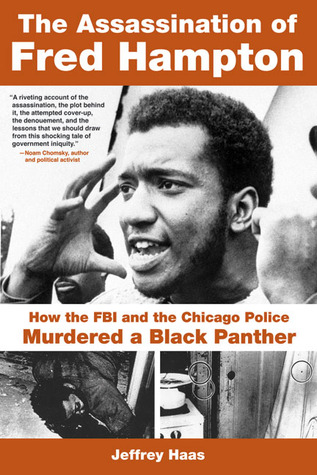
1919
by Eve L. Ewing
Focuses:
Poetry
Segregation
Racism
by Eve L. Ewing
Focuses:
Poetry
Segregation
Racism
The Chicago Race Riot of 1919, the most intense of the riots that comprised the “Red Summer” of violence across the nation’s cities, is an event that has shaped the last century but is widely unknown. In 1919, award-winning poet Eve L. Ewing explores the story of this event—which lasted eight days and resulted in thirty-eight deaths and almost 500 injuries—through poems recounting the stories of everyday people trying to survive and thrive in the city. Ewing uses speculative and Afrofuturist lenses to recast history, and illuminates the thin line between the past and the present.
Buy it local Join a book club
Buy it local Join a book club
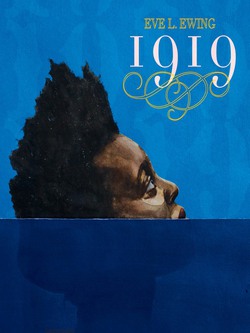

November 2020
Class Struggle In Africa
by Kwame Nkrumah
Focuses:
Colonization
Imperialism
Africa
by Kwame Nkrumah
Focuses:
Colonization
Imperialism
Africa
Recent African history has exposed the close links between the interests of imperialism and neo-colonialism and the African bourgeoisie. This book reveals the nature and extent of the class struggle in Africa, and sets it in the broad context of the African Revolution and the world socialist revolution.
Buy it local Join a book club
Buy it local Join a book club
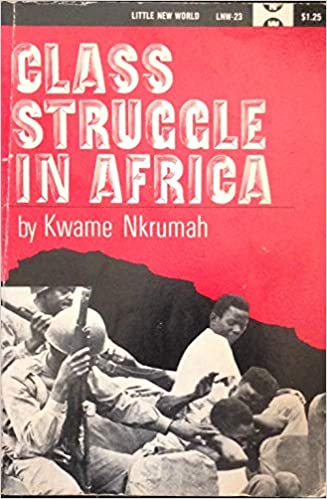
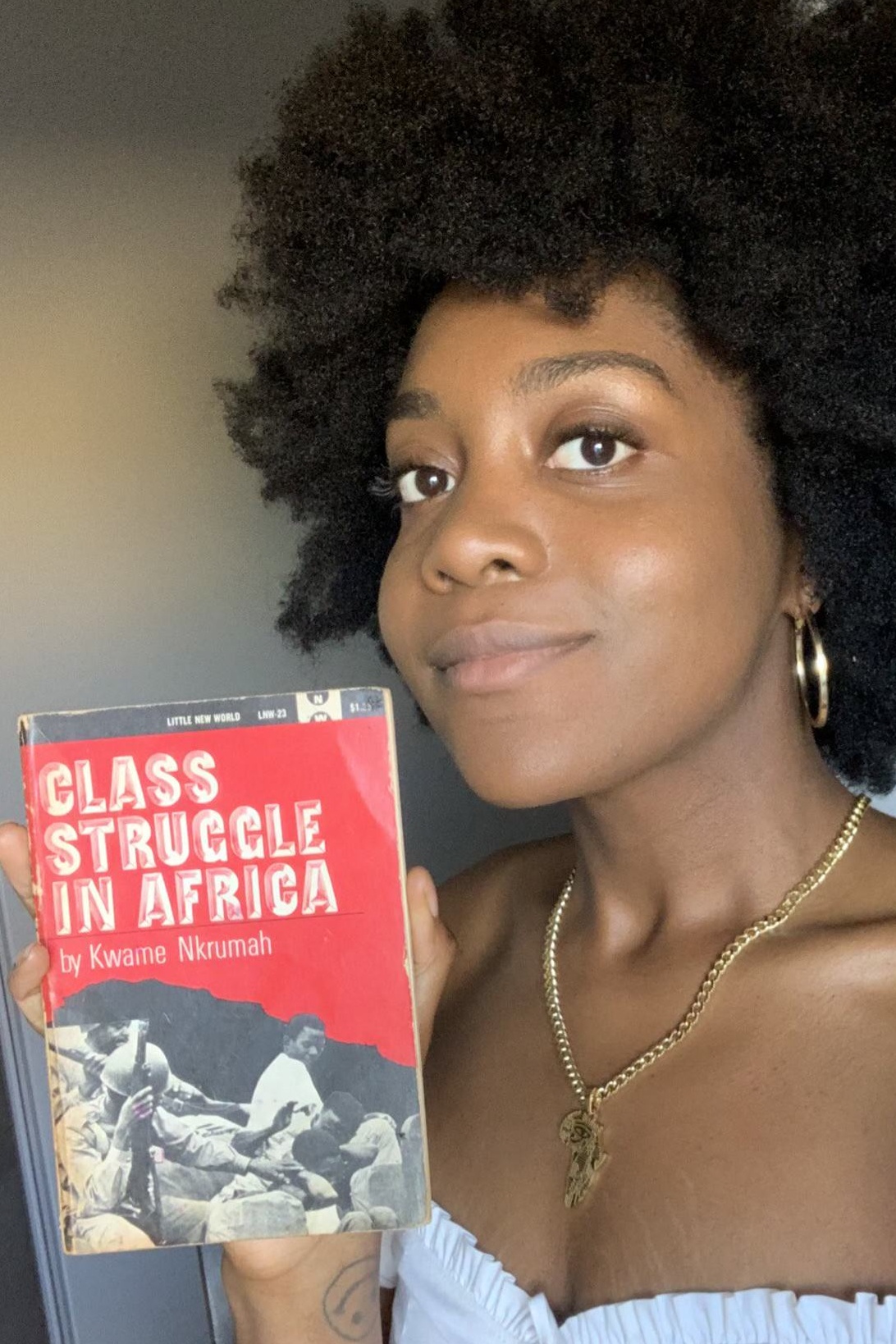
Our History Is The Future
by Nick Estes
Focuses:
Liberation
Culture
by Nick Estes
Focuses:
Liberation
Culture
How two centuries of Indigenous resistance created the movement proclaiming “Water is life”
In 2016, a small protest encampment at the Standing Rock Reservation in North Dakota, initially established to block construction of the Dakota Access oil pipeline, grew to be the largest Indigenous protest movement in the twenty-first century. Water Protectors knew this battle for native sovereignty had already been fought many times before, and that, even after the encampment was gone, their anticolonial struggle would continue. In Our History Is the Future, Nick Estes traces traditions of Indigenous resistance that led to the #NoDAPL movement. Our History Is the Future is at once a work of history, a manifesto, and an intergenerational story of resistance.
Buy it local Join a book club
In 2016, a small protest encampment at the Standing Rock Reservation in North Dakota, initially established to block construction of the Dakota Access oil pipeline, grew to be the largest Indigenous protest movement in the twenty-first century. Water Protectors knew this battle for native sovereignty had already been fought many times before, and that, even after the encampment was gone, their anticolonial struggle would continue. In Our History Is the Future, Nick Estes traces traditions of Indigenous resistance that led to the #NoDAPL movement. Our History Is the Future is at once a work of history, a manifesto, and an intergenerational story of resistance.
Buy it local Join a book club
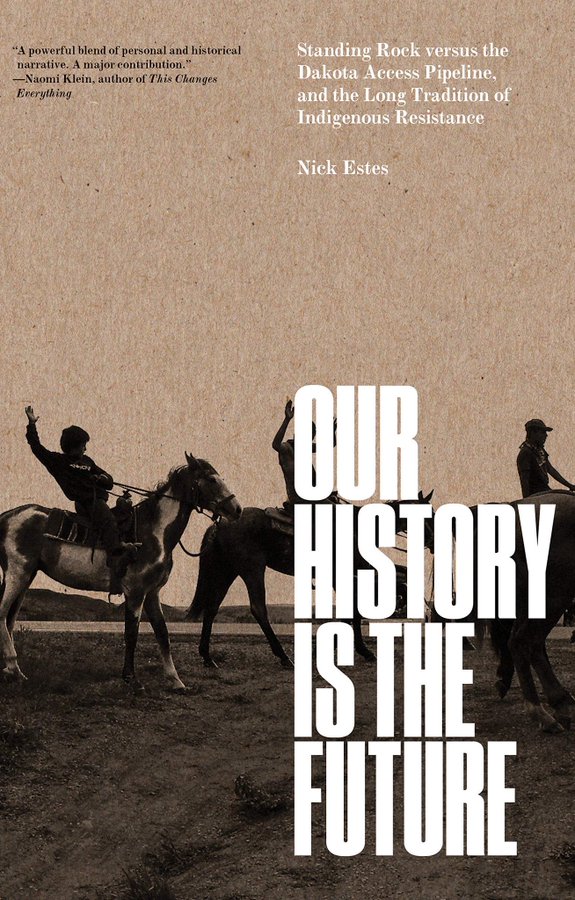
October 2020
Prison By Any Other name
by Maya Schenwar and Victoria Law
Focuses:
Judicial System Reform Prison Industrial
by Maya Schenwar and Victoria Law
Focuses:
Judicial System Reform Prison Industrial
Electronic monitoring. Locked-down drug treatment centers. House arrest. Mandated psychiatric treatment. Data-driven surveillance. Extended probation. These are some of the key alternatives held up as cost-effective substitutes for jails and prisons. But many of these so-called reforms actually widen the net, weaving in new strands of punishment and control, and bringing new populations, who would not otherwise have been subject to imprisonment, under physical control by the state.
As mainstream public opinion has begun to turn against mass incarceration, political figures on both sides of the spectrum are pushing for reform. But—though they’re promoted as steps to confront high rates of imprisonment—many of these measures are transforming our homes and communities into prisons instead.
Buy it local Join a book club
As mainstream public opinion has begun to turn against mass incarceration, political figures on both sides of the spectrum are pushing for reform. But—though they’re promoted as steps to confront high rates of imprisonment—many of these measures are transforming our homes and communities into prisons instead.
Buy it local Join a book club
September 2020
Disability Visibility: First-Person Stories from the Twenty-First Century
Edited by Alice Wong
Focuses:
Disability
Culture
Edited by Alice Wong
Focuses:
Disability
Culture
One in five people in the United States lives with a disability. Some disabilities are visible, others less apparent—but all are underrepresented in media and popular culture.
From Harriet McBryde Johnson’s account of her debate with Peter Singer over her own personhood to original pieces by authors like Keah Brown and Haben Girma; from blog posts, manifestos, and eulogies to Congressional testimonies, and beyond: this anthology gives a glimpse into the rich complexity of the disabled experience, highlighting the passions, talents, and everyday lives of this community. It invites readers to question their own understandings. It celebrates and documents disability culture in the now. It looks to the future and the past with hope and love.
Buy it local Join a book club
From Harriet McBryde Johnson’s account of her debate with Peter Singer over her own personhood to original pieces by authors like Keah Brown and Haben Girma; from blog posts, manifestos, and eulogies to Congressional testimonies, and beyond: this anthology gives a glimpse into the rich complexity of the disabled experience, highlighting the passions, talents, and everyday lives of this community. It invites readers to question their own understandings. It celebrates and documents disability culture in the now. It looks to the future and the past with hope and love.
Buy it local Join a book club
Capitalism & Disability
Selected writings by Marta Russell
Focuses:
Disability
Capitalism
Policy
Selected writings by Marta Russell
Focuses:
Disability
Capitalism
Policy
Spread out over many years and many different publications, the late author and activist Marta Russell wrote a number of groundbreaking and insightful essays on the nature of disability and oppression under capitalism. In this volume, Russell’s various essays are brought together in one place in order to provide a useful and expansive resource to those interested in better understanding the ways in which the modern phenomenon of disability is shaped by capitalist economic and social relations.
Buy it local Join a book club
Buy it local Join a book club
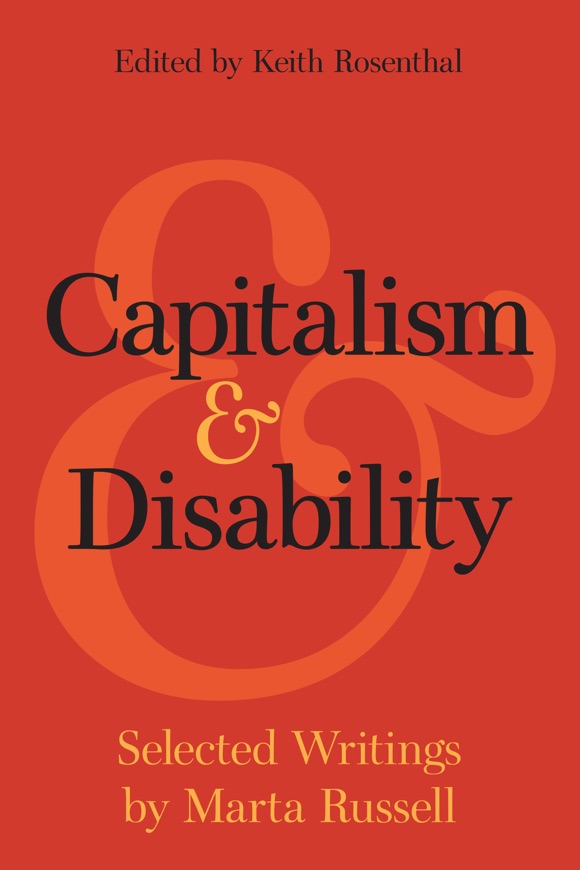
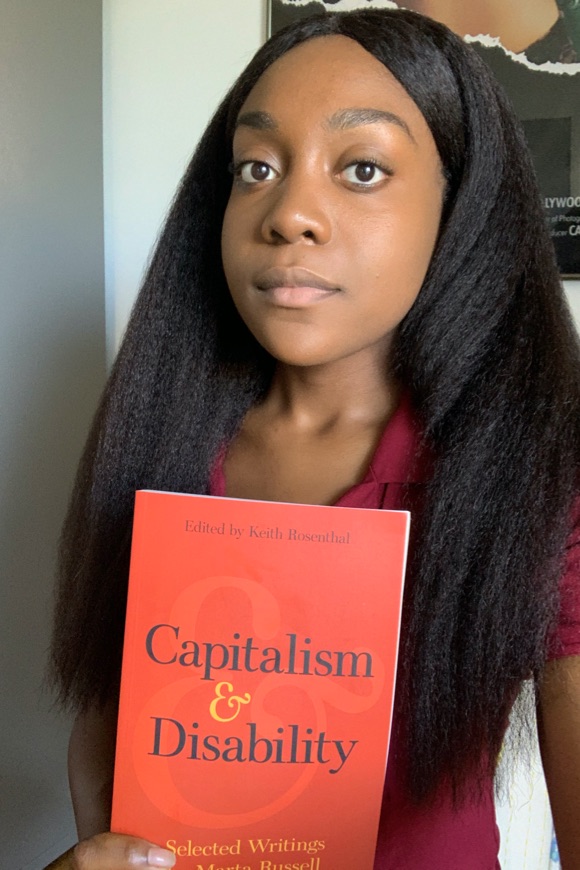
August 2020
Playing in the Dark: Whiteness and the Literary Imagination
By Toni Morrison
Focuses:
Racism
Literature
By Toni Morrison
Focuses:
Racism
Literature
Morrison shows how much the themes of freedom and individualism, manhood and innocence, depended on the existence of a black population that was manifestly unfree—and that came to serve white authors as embodiments of their own fears and desires. According to the Chicago Tribune, Morrison "reimagines and remaps the possibility of America." Her brilliant discussions of the "Africanist" presence in the fiction of Poe, Melville, Cather, and Hemingway leads to a dramatic reappraisal of the essential characteristics of our literary tradition.
Buy it local
Buy it local
The Vanishing Half
By Brit Bennett
Focuses:
Colorism
Identity
Family
By Brit Bennett
Focuses:
Colorism
Identity
Family
Weaving together multiple strands and generations of this family, from the Deep South to California, from the 1950s to the 1990s, Brit Bennett produces a story that is at once a riveting, emotional family story and a brilliant exploration of the American history of passing. Looking well beyond issues of race, The Vanishing Half considers the lasting influence of the past as it shapes a person's decisions, desires, and expectations, and explores some of the multiple reasons and realms in which people sometimes feel pulled to live as something other than their origins.
Buy it local
Buy it local
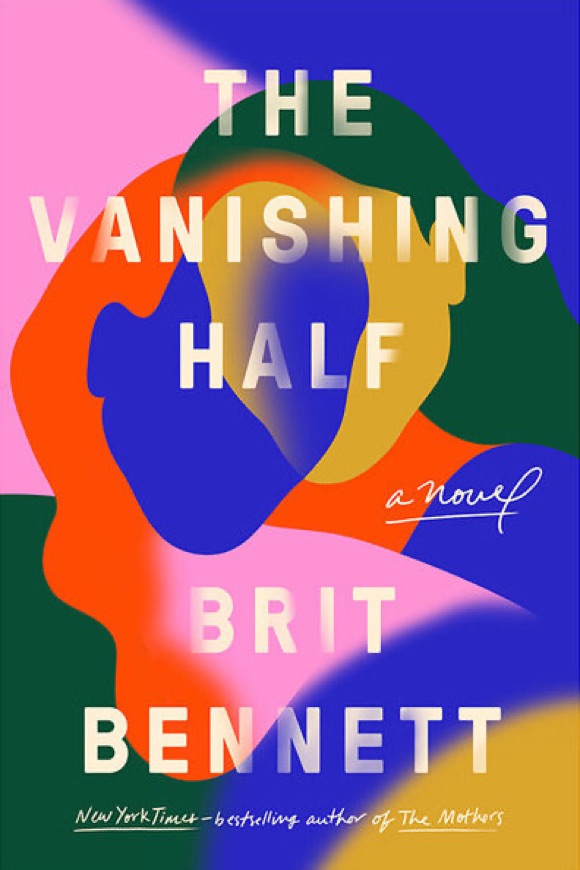
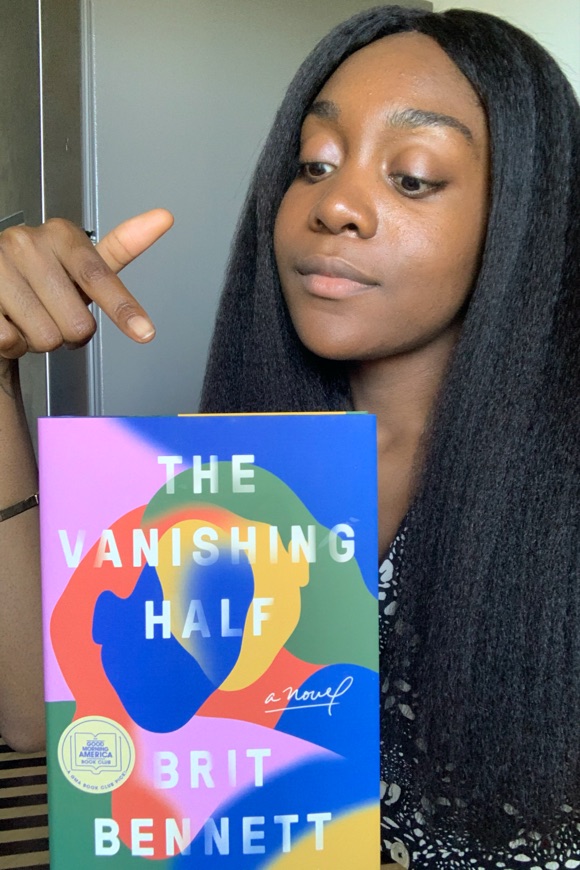
Abolition Reading: Black August Booklist
A List of 14 Books Promoting Black Liberation
In the late 1970’s the observance and practice of Black August left the prisons of California and began being practiced by Black/New Afrikan revolutionaries throughout the country. Black August is a time to study history, particularly our history in the North American Empire. During the month, people wouldn’t use radios or television, would fast between sun up and sun down, and practice other measures of self-discipline.
Read along with us during Black August.
View the list
Read along with us during Black August.
View the list
July 2020
Captive Genders: Trans Embodiment and the Prison Industrial Complex
By Eric Stanley & Nat Smith
Focuses:
Prison Industrial Complex
Gender
By Eric Stanley & Nat Smith
Focuses:
Prison Industrial Complex
Gender
Pathologized, terrorized, and confined, trans/gender non-conforming and queer folks have always struggled against the prison industrial complex. Eric A. Stanley and Nat Smith bring together current and former prisoners, activists, and academics for a new understanding of how race, gender, ability, and sexuality are lived under the crushing weight of captivity. Through a politic of gender self-determination, this collection argues that trans/ queer liberation and prison abolition must be grown together.
Sample discussion prompt: In what ways has trying to end domestic violence hurt our communities and/or made the prison industrial complex stronger?
Buy it local Join a book club
Sample discussion prompt: In what ways has trying to end domestic violence hurt our communities and/or made the prison industrial complex stronger?
Buy it local Join a book club
Are Prisons Obsolete?
By Angela Davis
Focuses:
Prison Industrial Complex
Racism
By Angela Davis
Focuses:
Prison Industrial Complex
Racism
With her characteristic brilliance, grace and radical audacity, Angela Y. Davis has put the case for the latest abolition movement in American life: the abolition of the prison.
Sample discussion prompt: If jails and prisons are to be abolished, then what will replace them?
Watch:
Our LA chapter facilitator Michael Anderson unpacks important themes and questions
Buy it local Join a book club
Sample discussion prompt: If jails and prisons are to be abolished, then what will replace them?
Watch:
Our LA chapter facilitator Michael Anderson unpacks important themes and questions
Buy it local Join a book club
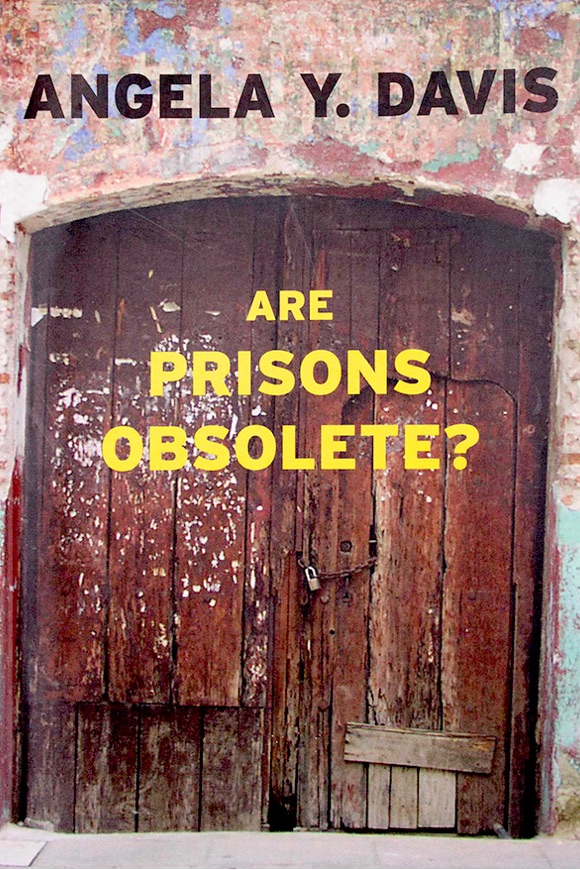
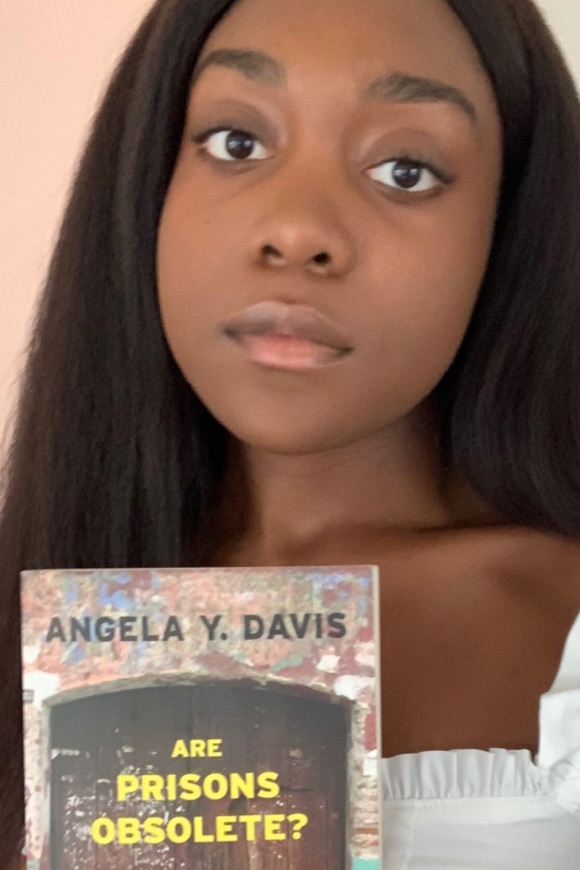
June 2020
Race Music: Black Cultures From Bebop to Hip-Hop
Dr. Guthrie Ramsey
Focuses:
Music
American Culture
Black Identity
Dr. Guthrie Ramsey
Focuses:
Music
American Culture
Black Identity
This powerful book covers the vast and various terrain of African American music, from bebop to hip-hop. Guthrie P. Ramsey, Jr., begins with an absorbing account of his own musical experiences with family and friends on the South Side of Chicago, evoking Sunday-morning worship services, family gatherings with food and dancing, and jam sessions at local nightclubs. This lays the foundation for a brilliant discussion of how musical meaning emerges in the private and communal realms of lived experience and how African American music has shaped and reflected identities in the black community.
Buy it local
Buy it local
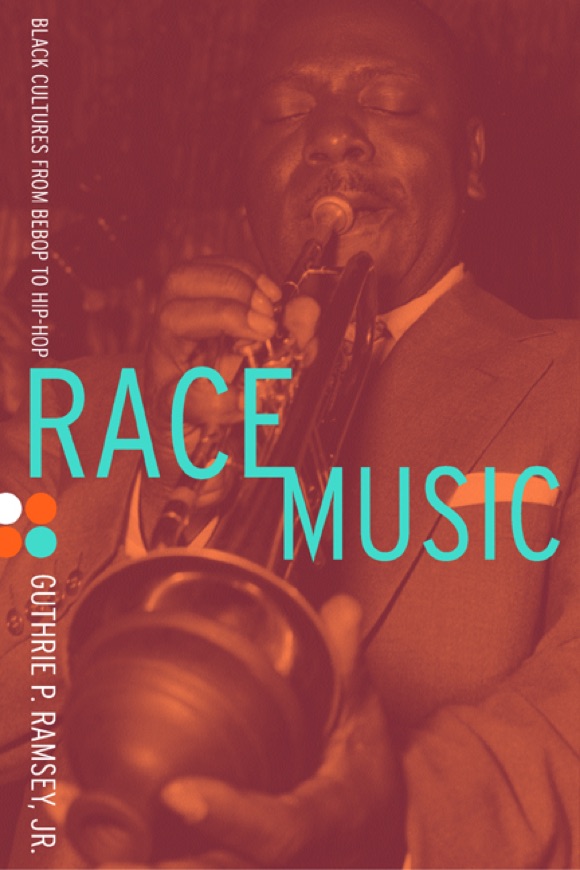
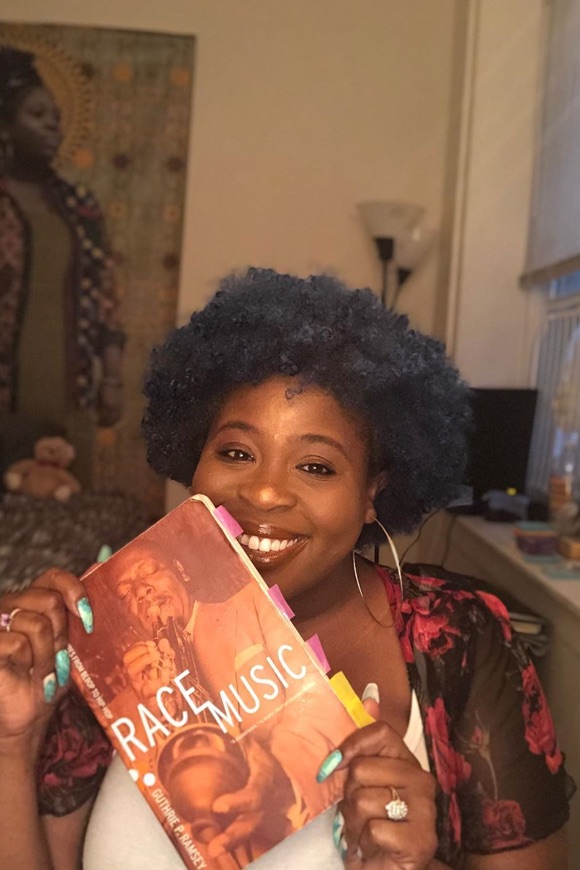
Let the homie pick: Shakira
Blood In My Eye
George Jackson
Focuses:
Prison Industrial Complex
Racism
George Jackson
Focuses:
Prison Industrial Complex
Racism
Blood In My Eye was completed only days before its author was killed. George Jackson died on August 21, 1971 at the hands of San Quentin prison guards during an alleged escape attempt. At eighteen, George Jackson was convicted of stealing seventy dollars from a gas station and was sentenced from one year to life. He was to spent the rest of his life -- eleven years-- in the California prison system, seven in solidary confinement. In prison he read widely and transformed himself into an activist and political theoretician who defined himself as a revolutionary.
Buy it local
Buy it local
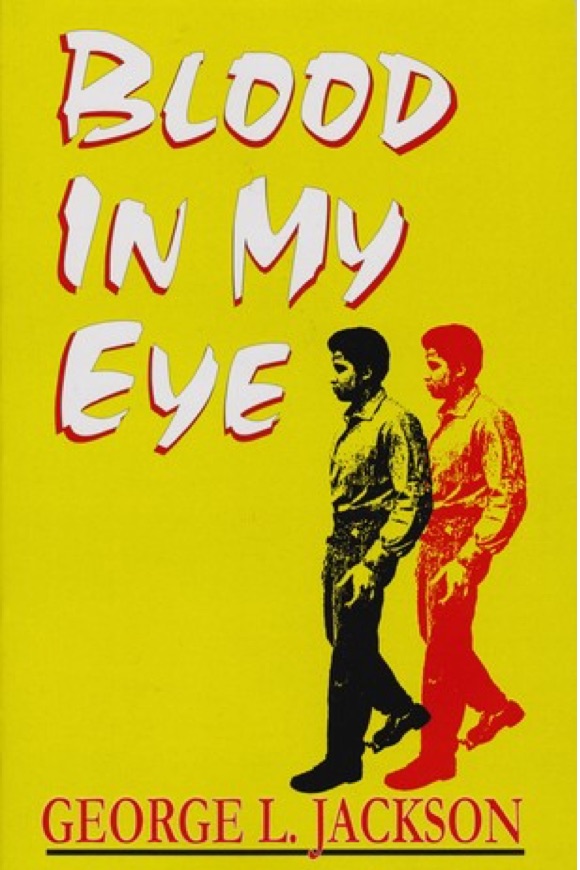
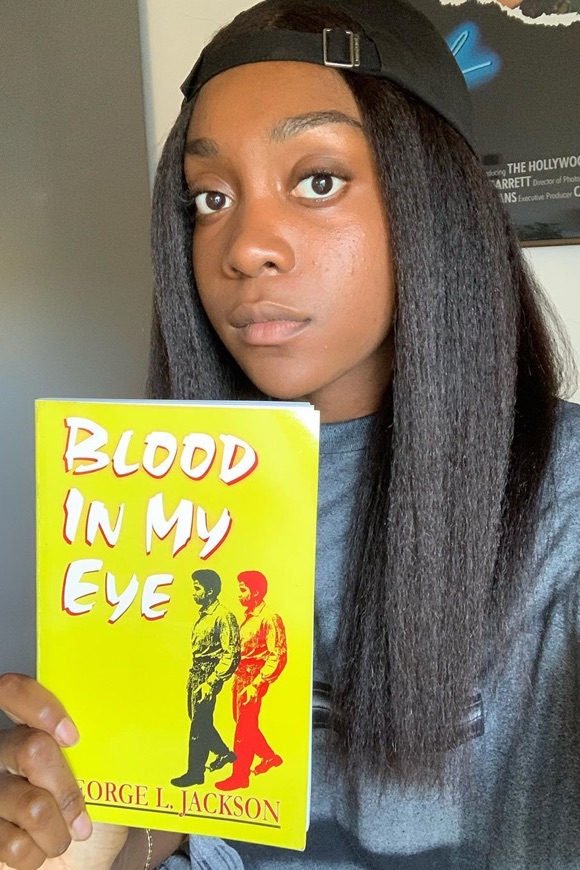
May 2020
Assata: An Autobiography
Assata Shakur
Focuses:
Police Brutality
Judicial System
Racism
Assata Shakur
Focuses:
Police Brutality
Judicial System
Racism
This intensely personal and political autobiography belies the fearsome image of JoAnne Chesimard long projected by the media and the state. With wit and candor, Assata Shakur recounts the experiences that led her to a life of activism and portrays the strengths, weaknesses, and eventual demise of Black and White revolutionary groups at the hand of government officials
Buy it local
Buy it local
April 2020
War Against All Puerto Ricans
Nelson Antonio Denis
Focuses:
Puerto Rico
Colonization
Revolution
Nelson Antonio Denis
Focuses:
Puerto Rico
Colonization
Revolution
Through oral histories, personal interviews, eyewitness accounts, congressional testimony, and recently declassified FBI files, War Against All Puerto Ricans tells the story of a forgotten revolution and its context in Puerto Rico’s history, from the US invasion in 1898 to the modern-day struggle for self-determination. Denis provides an unflinching account of the gunfights, prison riots, political intrigue, FBI and CIA covert activity, and mass hysteria that accompanied this tumultuous period in Puerto Rican history.
Buy it local
Buy it local
Mean
Myriam Gurba
Focuses:
Sexual assault
Racism
Coming-of-age
Myriam Gurba
Focuses:
Sexual assault
Racism
Coming-of-age
True crime, memoir, and ghost story, Mean is the bold and hilarious tale of Myriam Gurba’s coming of age as a queer, mixed-race Chicana. Blending radical formal fluidity and caustic humor, Gurba takes on sexual violence, small towns, and race, turning what might be tragic into piercing, revealing comedy. This is a confident, intoxicating, brassy book that takes the cost of sexual assault, racism, misogyny, and homophobia deadly seriously.
Buy it local
Buy it local
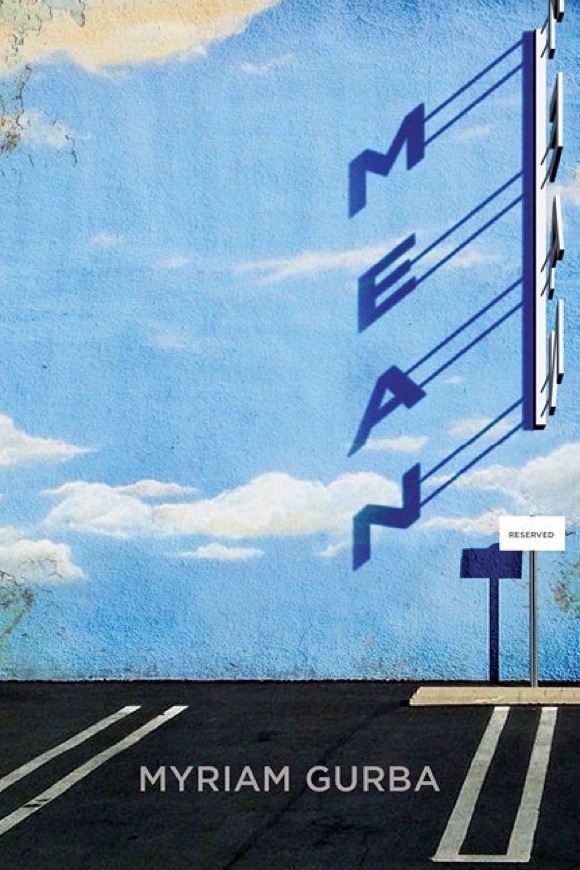
March 2020
Love WITH Accountability
Aishah Shahidah Simmons
Focuses:
Child Sexual Abuse
Healing
Community
Aishah Shahidah Simmons
Focuses:
Child Sexual Abuse
Healing
Community
Love WITH Accountability features compelling writings by child sexual abuse survivors, advocates, and Simmons’s mother, who underscores the detrimental impact of parents/caregivers not believing their children when they disclose their sexual abuse. This collection explores disrupting the inhumane epidemic of child sexual abuse, humanely.
Buy it local
Buy it local
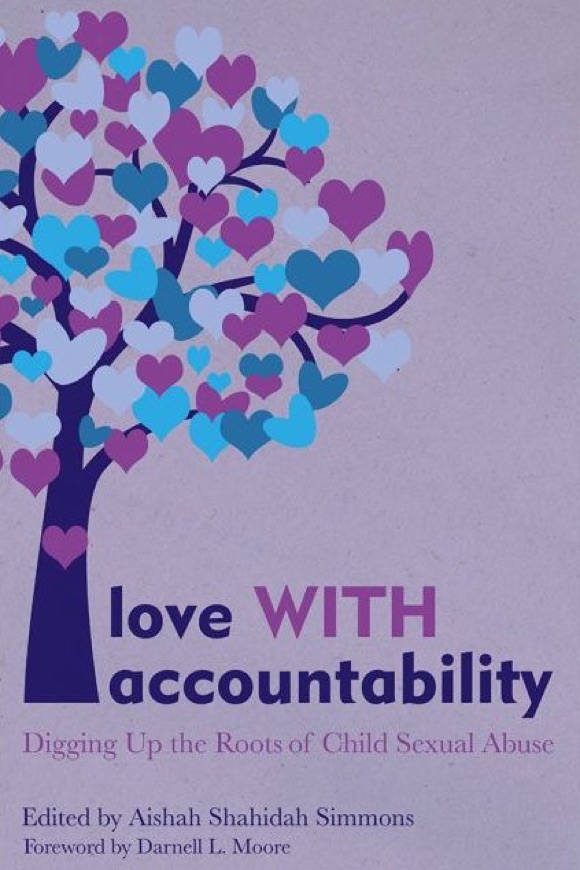
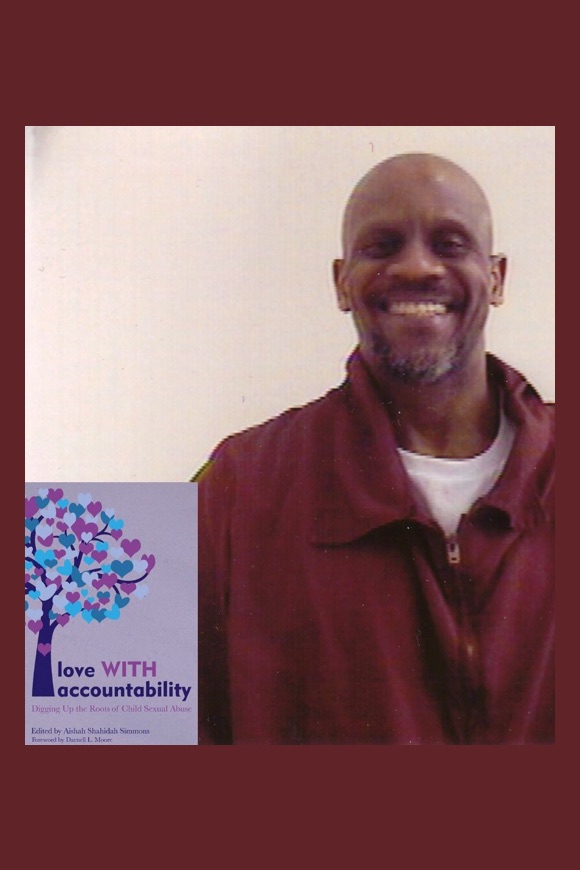
Let the homie pick: Dawud, facilitator for SCI Coal Township prison chapter
As Black As Resistance
Zoé Samudzi & William C. Anderson
Focuses:
Black liberation
Politics
Anarchism
Anticapitalism
Zoé Samudzi & William C. Anderson
Focuses:
Black liberation
Politics
Anarchism
Anticapitalism
Over the course of United States history, resistance against oppression and the gains made from various struggles for everyone's equality have often been Black led. However, liberal politics and the lack of strong leftist political power are two problems impeding the continued progress of Black America. Expanding on their original essay The Anarchism Of Blackness, Samudzi and Anderson make the case for a new program of transformative politics for Black Americans, one rooted in an anarchistic framework likened to the Black experience itself. This is not a compromising book that negotiates with intolerance. As Black as Resistance is a declaration for everyone who is ready to continue progressing towards liberation for all people.
Buy it local
Buy it local
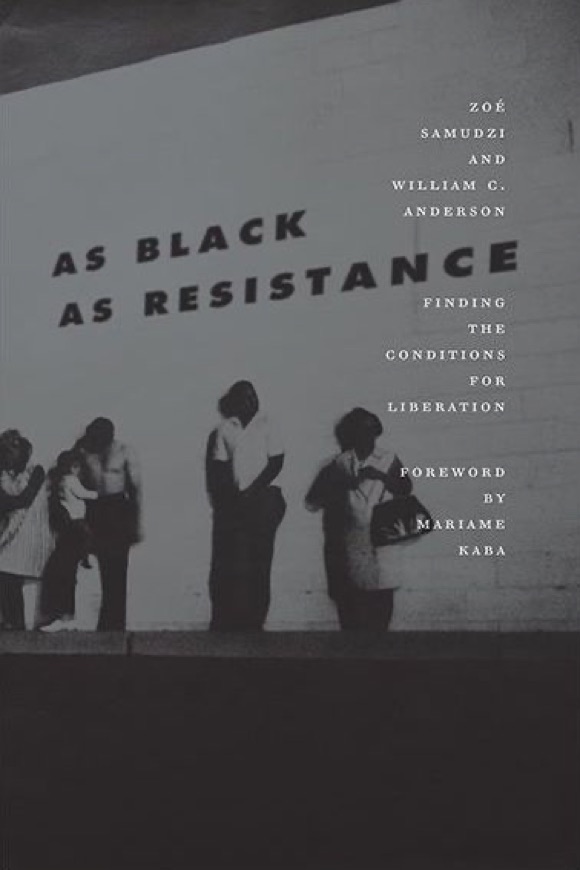
February 2020
Sister Outsider
Audre Lorde
Focuses:
Intersectional feminism
Racism
US imperialism
Audre Lorde
Focuses:
Intersectional feminism
Racism
US imperialism
In this charged collection of fifteen essays and speeches, Lorde takes on sexism, racism, ageism, homophobia, and class, and propounds social difference as a vehicle for action and change. Her prose is incisive, unflinching, and lyrical, reflecting struggle but ultimately offering messages of hope.
These landmark writings are, in Lorde’s own words, a call to “never close our eyes to the terror, to the chaos which is Black which is creative which is female which is dark which is rejected which is messy which is . . . ”
Buy it local
These landmark writings are, in Lorde’s own words, a call to “never close our eyes to the terror, to the chaos which is Black which is creative which is female which is dark which is rejected which is messy which is . . . ”
Buy it local
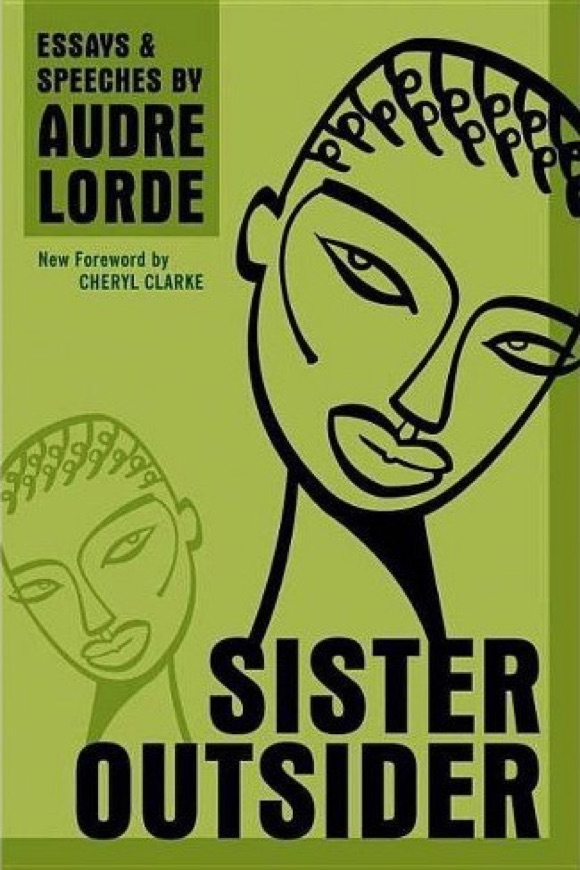
Magical Negro
Morgan Parker
Focuses:
Black experience Womanhood
Morgan Parker
Focuses:
Black experience Womanhood
Magical Negro is an archive of black everydayness, a catalog of contemporary folk heroes, an ethnography of ancestral grief, and an inventory of figureheads, idioms, and customs. These American poems are both elegy and jive, joke and declaration, songs of congregation and self-conception. They connect themes of loneliness, displacement, grief, ancestral trauma, and objectification, while exploring and troubling tropes and stereotypes of Black Americans. Focused primarily on depictions of black womanhood alongside personal narratives, the collection tackles interior and exterior politics―of both the body and society, of both the individual and the collective experience. In Magical Negro, Parker creates a space of witness, of airing grievances, of pointing out patterns. In these poems are living documents, pleas, latent traumas, inside jokes, and unspoken anxieties situated as firmly in the past as in the present―timeless black melancholies and triumphs.
Buy it local
Buy it local
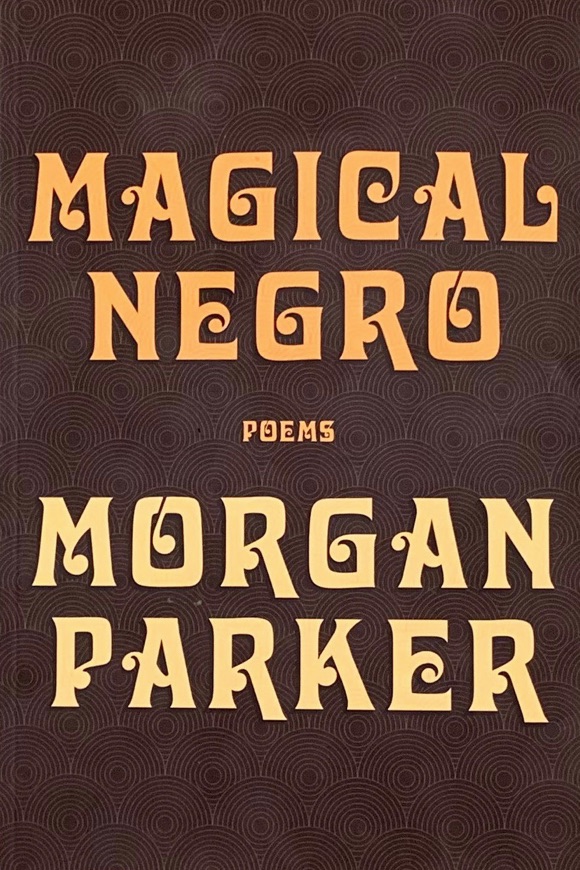
January 2020
Die Nigger Die!
Jamil Al-Amin
Focuses:
Revolution
Militarism
60s Civil Rights movement
Jamil Al-Amin
Focuses:
Revolution
Militarism
60s Civil Rights movement
More than any other black leader, H. Rap Brown, chairman of the radical Black Power organization Student Nonviolent Coordinating Committee (SNCC), came to symbolize the ideology of black revolution. This autobiography—which was first published in 1969, went through seven printings and has long been unavailable—chronicles the making of a revolutionary. It is much more than a personal history, however; it is a call to arms, an urgent message to the black community to be the vanguard force in the struggle of oppressed people. Forthright, sardonic, and shocking, this book is not only illuminating and dynamic but also a vitally important document that is essential to understanding the upheavals of the late 1960s.
Buy it local
Buy it local
Sabrina & Corina
Kali Fajardo-Anstine
Focuses:
Family
Latina experience
Trauma
Coming-of-age
Kali Fajardo-Anstine
Focuses:
Family
Latina experience
Trauma
Coming-of-age
Kali Fajardo-Anstine’s magnetic story collection breathes life into her Latina characters of indigenous ancestry and the land they inhabit in the American West. Against the remarkable backdrop of Denver, Colorado—a place that is as fierce as it is exquisite—these women navigate the land the way they navigate their lives: with caution, grace, and quiet force.
In “Sugar Babies,” ancestry and heritage are hidden inside the earth but tend to rise during land disputes. “Any Further West” follows a sex worker and her daughter as they leave their ancestral home in southern Colorado only to find a foreign and hostile land in California. In “Tomi,” a woman leaves prison and finds herself in a gentrified city that is a shadow of the one she remembers from her childhood. And in the title story, “Sabrina & Corina,” a Denver family falls into a cycle of violence against women, coming together only through ritual.
Buy it local
In “Sugar Babies,” ancestry and heritage are hidden inside the earth but tend to rise during land disputes. “Any Further West” follows a sex worker and her daughter as they leave their ancestral home in southern Colorado only to find a foreign and hostile land in California. In “Tomi,” a woman leaves prison and finds herself in a gentrified city that is a shadow of the one she remembers from her childhood. And in the title story, “Sabrina & Corina,” a Denver family falls into a cycle of violence against women, coming together only through ritual.
Buy it local
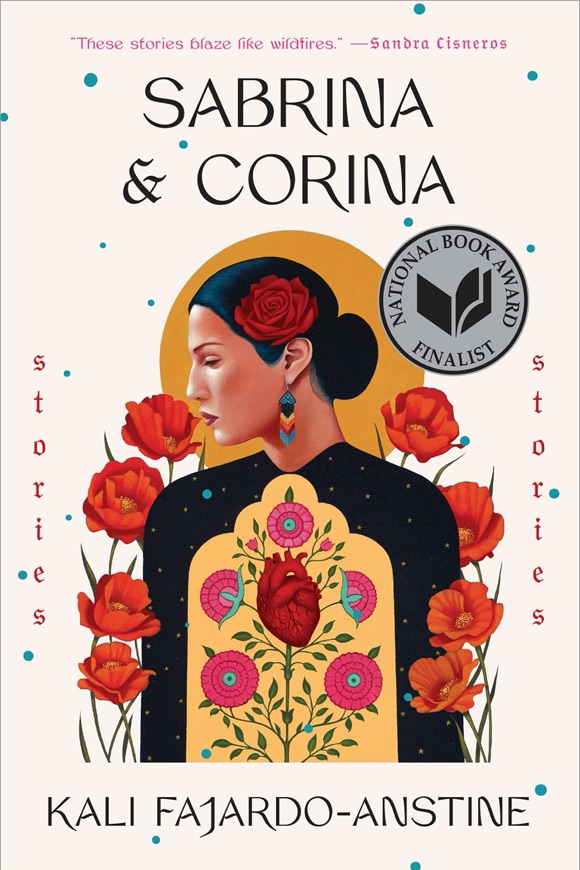
December 2019
The Wretched of the Earth
Frantz Fanon
Focuses:
Colonization
Marxism
Oppression
Frantz Fanon
Focuses:
Colonization
Marxism
Oppression
The Wretched of the Earth is a brilliant analysis of the psychology of the colonized and their path to liberation. Bearing singular insight into the rage and frustration of colonized peoples, and the role of violence in effecting historical change, the book incisively attacks the twin perils of postindependence colonial politics: the disenfranchisement of the masses by the elites on the one hand, and intertribal and interfaith animosities on the other. Fanon’s analysis, a veritable handbook of social reorganization for leaders of emerging nations, has been reflected all too clearly in the corruption and violence that has plagued present-day Africa.
Buy it local
Buy it local
Persepolis
(The Story of a Childhood)
Marjane Satrapi
Focuses:
Islamic Revolution
Coming-of-age
Family
(The Story of a Childhood)
Marjane Satrapi
Focuses:
Islamic Revolution
Coming-of-age
Family
In powerful black-and-white comic strip images, Satrapi tells the story of her life in Tehran from ages six to fourteen, years that saw the overthrow of the Shah’s regime, the triumph of the Islamic Revolution, and the devastating effects of war with Iraq. The intelligent and outspoken only child of committed Marxists and the great-granddaughter of one of Iran’s last emperors, Marjane bears witness to a childhood uniquely entwined with the history of her country.
Buy it local
Buy it local
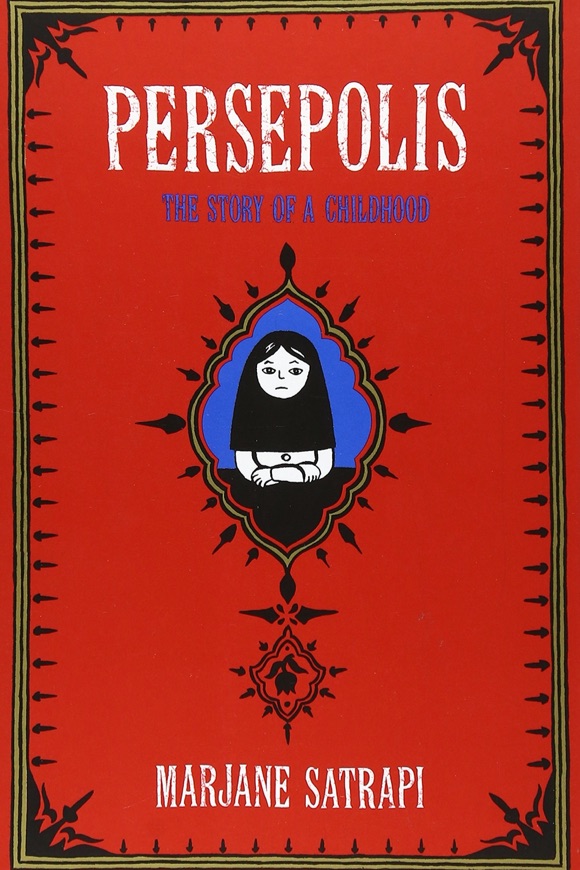
November 2019
Parable of the Sower
Octavia E. Butler
Focuses:
Dystopian fiction
American society
Survival
Octavia E. Butler
Focuses:
Dystopian fiction
American society
Survival
When global climate change and economic crises lead to social chaos in the early 2020s, California becomes full of dangers, from pervasive water shortage to masses of vagabonds who will do anything to live to see another day. Fifteen-year-old Lauren Olamina lives inside a gated community with her preacher father, family, and neighbors, sheltered from the surrounding anarchy. In a society where any vulnerability is a risk, she suffers from hyperempathy, a debilitating sensitivity to others' emotions.
Precocious and clear-eyed, Lauren must make her voice heard in order to protect her loved ones from the imminent disasters her small community stubbornly ignores. But what begins as a fight for survival soon leads to something much more: the birth of a new faith... and a startling vision of human destiny.
Buy it local
Precocious and clear-eyed, Lauren must make her voice heard in order to protect her loved ones from the imminent disasters her small community stubbornly ignores. But what begins as a fight for survival soon leads to something much more: the birth of a new faith... and a startling vision of human destiny.
Buy it local
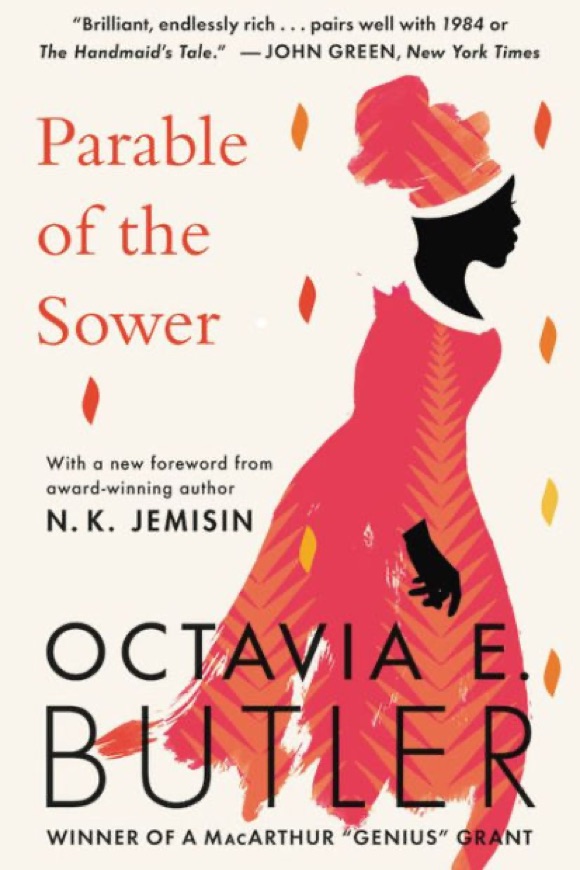
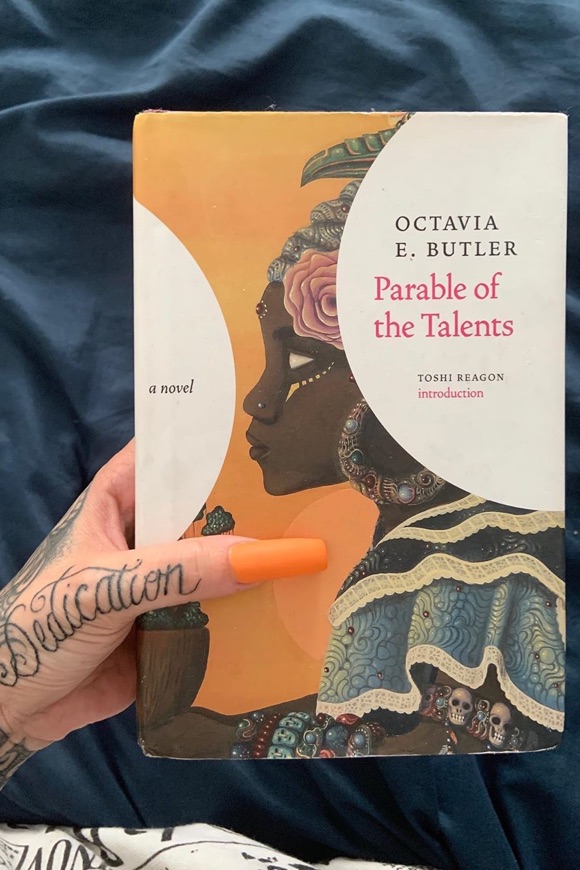
Let the homie pick: Kehlani
How to Cure a Ghost
Fariha Róisín
Focuses:
Relationships
Self-love
Identity
Fariha Róisín
Focuses:
Relationships
Self-love
Identity
Following in the footsteps of such category killers as Milk and Honey and Whiskey Words & a Shovel I, Fariha Róisín’s poetry book is a collection of her thoughts as a young, queer, Muslim femme navigating the difficulties of her intersectionality. Simultaneously, this compilation unpacks the contentious relationship that exists between Róisín and her mother, her platonic and romantic heartbreaks, and the cognitive dissonance felt as a result of being so divided among her broad spectrum of identities.
Buy it local
Buy it local
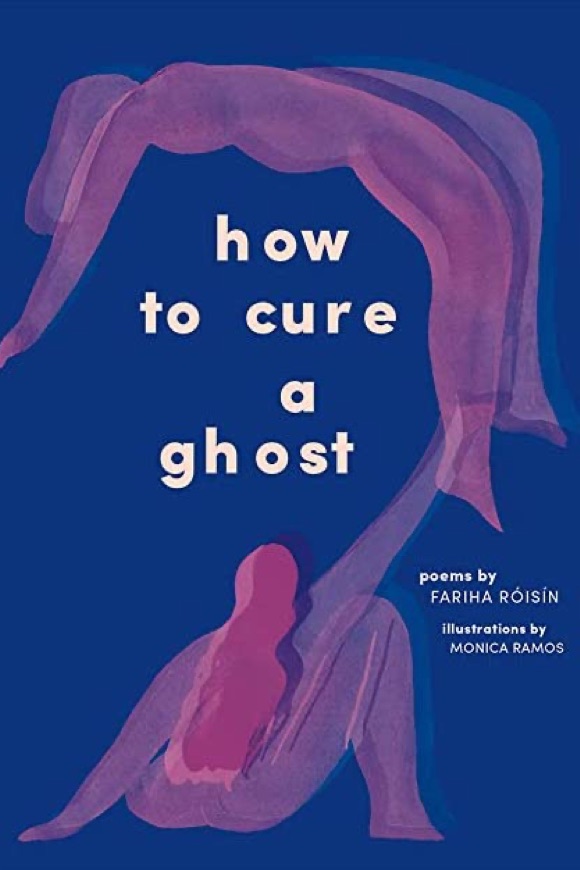
October 2019
Faces & Masks (Memory of Fire, Vol. 2)
Eduardo Galeano
Focuses:
History of the Americas
Colonization
Eduardo Galeano
Focuses:
History of the Americas
Colonization
The second volume of Eduardo Galeano's Memory of Fire trilogy, Faces and Masks is an astonishing Latin American-eye view of the New World in the making. Here is the tangled, cataclysmic history of our hemisphere from the 1700s up to the dawn of our present century, told through characters as resonant and compelling as Simon Bolívar, Toussaint L'Ouverture, and Billy the Kid. With its brilliant and imaginative blend of journalism, scholarship, and political passion, Faces and Masks is a panoramic interpretation of the Americas no work of history has previously imagined.
Buy it local
Buy it local
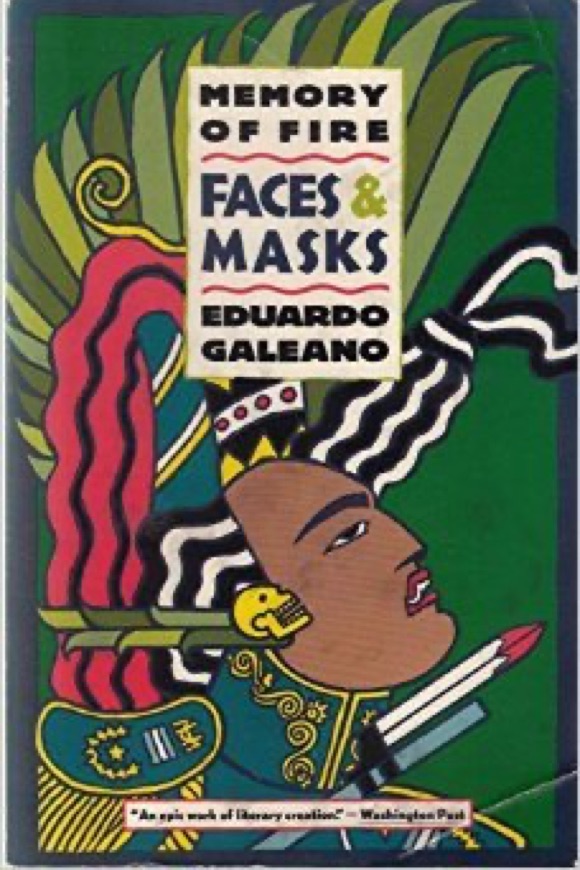
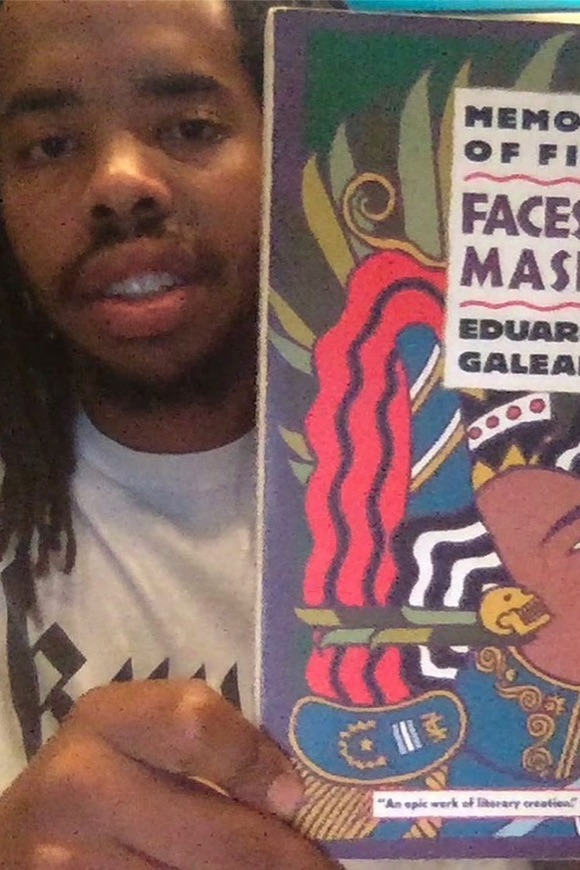
Let the homie pick: Earl Sweatshirt
Faces in the Crowd
Valeria Luiselli
Focuses:
Nonlinear storytelling
Mexican experience
Valeria Luiselli
Focuses:
Nonlinear storytelling
Mexican experience
In Mexico City, a young mother is writing a novel of her days as a translator living in New York. In Harlem, a translator is desperate to publish the works of Gilberto Owen, an obscure Mexican poet. And in Philadelphia, Gilberto Owen recalls his friendship with Lorca, and the young woman he saw in the windows of passing trains. Valeria Luiselli's debut signals the arrival of a major international writer and an unexpected and necessary voice in contemporary fiction.
Buy it local
Buy it local
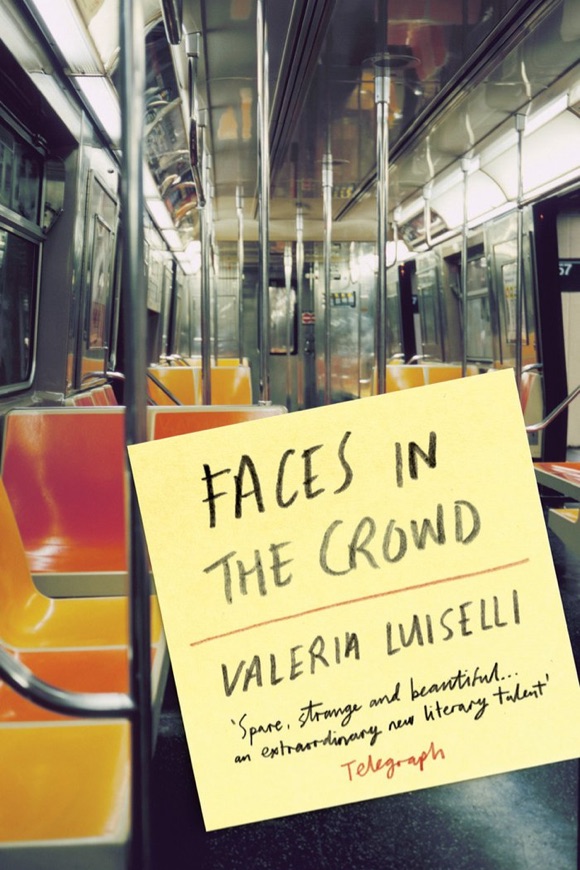
September 2019
Don’t Call Us Dead
Danez Smith
Focuses:
Sexuality
Police Brutality
Racism
Danez Smith
Focuses:
Sexuality
Police Brutality
Racism
Award-winning poet Danez Smith is a groundbreaking force, celebrated for deft lyrics, urgent subjects, and performative power. Don’t Call Us Dead opens with a heartrending sequence that imagines an afterlife for black men shot by police, a place where suspicion, violence, and grief are forgotten and replaced with the safety, love, and longevity they deserved here on earth. Smith turns then to desire, mortality―the dangers experienced in skin and body and blood―and a diagnosis of HIV positive. “Some of us are killed / in pieces,” Smith writes, “some of us all at once.” Don’t Call Us Dead is an astonishing and ambitious collection, one that confronts, praises, and rebukes America―“Dear White America”―where every day is too often a funeral and not often enough a miracle.
Buy it local
Buy it local
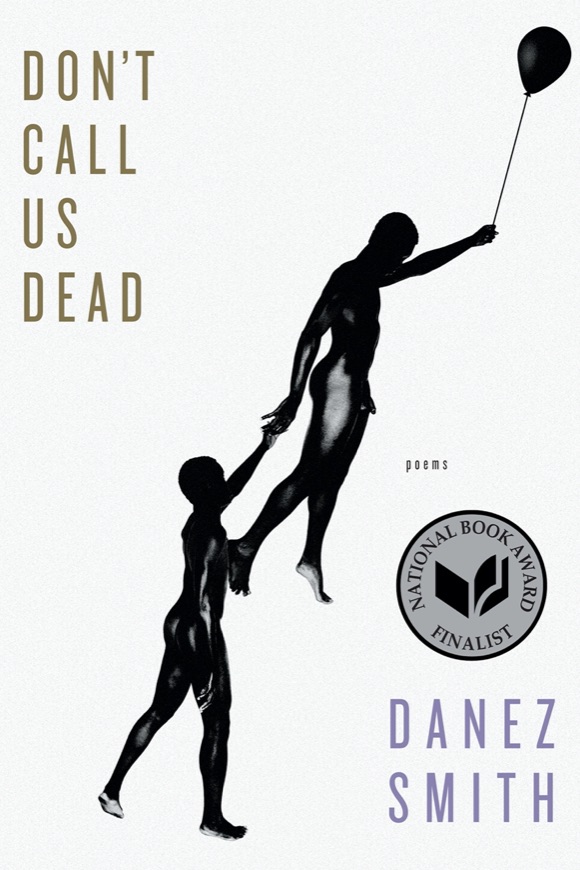
The Cooking Gene: A Journey Through African American Culinary History in the Old South
Michael W. Twitty
Focuses:
Southern cuisine
Slavery
Memory
Michael W. Twitty
Focuses:
Southern cuisine
Slavery
Memory
A renowned culinary historian offers a fresh perspective on our most divisive cultural issue, race, in this illuminating memoir of Southern cuisine and food culture that traces his ancestry—both black and white—through food, from Africa to America and slavery to freedom.
Southern food is integral to the American culinary tradition, yet the question of who “owns” it is one of the most provocative touch points in our ongoing struggles over race. In this unique memoir, culinary historian Michael W. Twitty takes readers to the white-hot center of this fight, tracing the roots of his own family and the charged politics surrounding the origins of soul food, barbecue, and all Southern cuisine.
Buy it local
Southern food is integral to the American culinary tradition, yet the question of who “owns” it is one of the most provocative touch points in our ongoing struggles over race. In this unique memoir, culinary historian Michael W. Twitty takes readers to the white-hot center of this fight, tracing the roots of his own family and the charged politics surrounding the origins of soul food, barbecue, and all Southern cuisine.
Buy it local
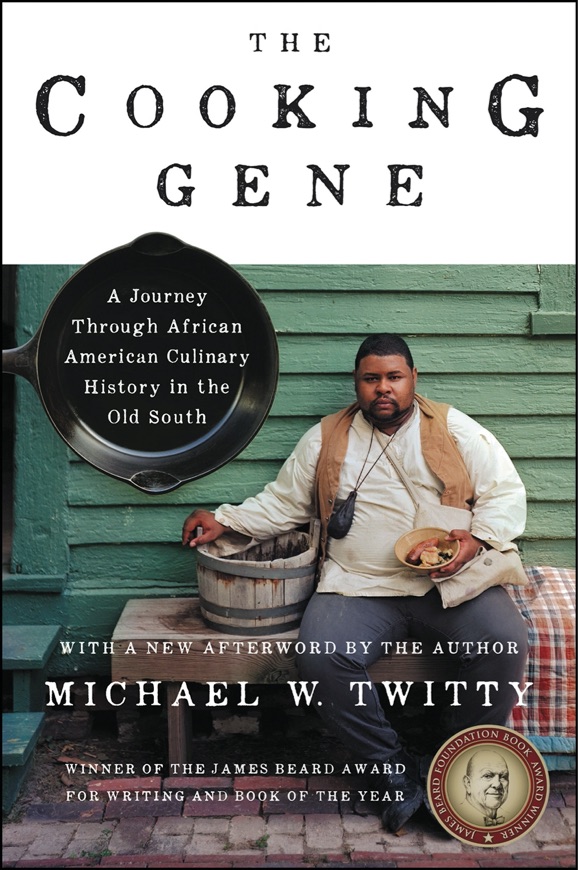
August 2019
Pedagogy of the Oppressed
Paulo Freire
Focuses:
Education
Poverty
Liberation
Paulo Freire
Focuses:
Education
Poverty
Liberation
Pedagogy of the Oppressed is one of the foundational texts in the field of critical pedagogy, which attempts to help students question and challenge domination, and the beliefs and practices that dominate.
The methodology of the late Paulo Freire has helped to empower countless impoverished and illiterate people throughout the world. Freire's work has taken on especial urgency in the United States and Western Europe, where the creation of a permanent underclass among the underprivileged and minorities in cities and urban centers is increasingly accepted as the norm.
Buy it local
The methodology of the late Paulo Freire has helped to empower countless impoverished and illiterate people throughout the world. Freire's work has taken on especial urgency in the United States and Western Europe, where the creation of a permanent underclass among the underprivileged and minorities in cities and urban centers is increasingly accepted as the norm.
Buy it local
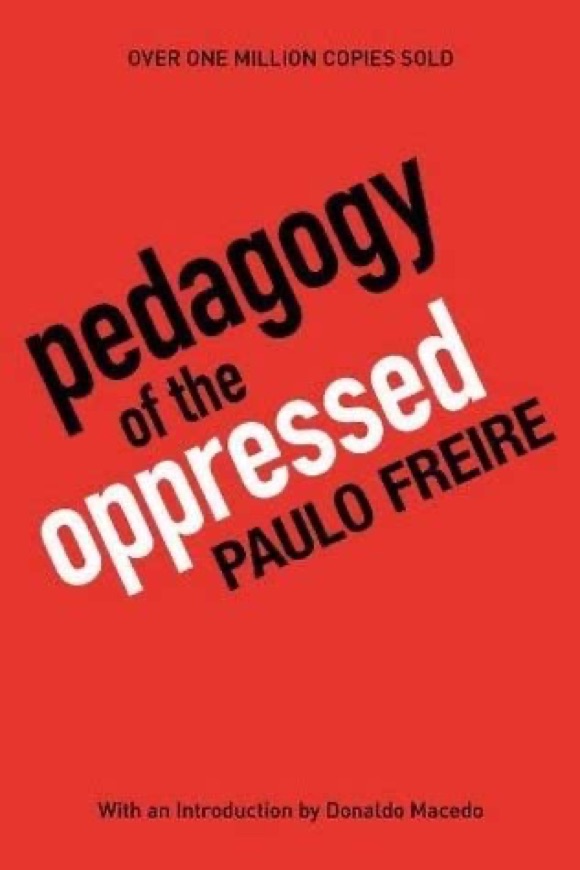
We Are Never Meeting in Real Life
Samantha Irby
Focuses:
Memoir
Relationships
Comedy
Samantha Irby
Focuses:
Memoir
Relationships
Comedy
Whether Samantha Irby is talking about how her difficult childhood has led to a problem in making “adult” budgets; explaining why she should be the new Bachelorette (she’s “35-ish, but could easily pass for 60-something”); detailing a disastrous pilgrimage-slash-romantic-vacation to Nashville to scatter her estranged father’s ashes; sharing awkward sexual encounters; or dispensing advice on how to navigate friendships with former drinking buddies who are now suburban moms (hang in there for the Costco loot!); she’s as deft at poking fun at the ghosts of her past self as she is at capturing powerful emotional truths.
Buy it local
Buy it local
